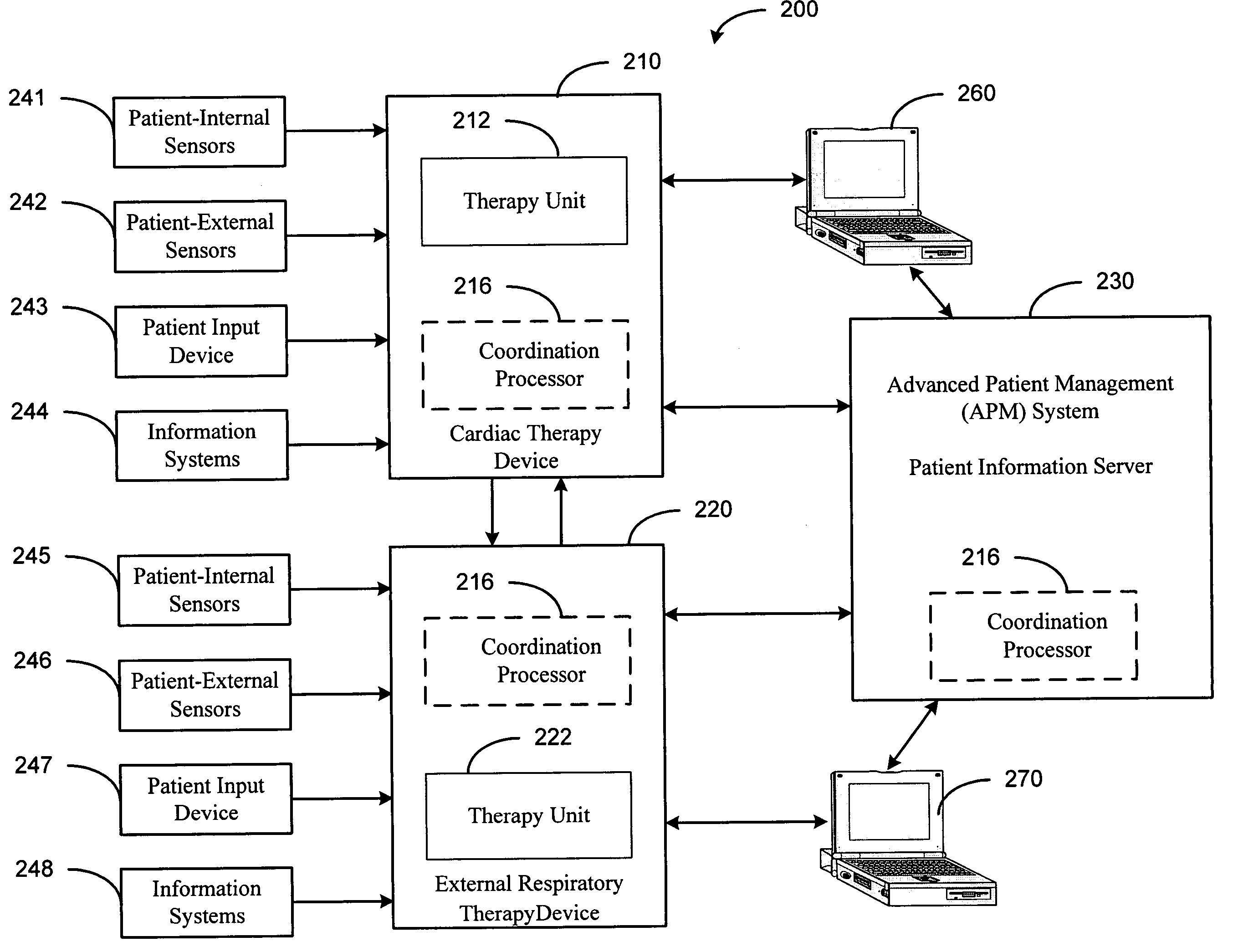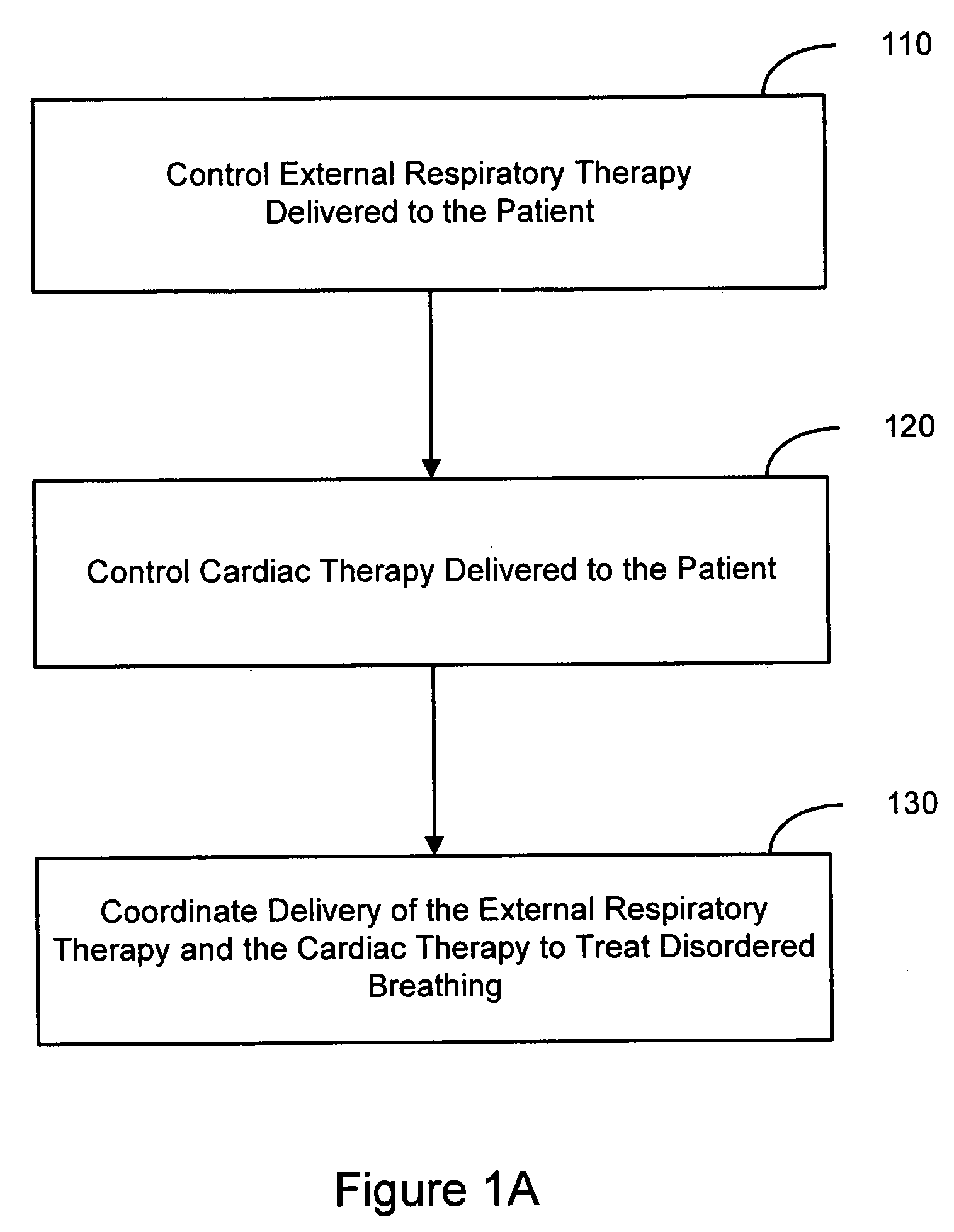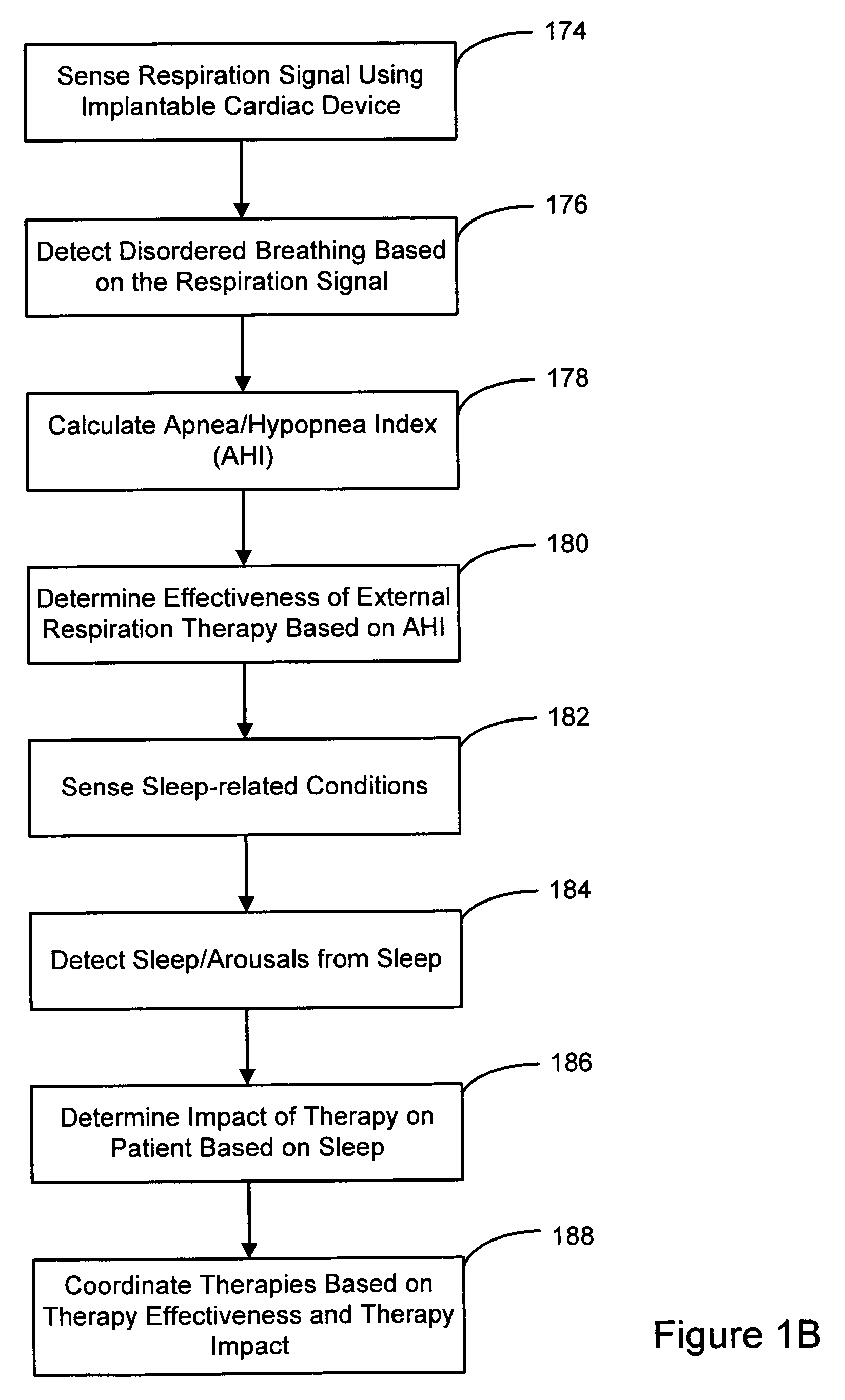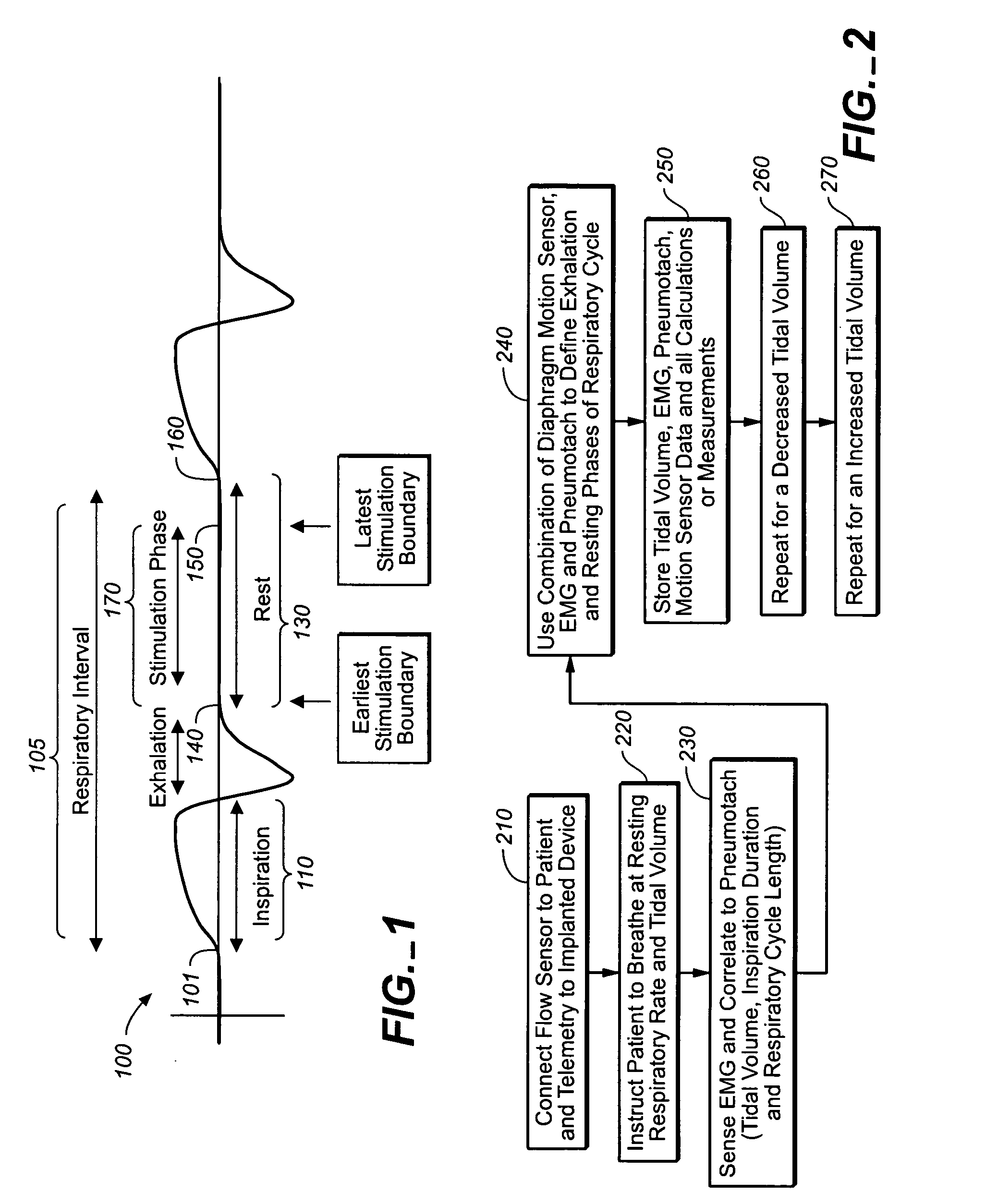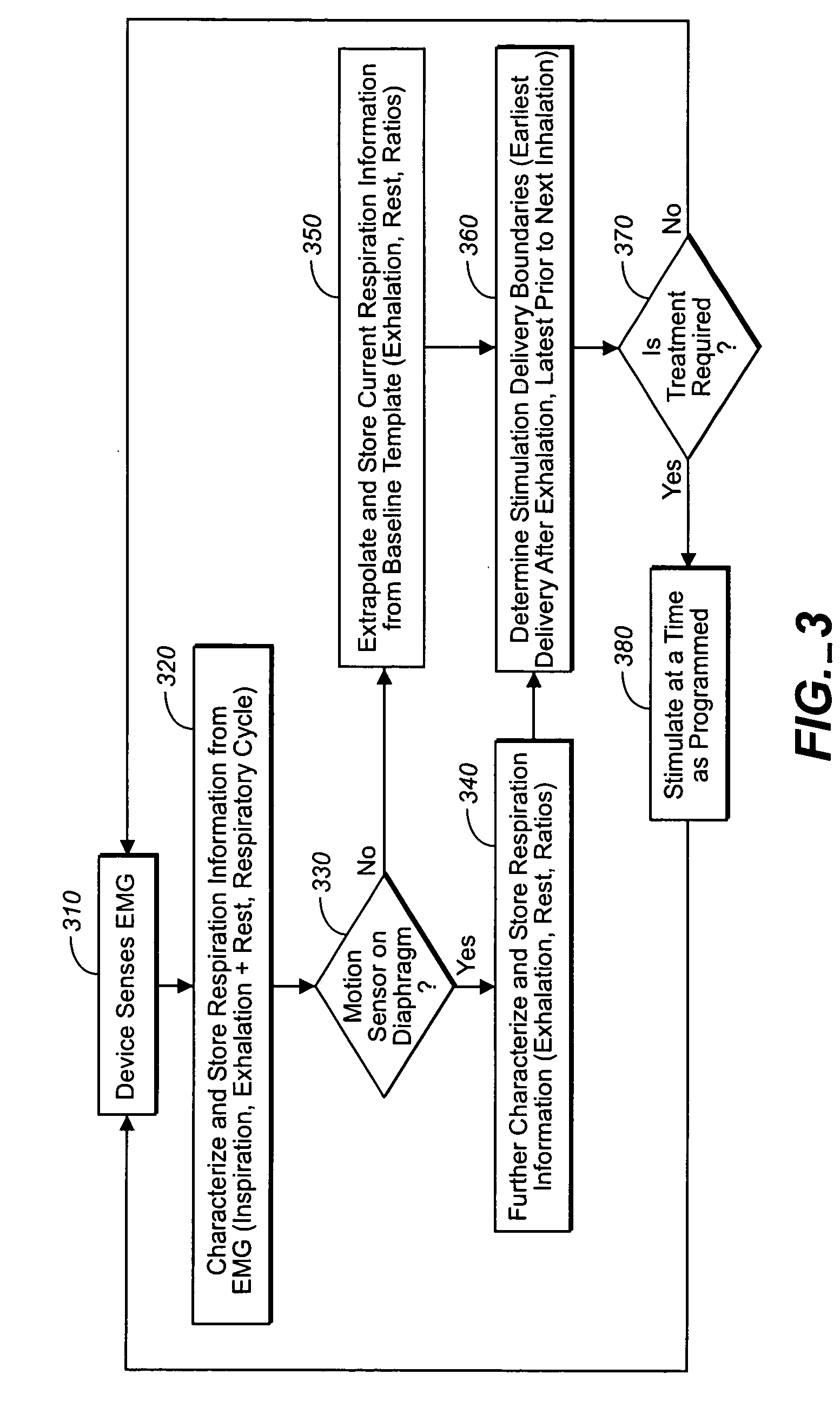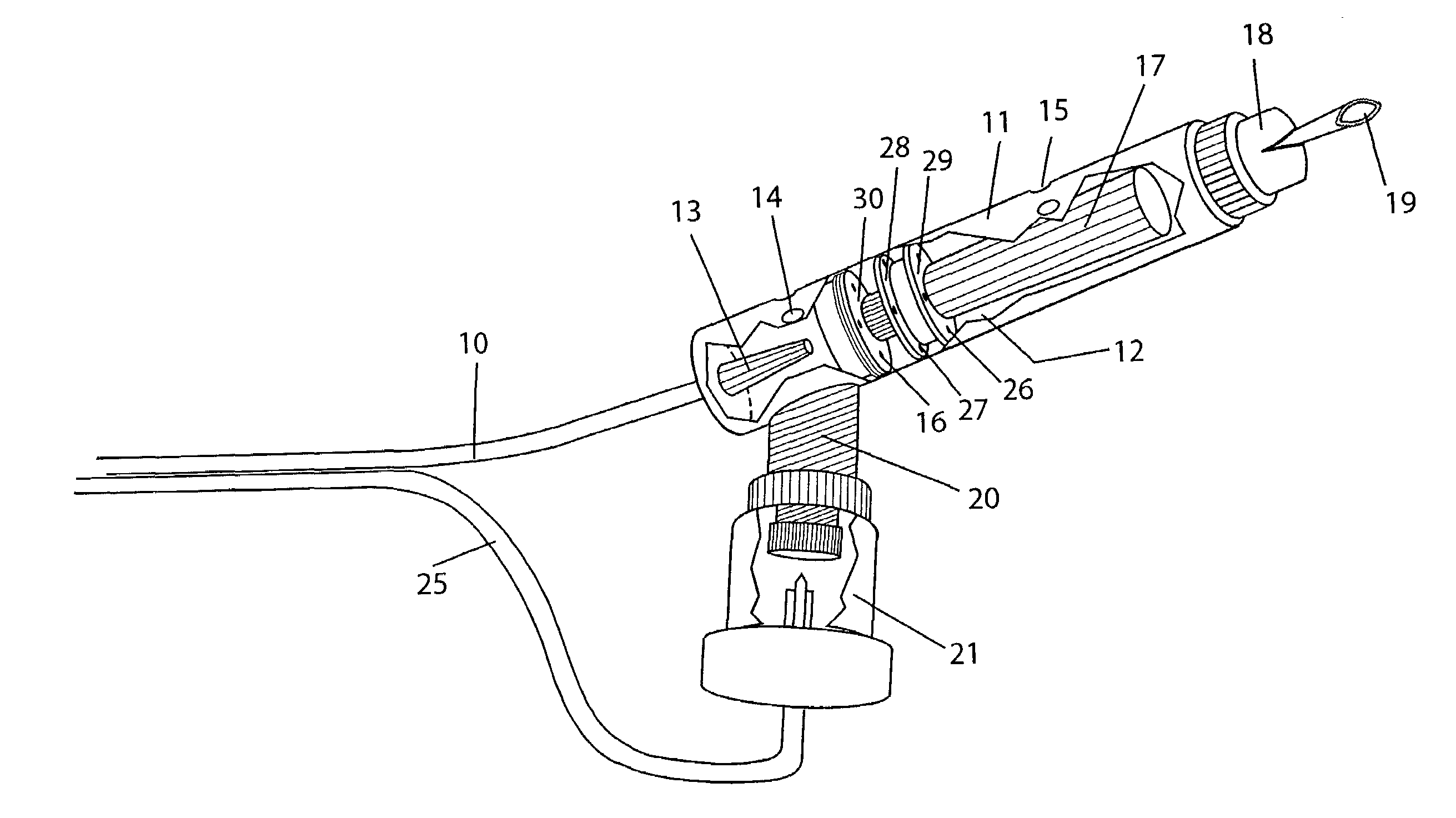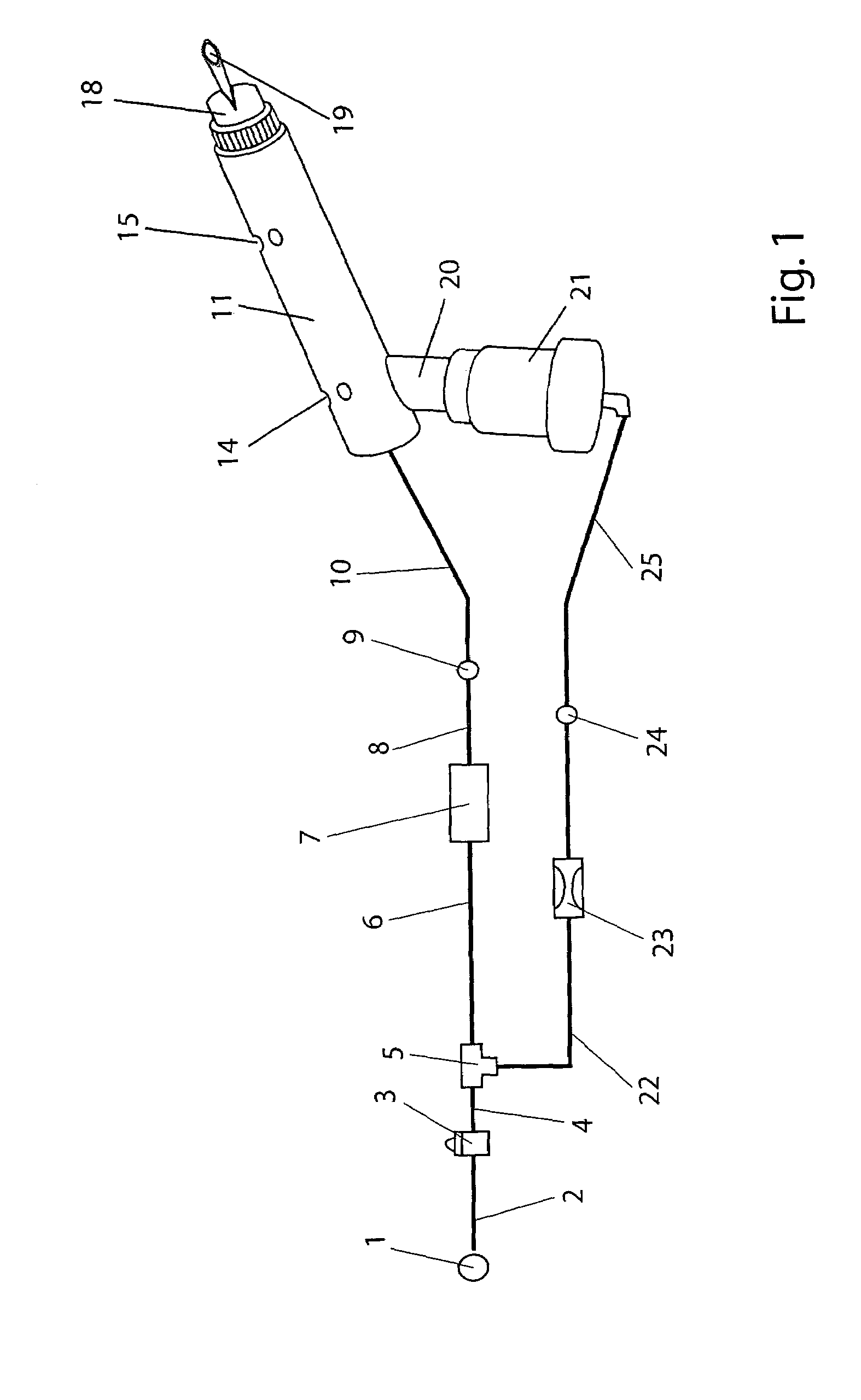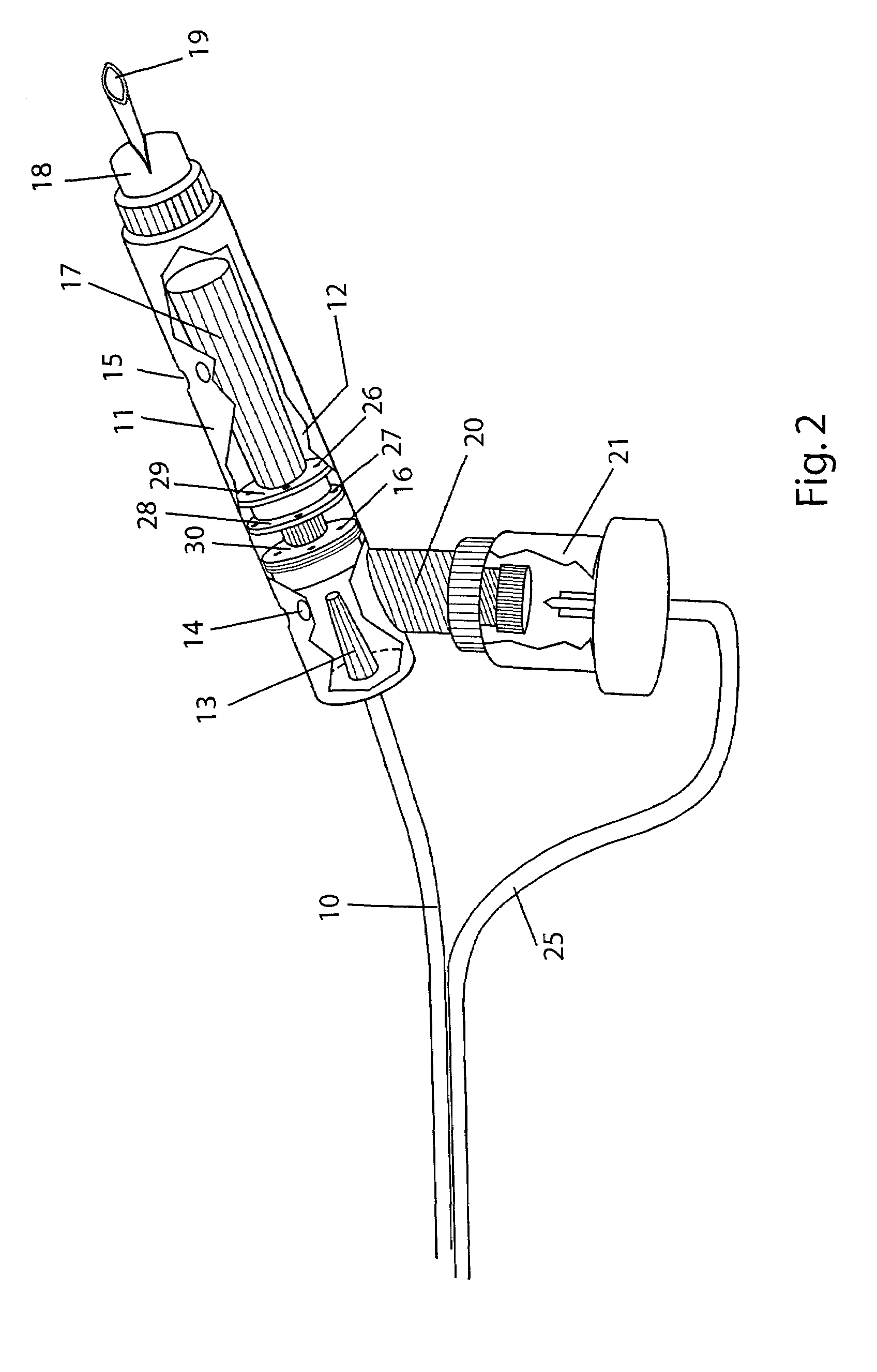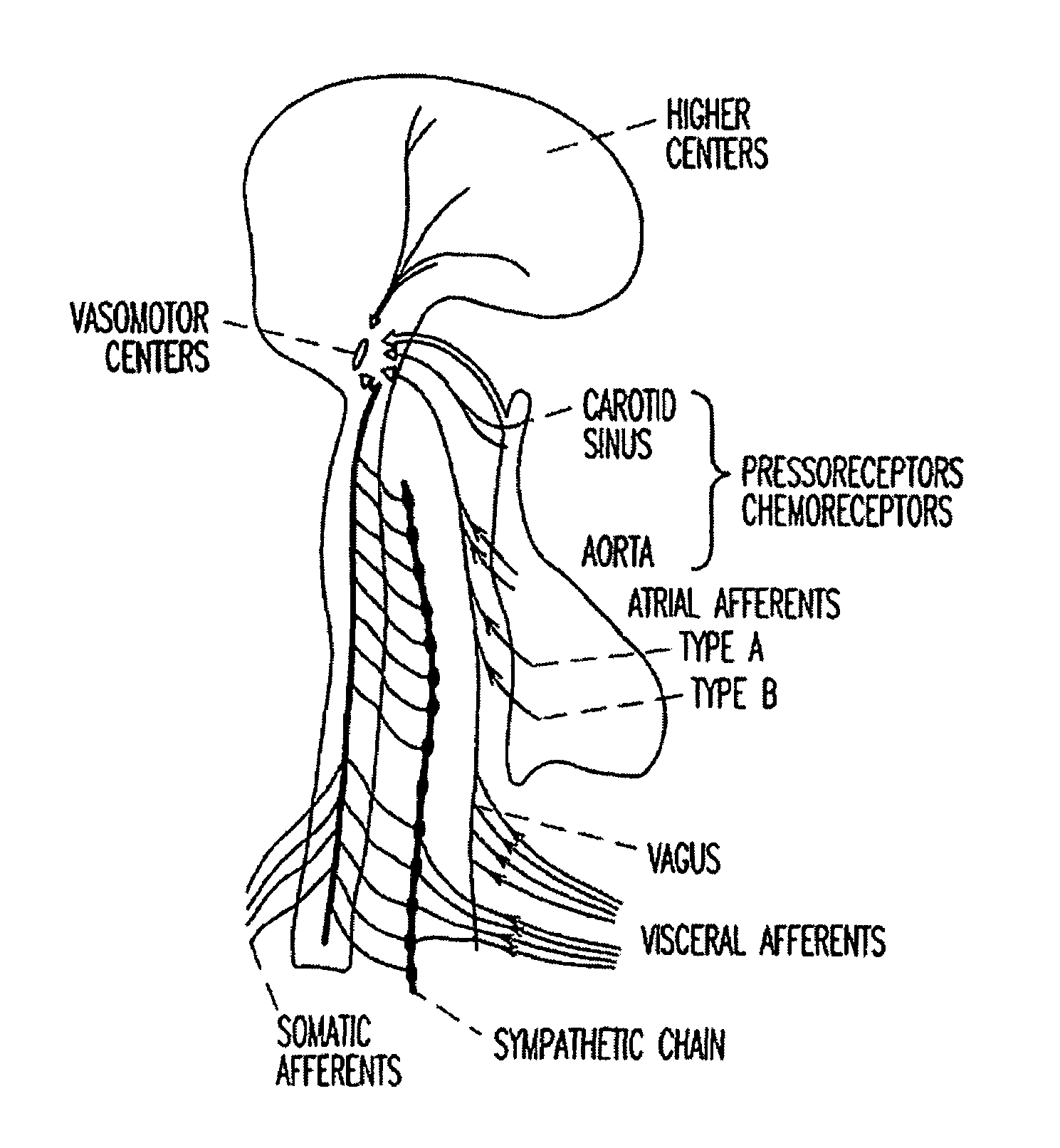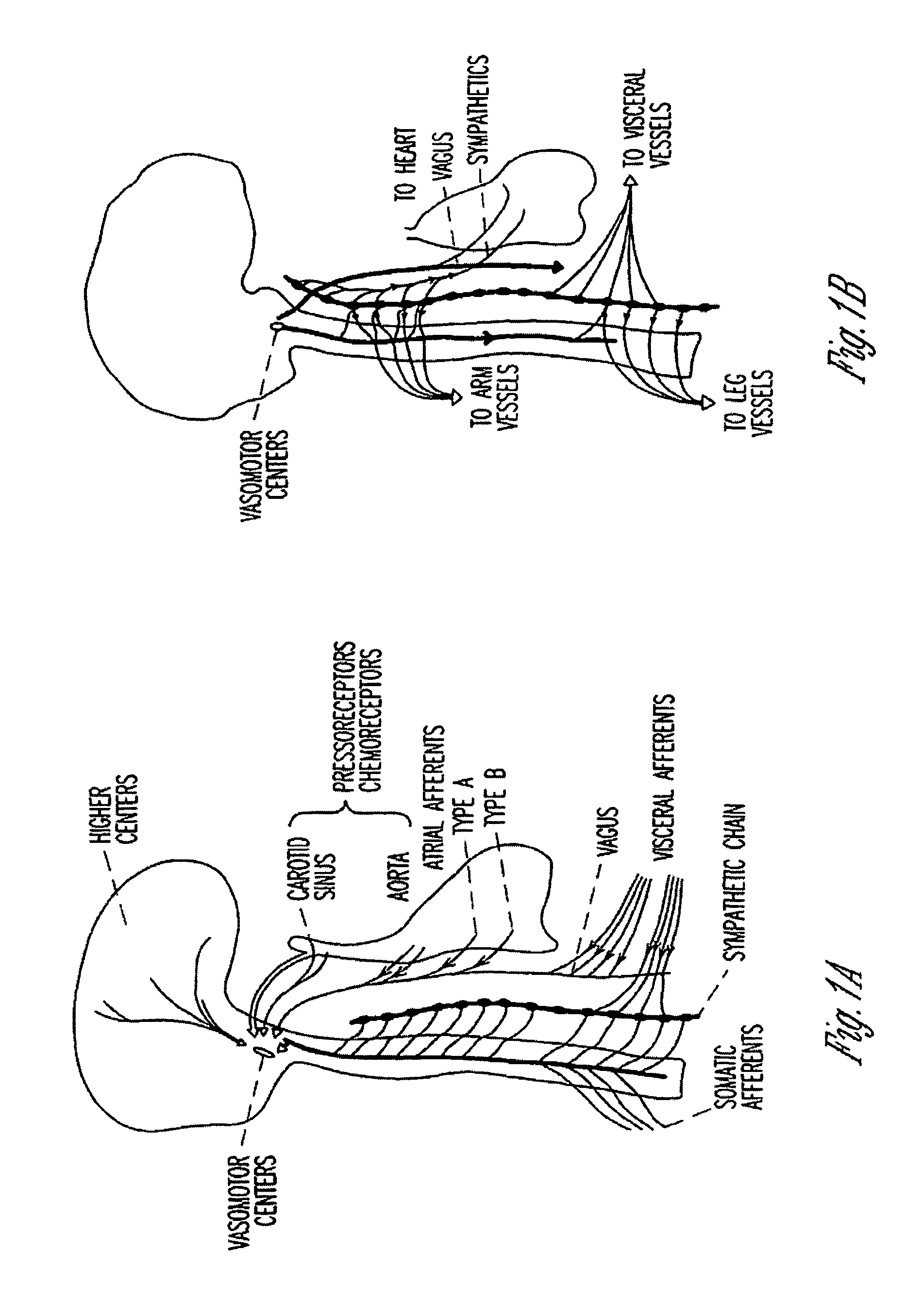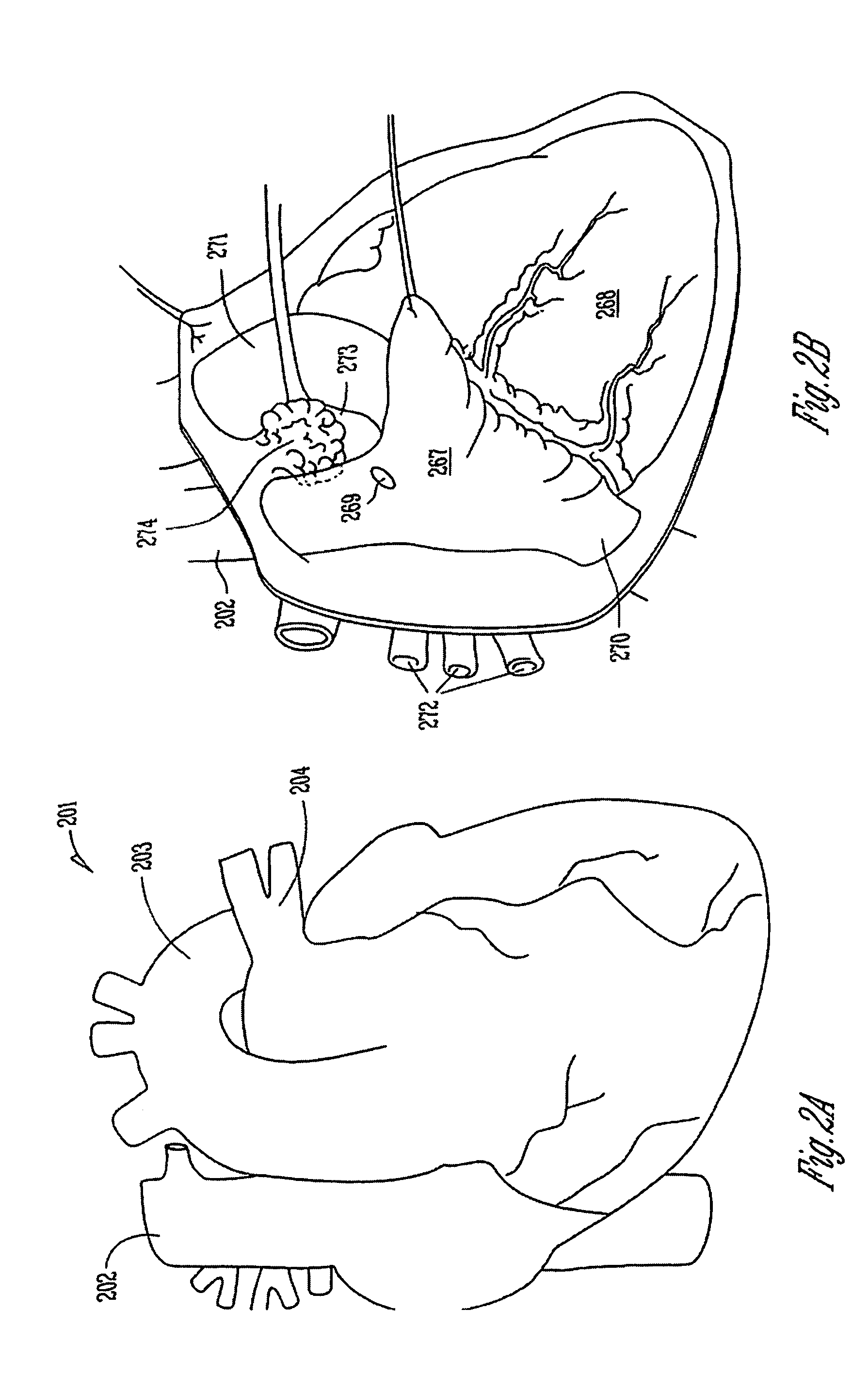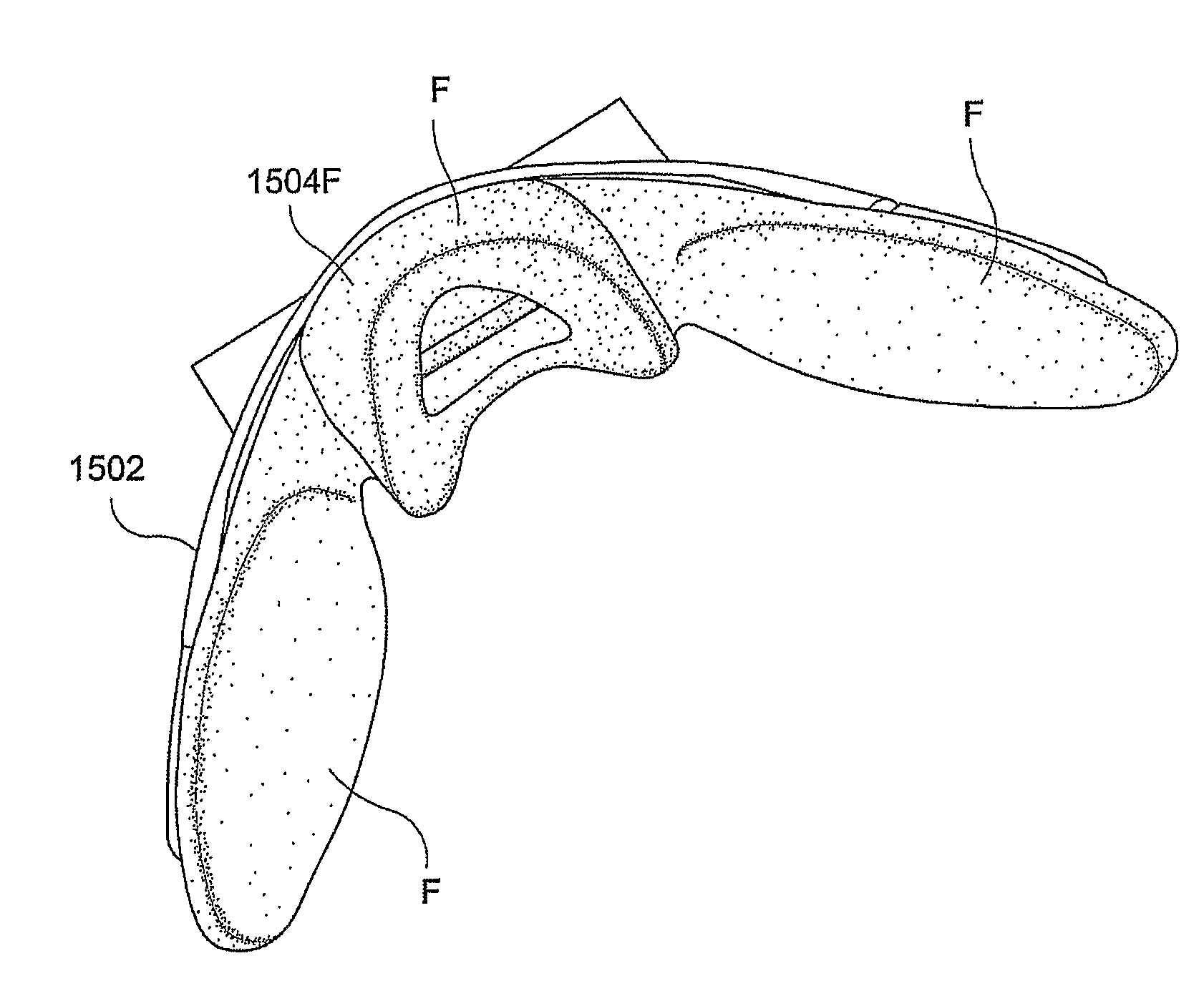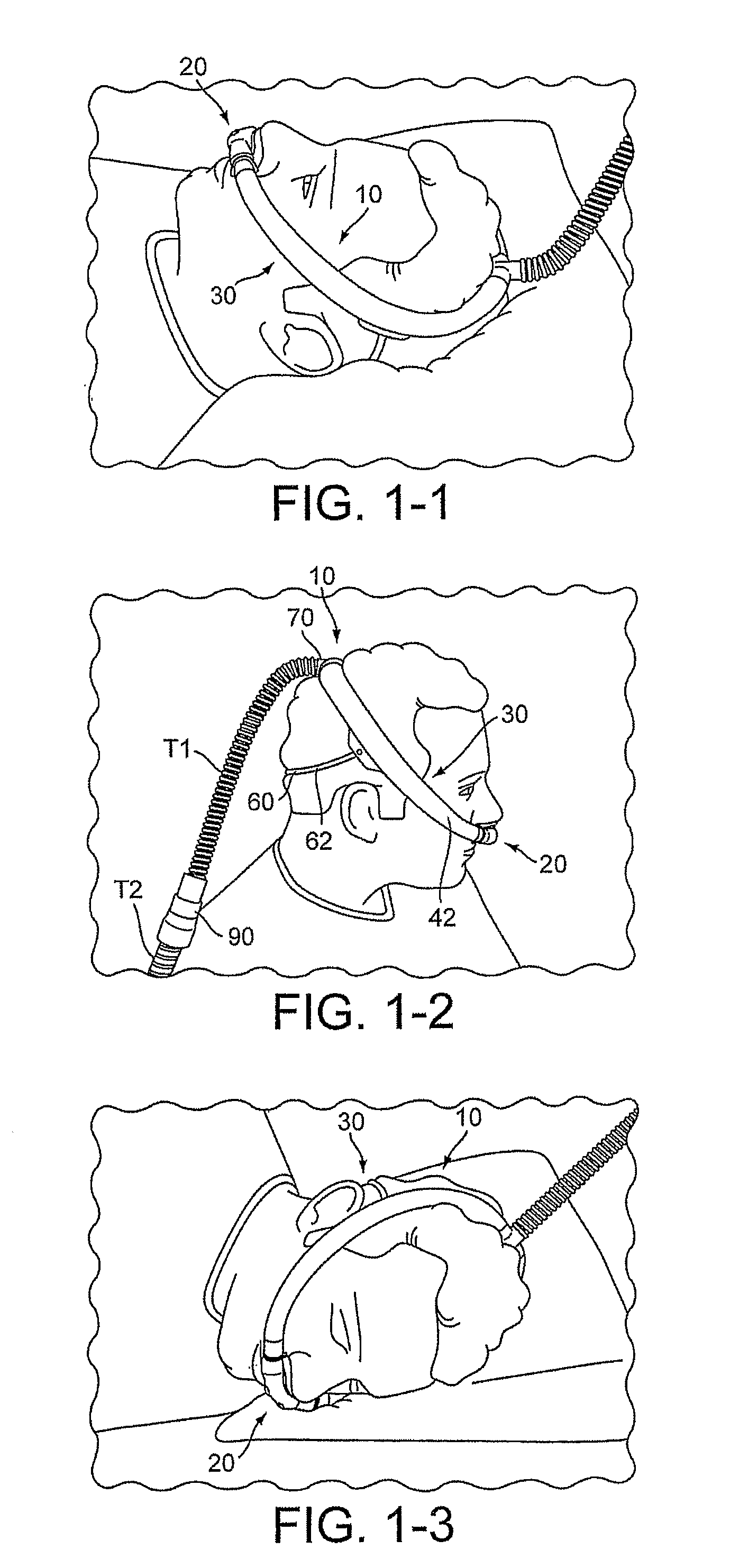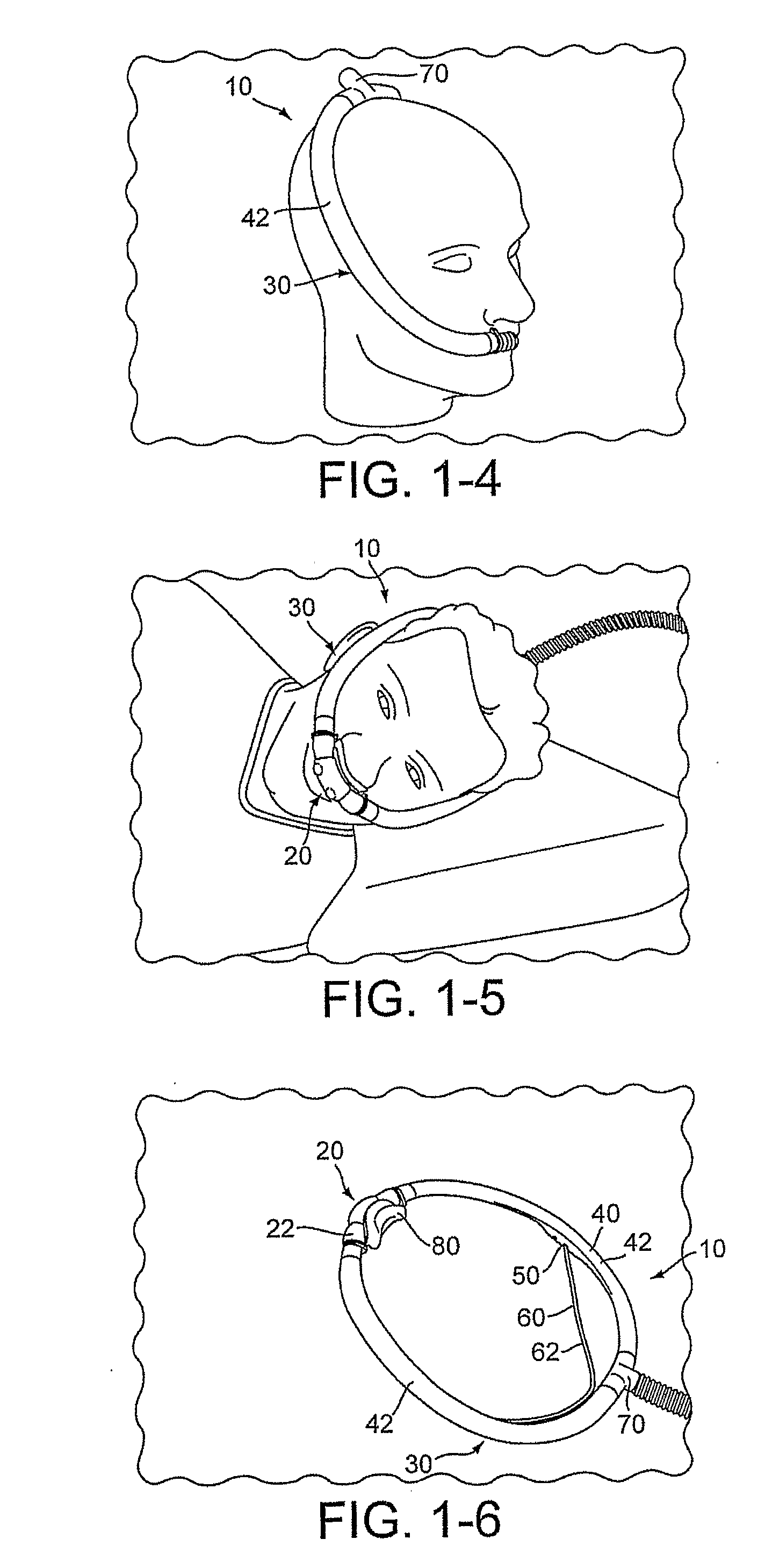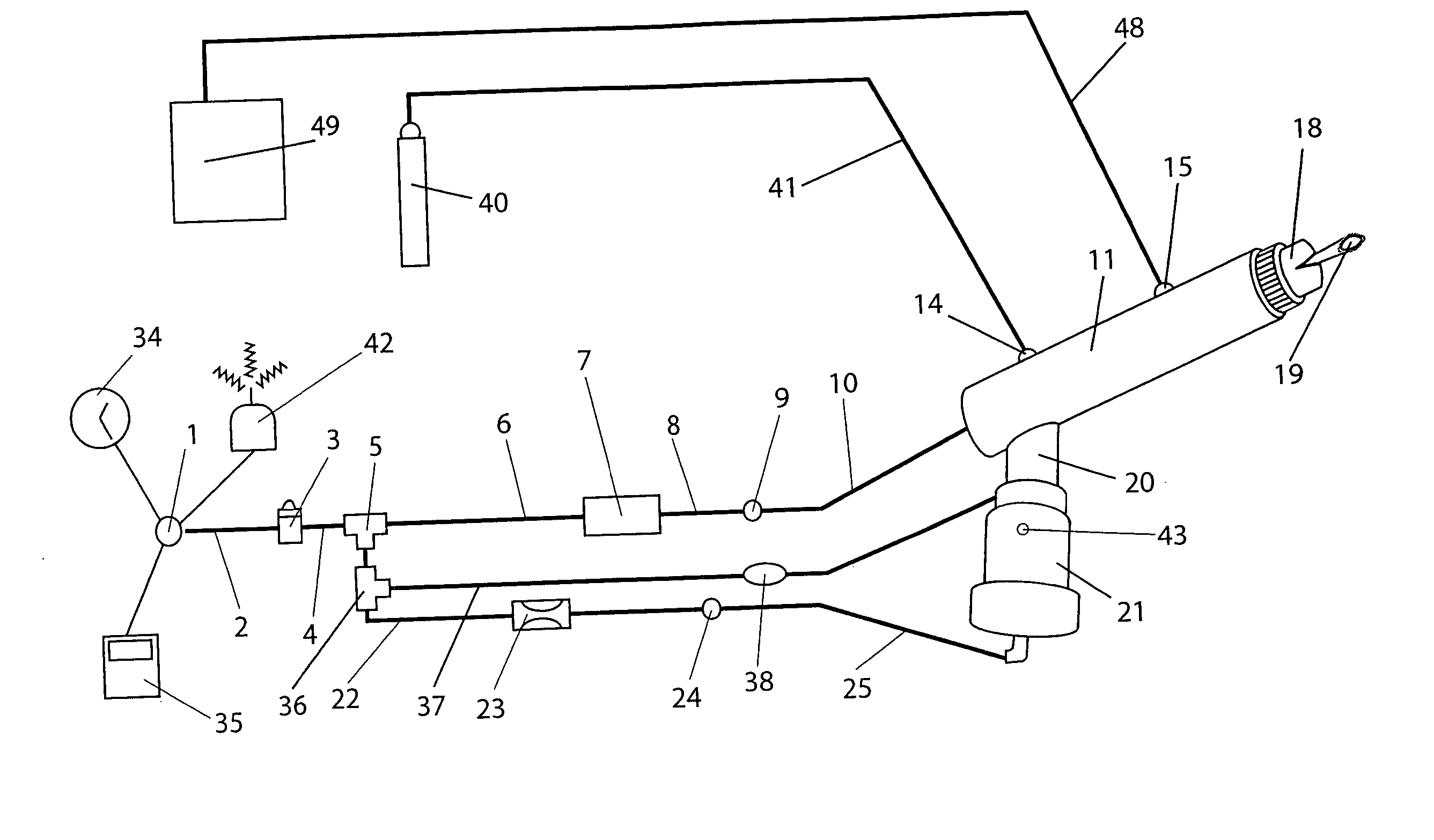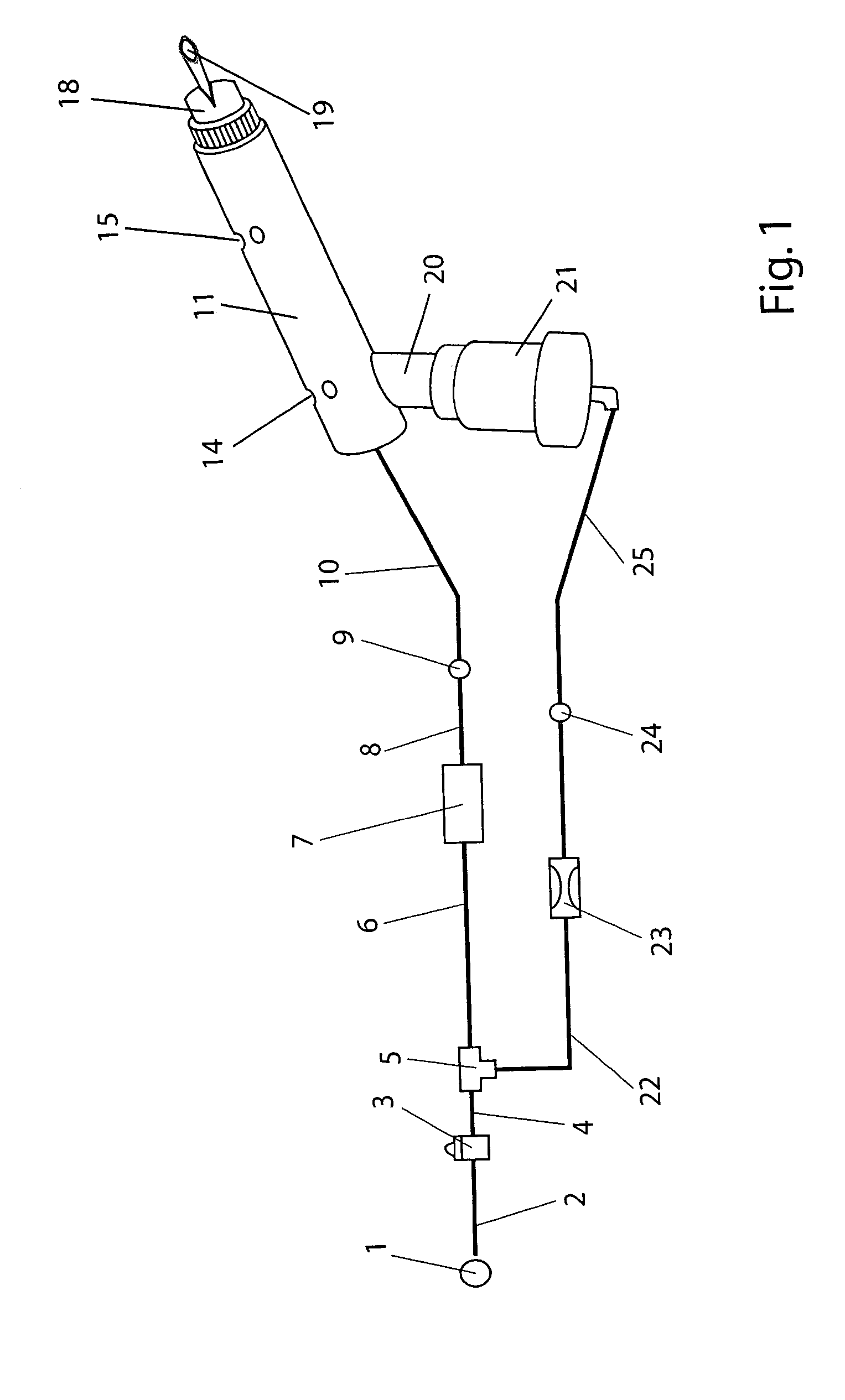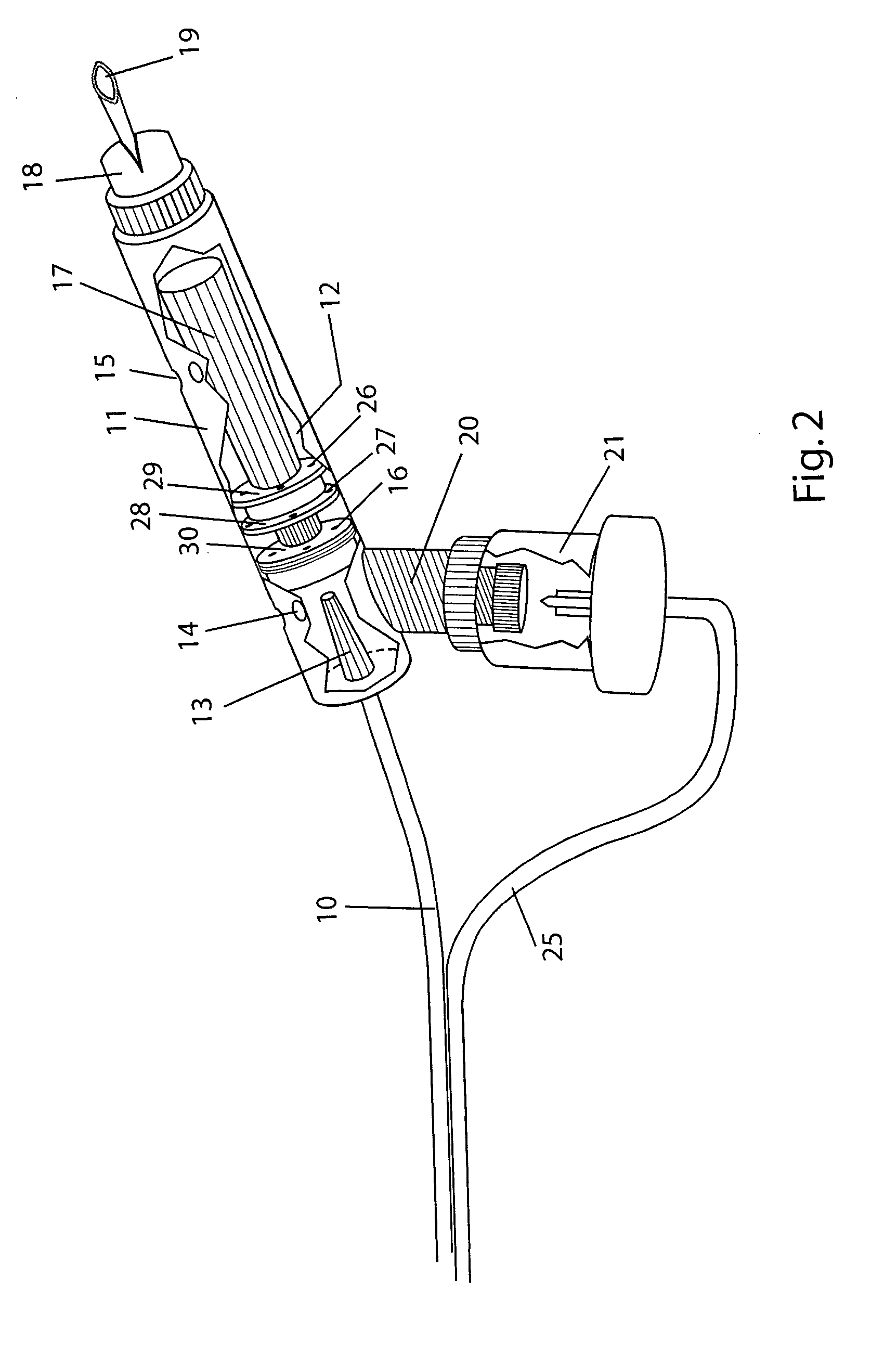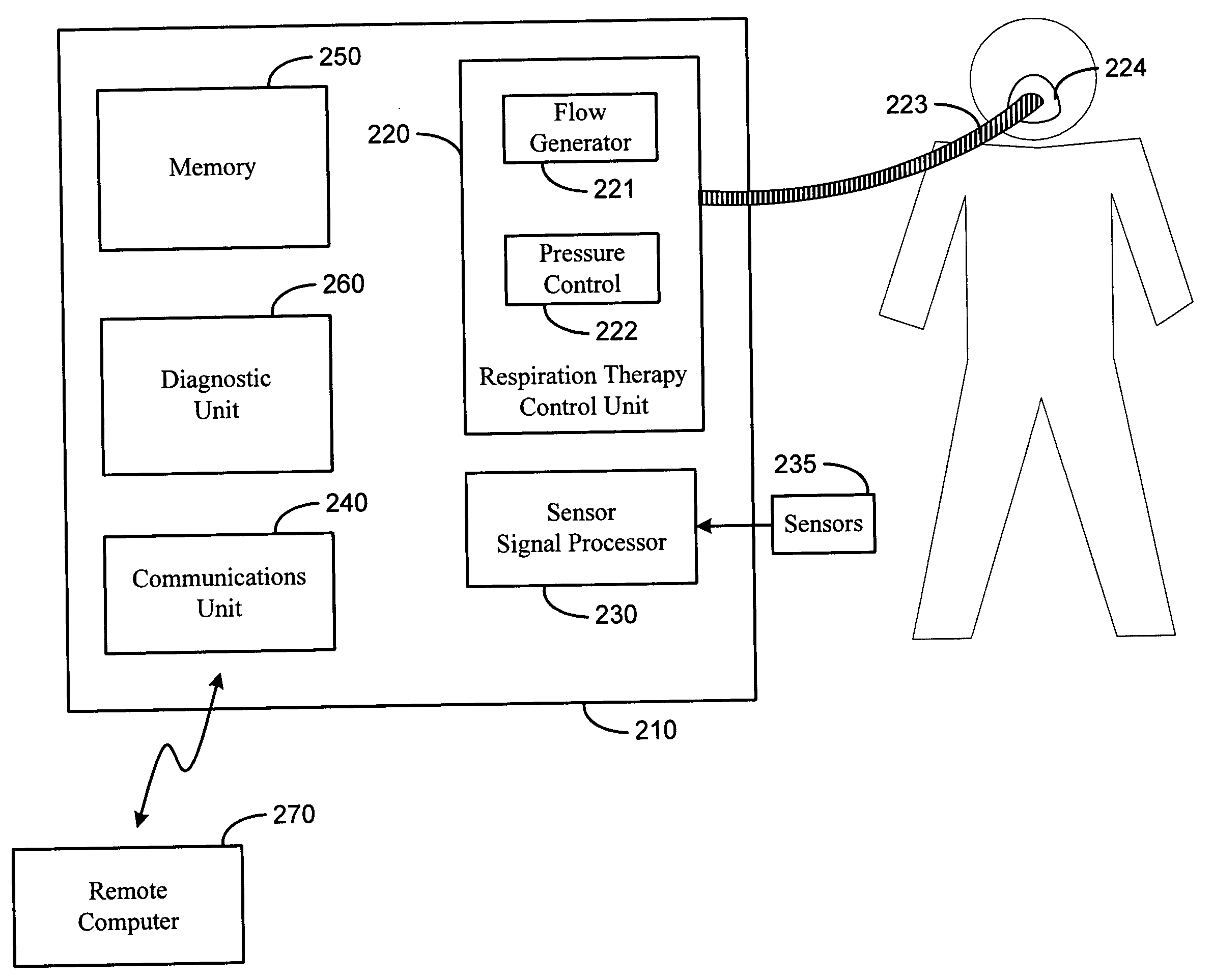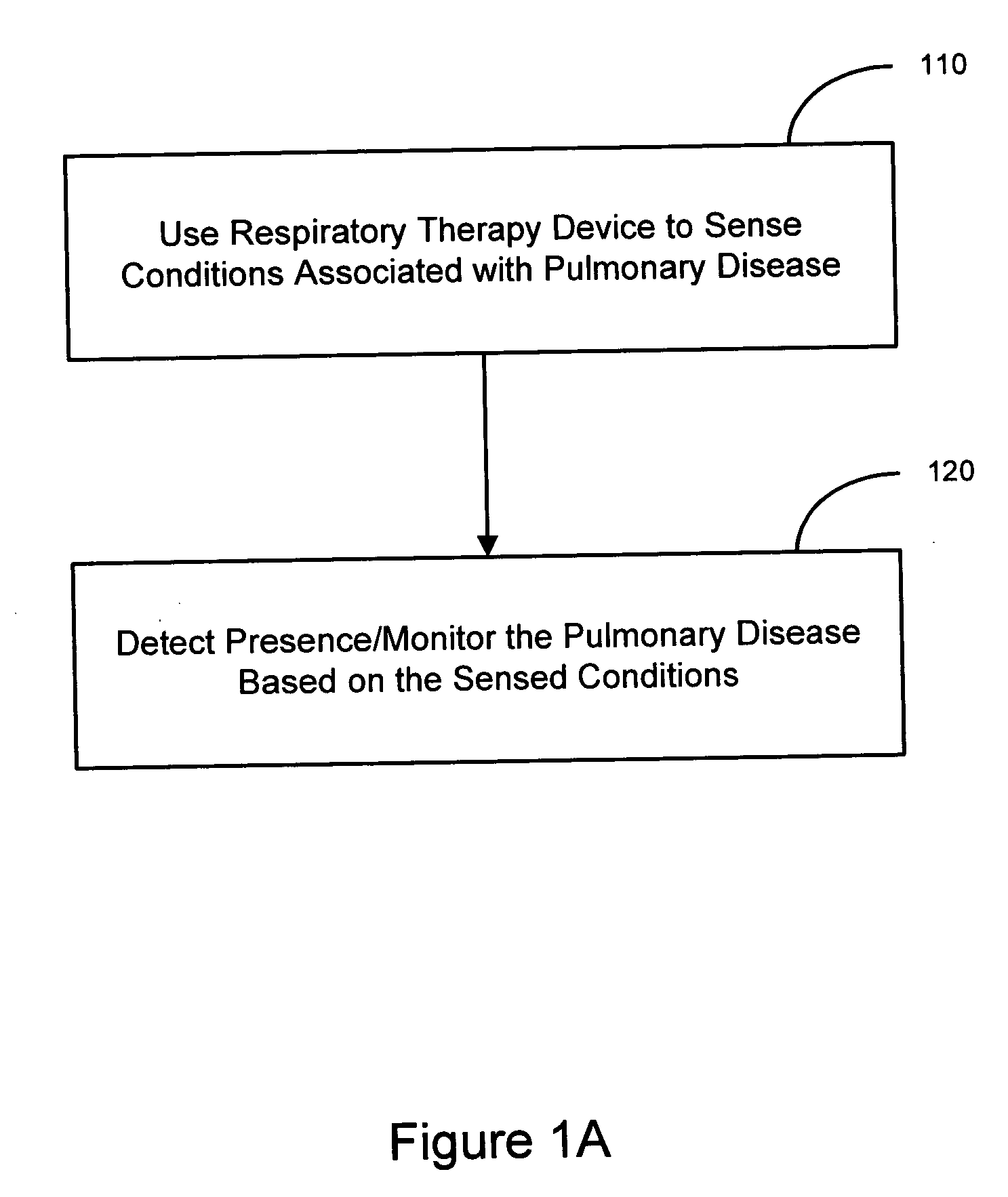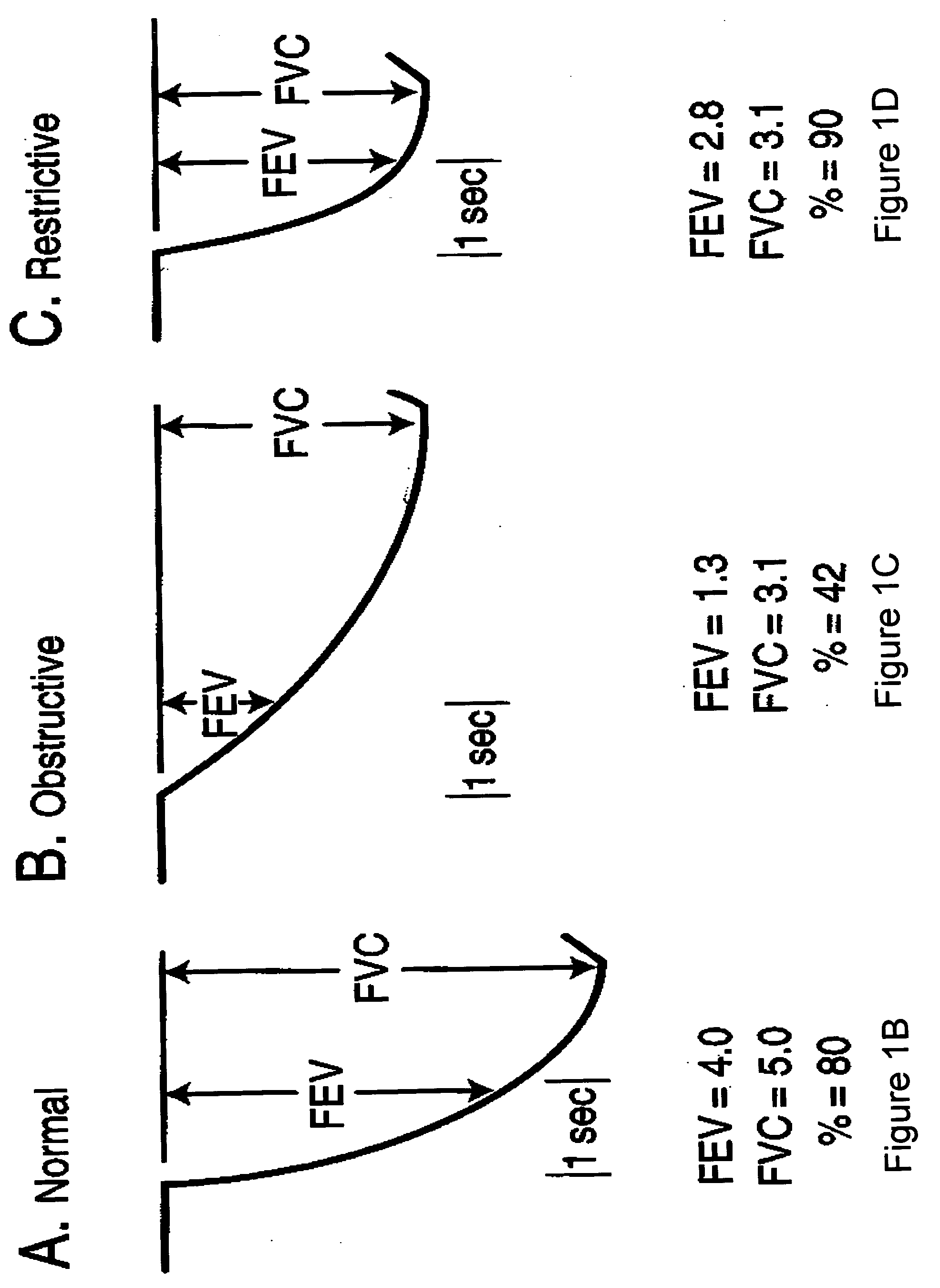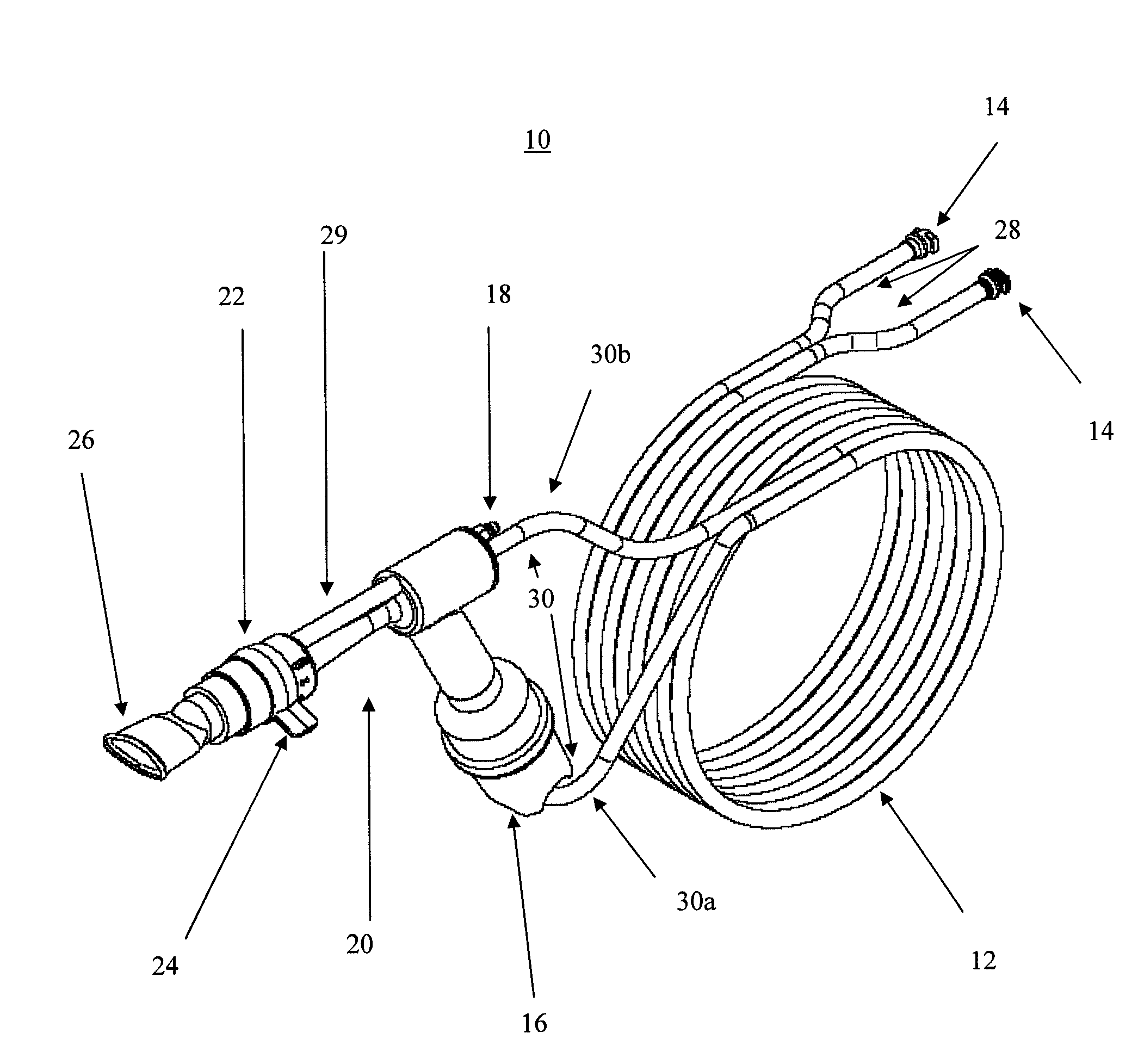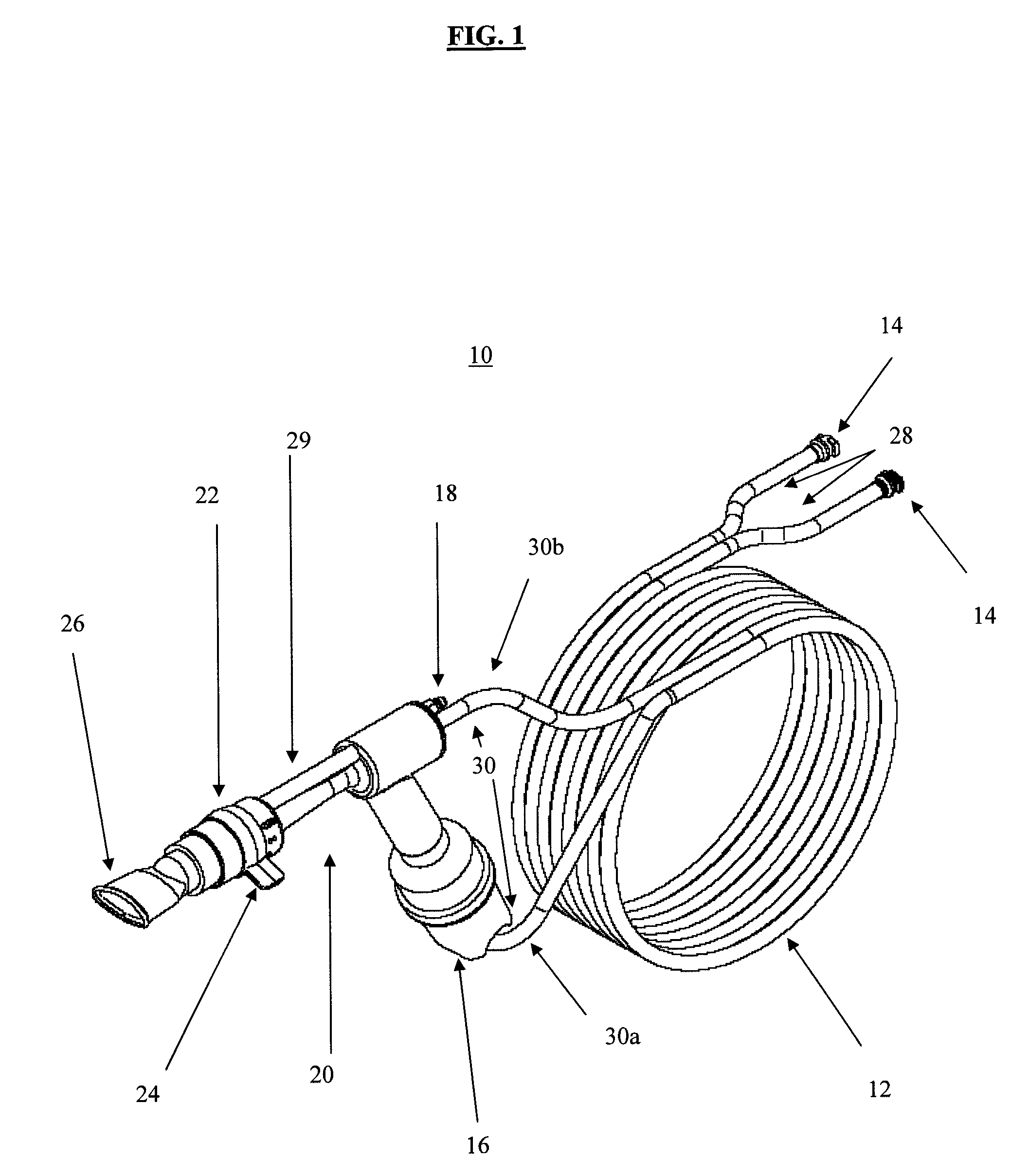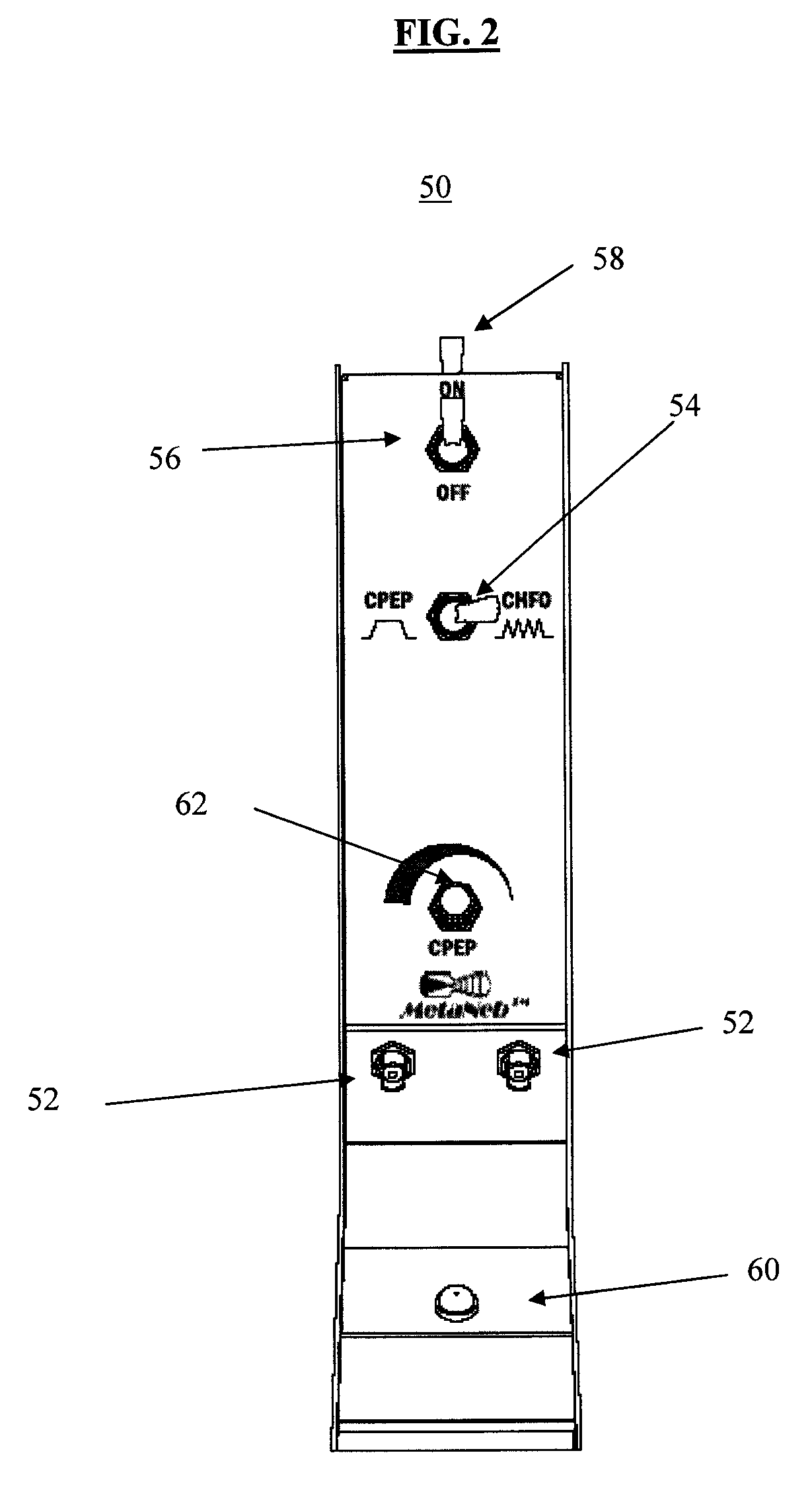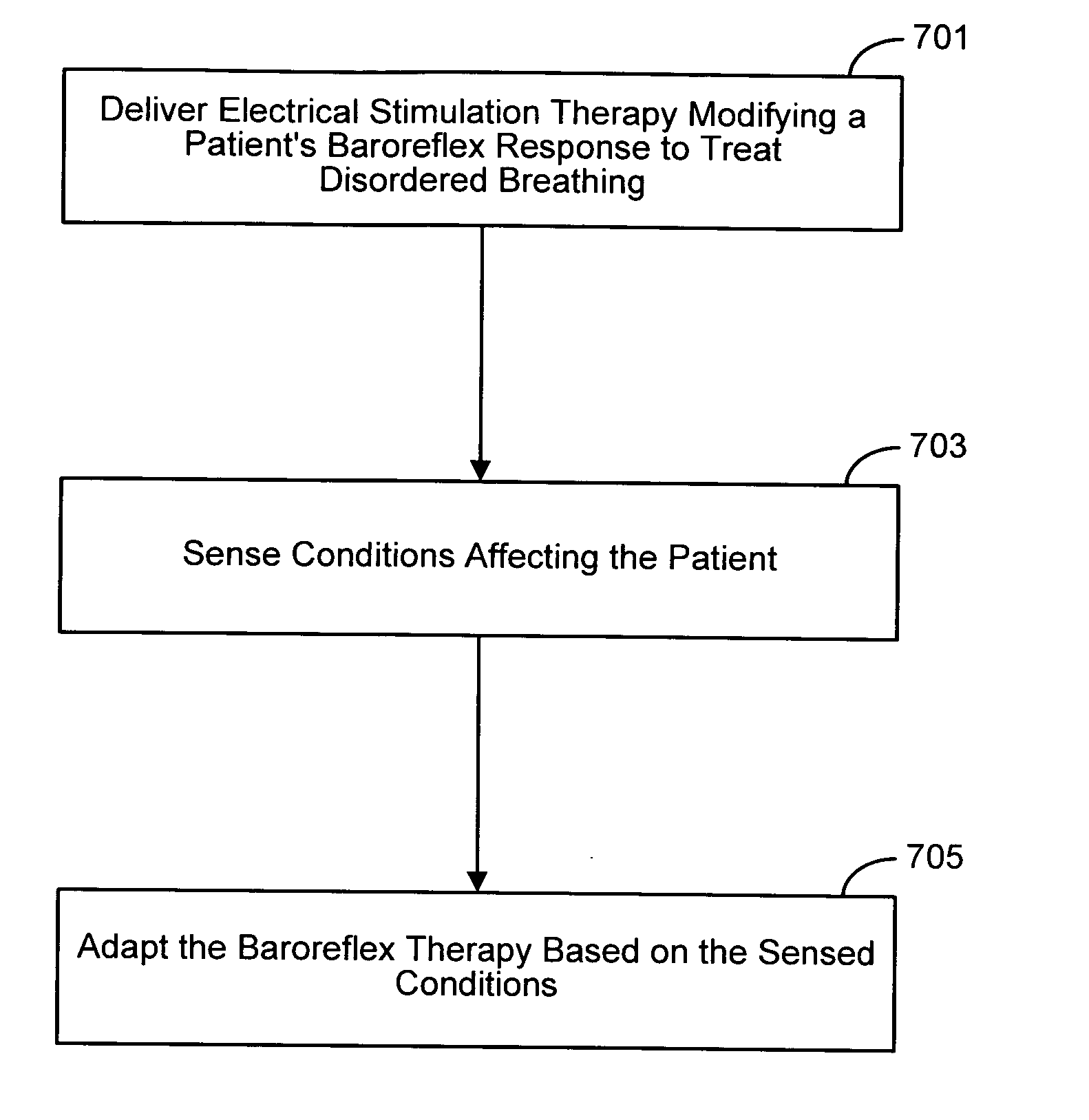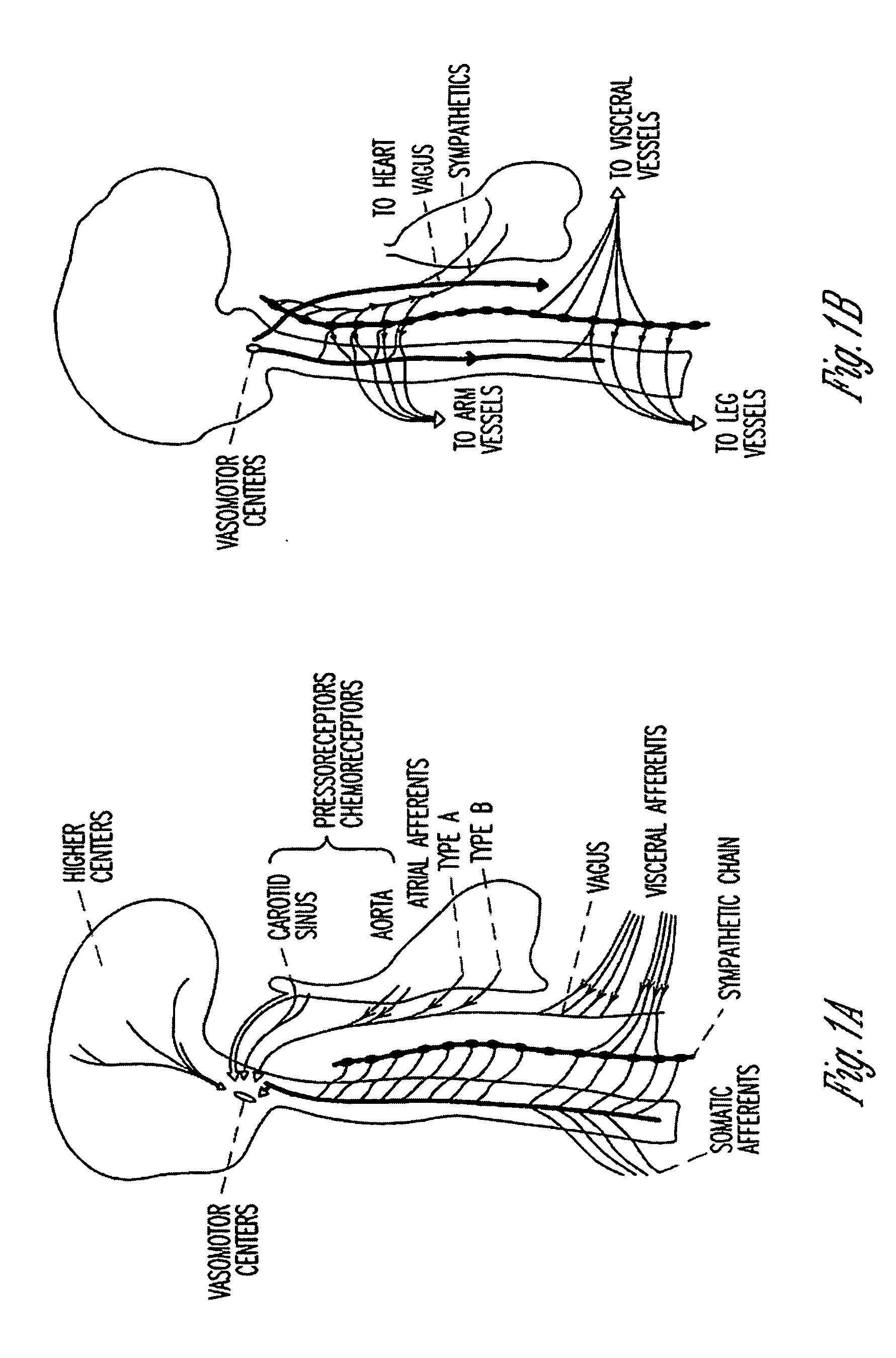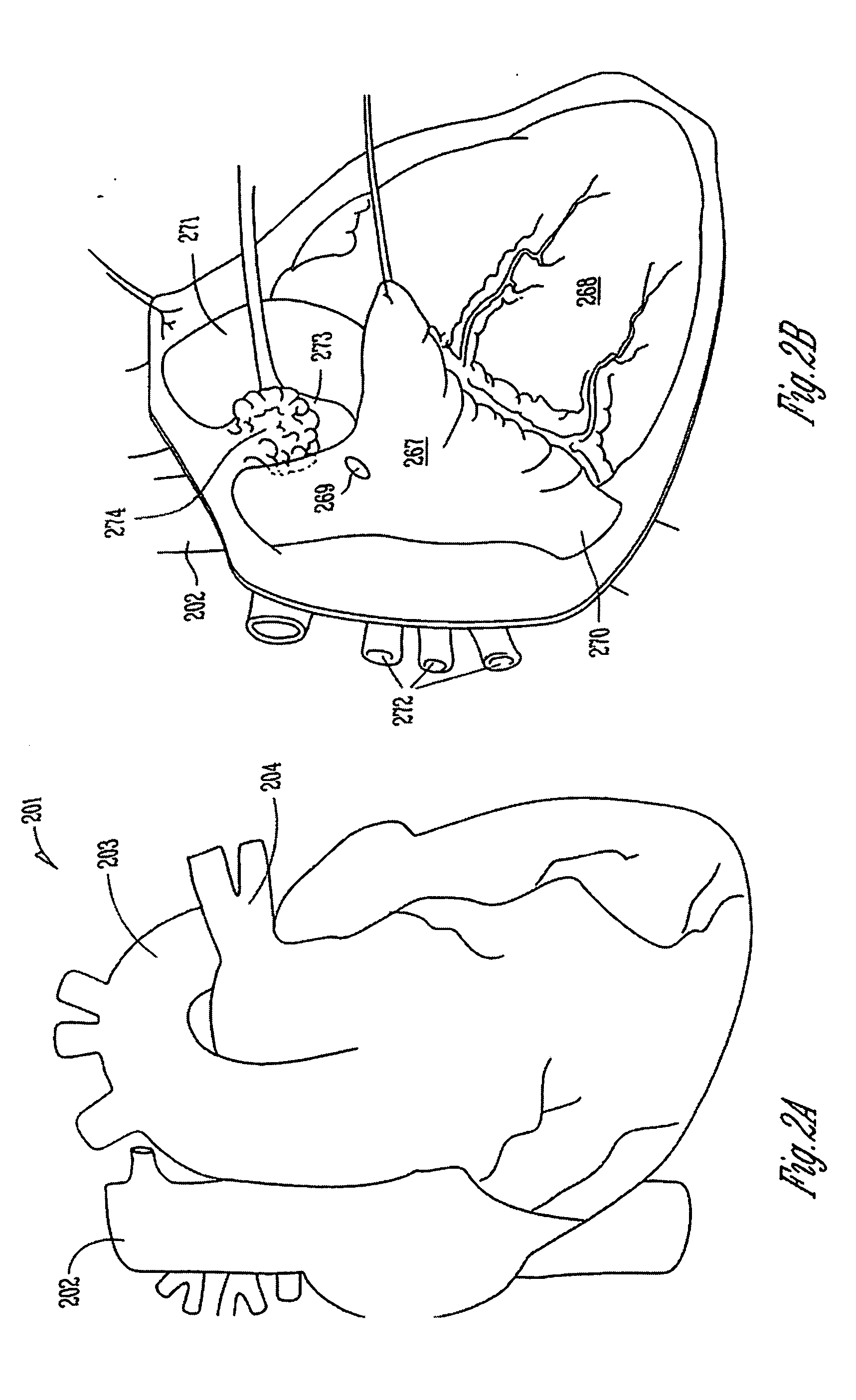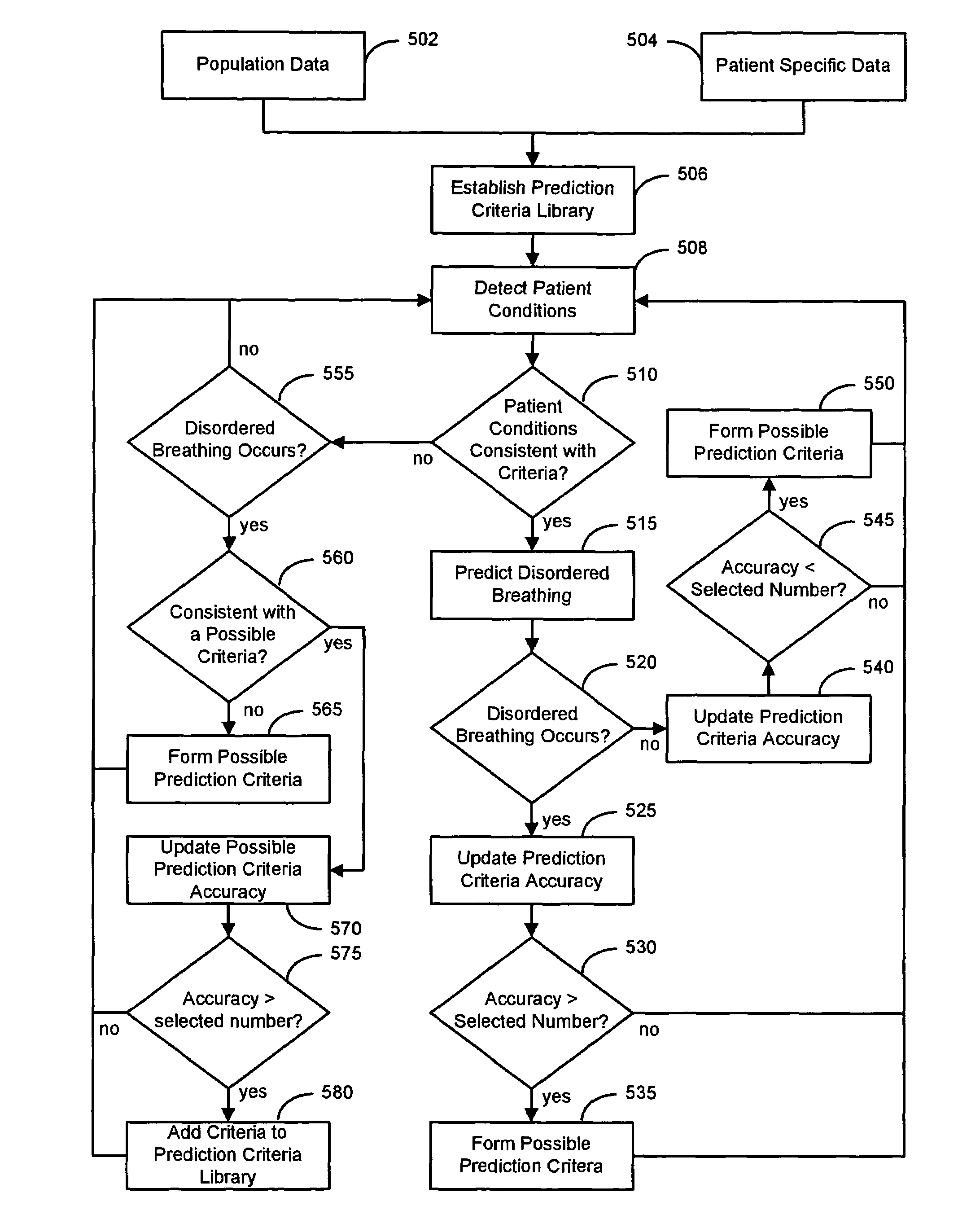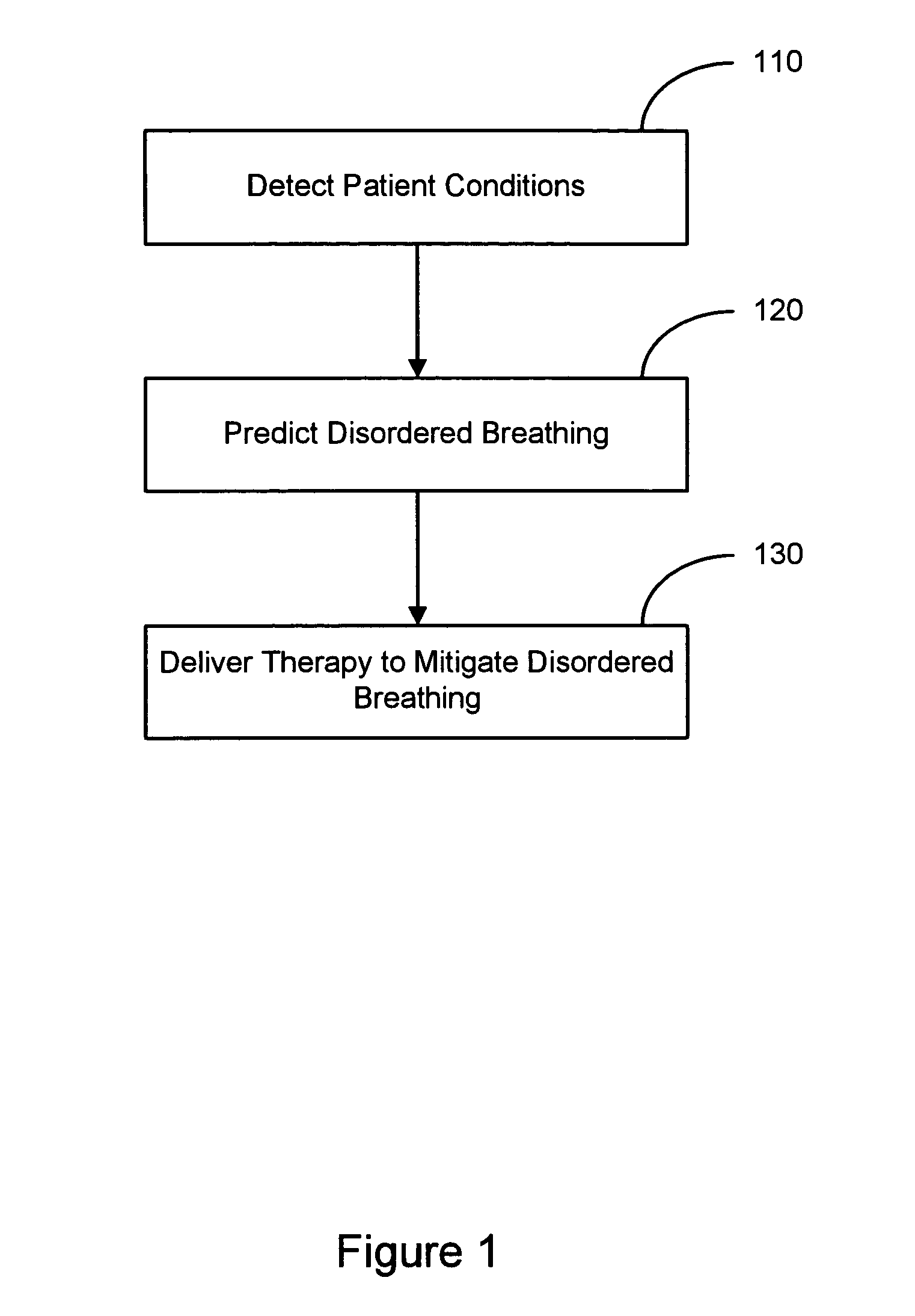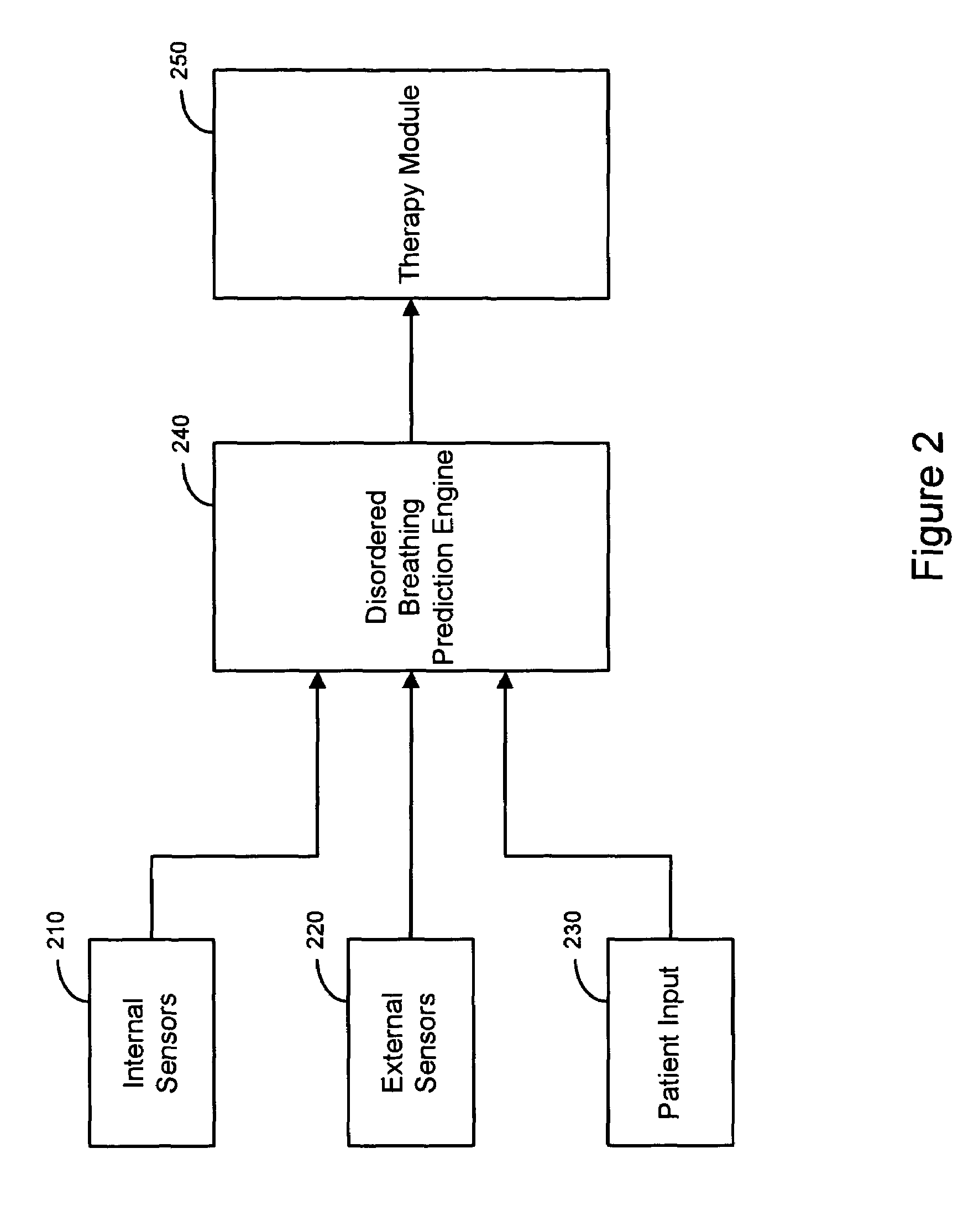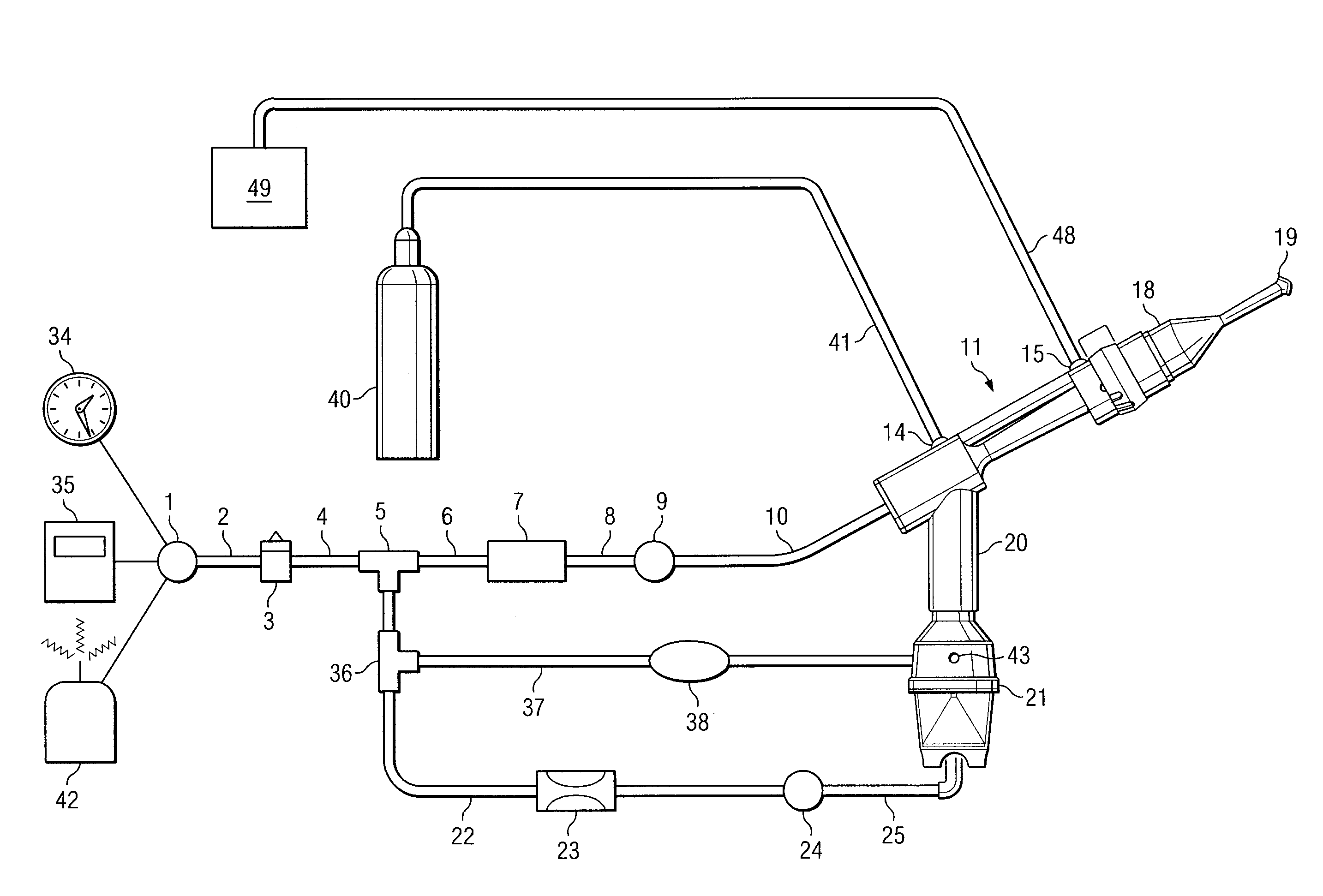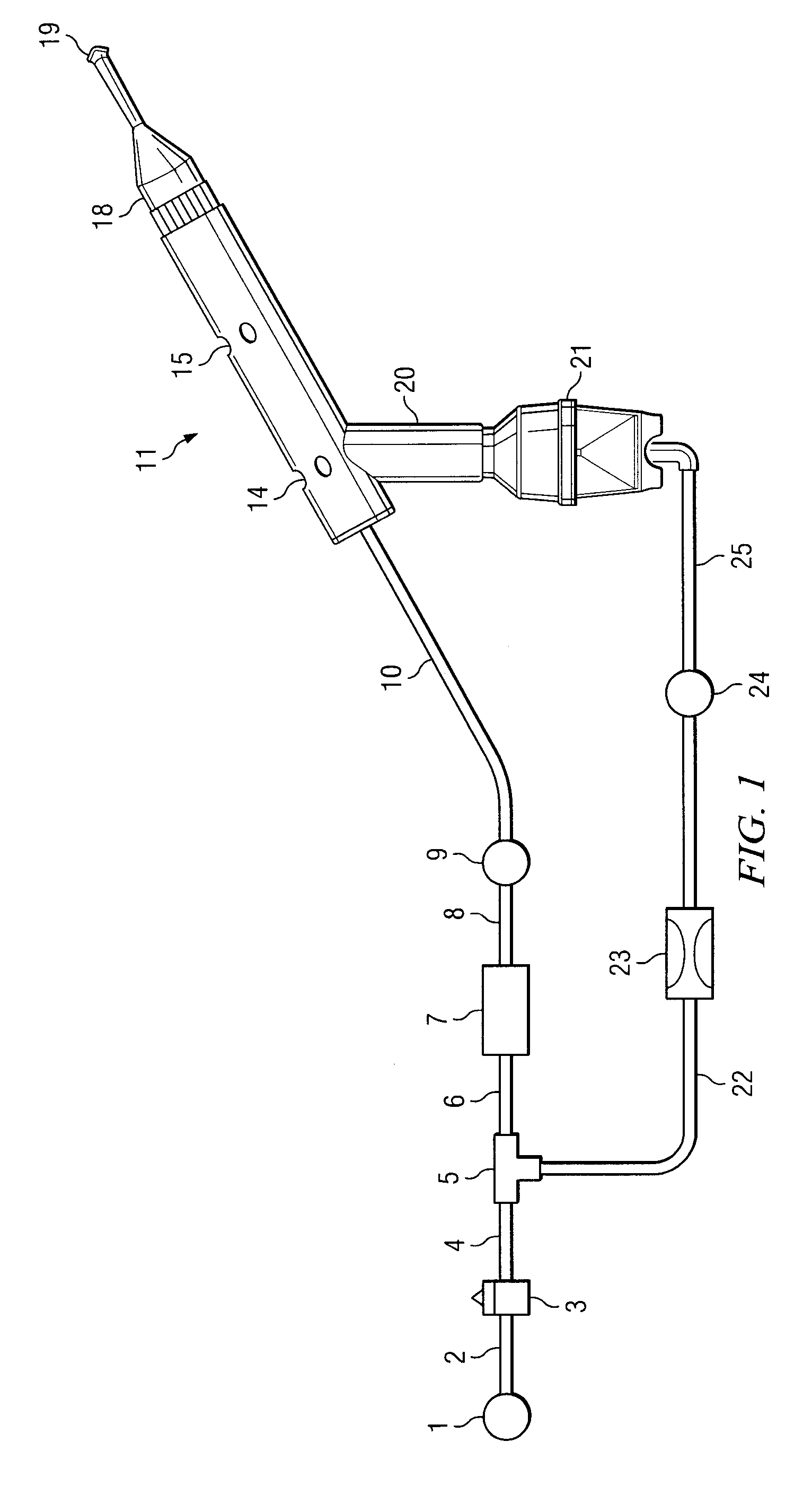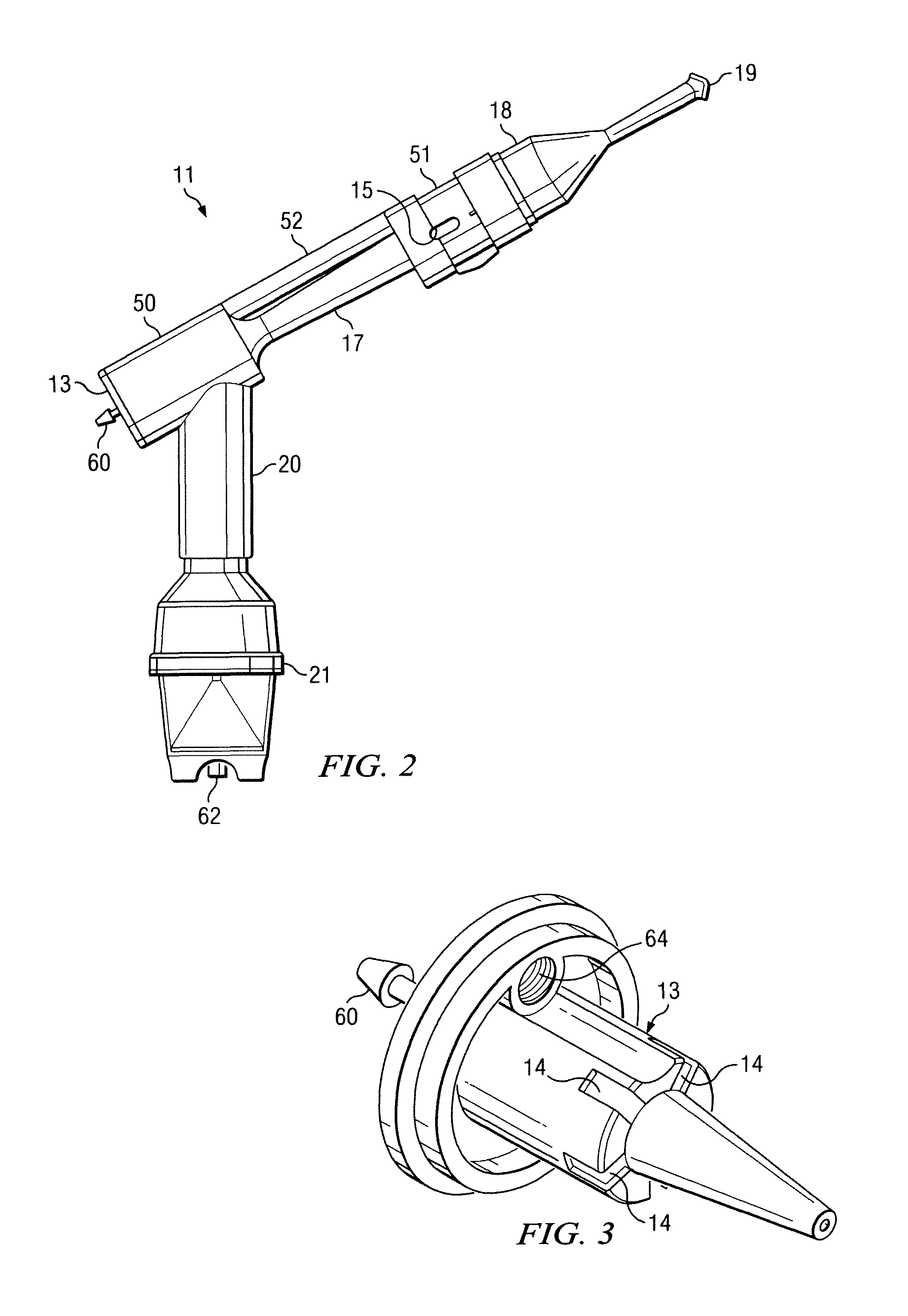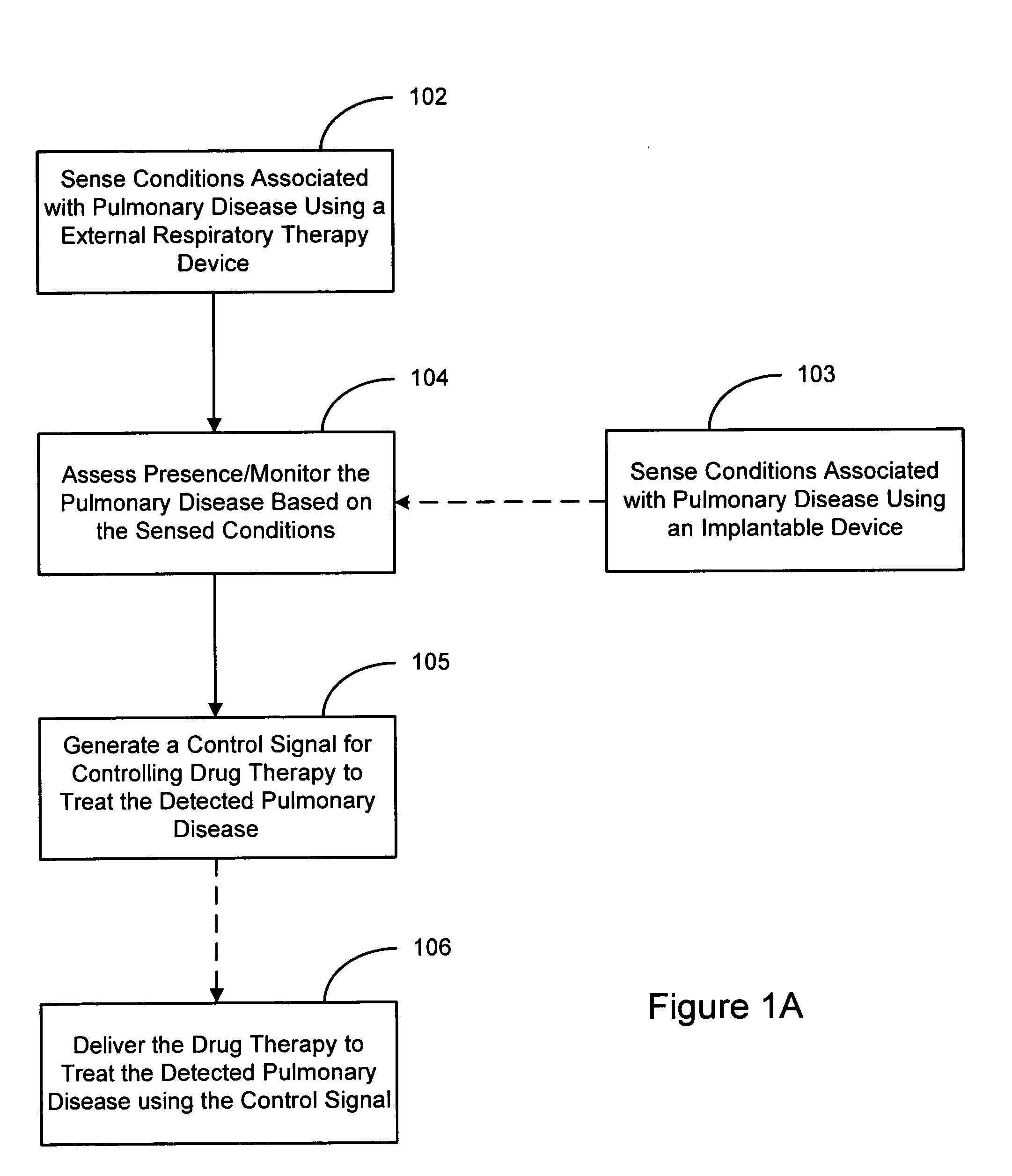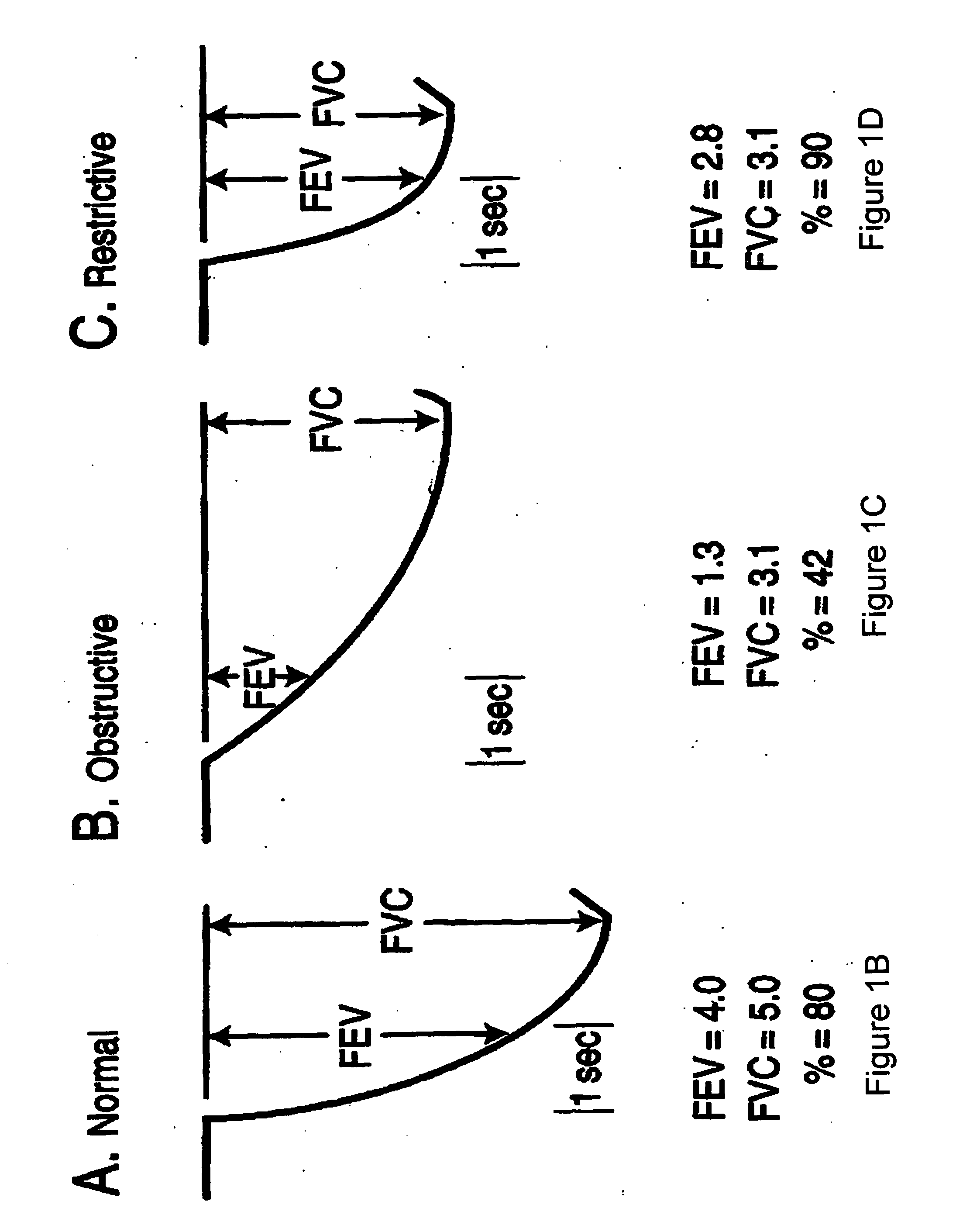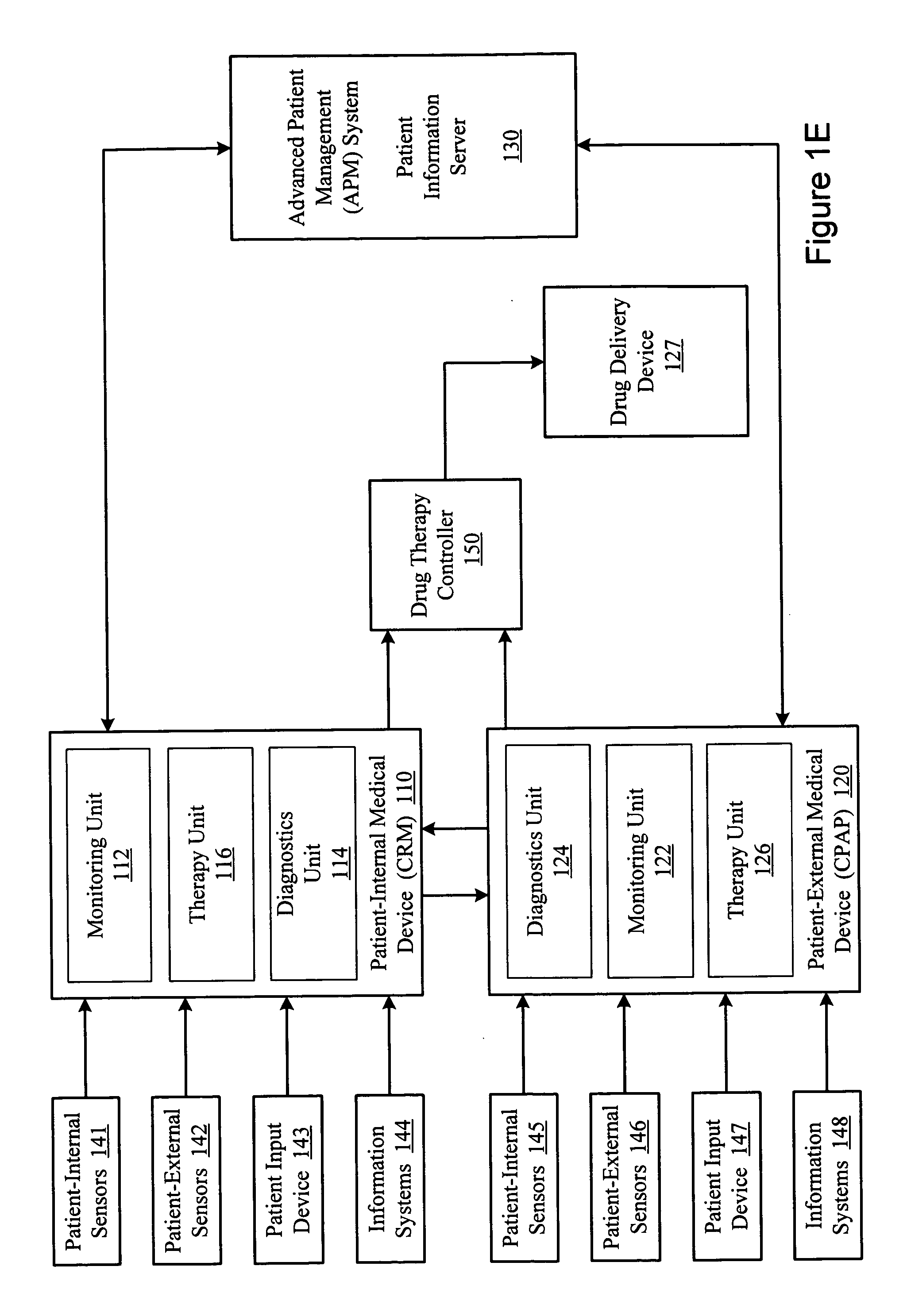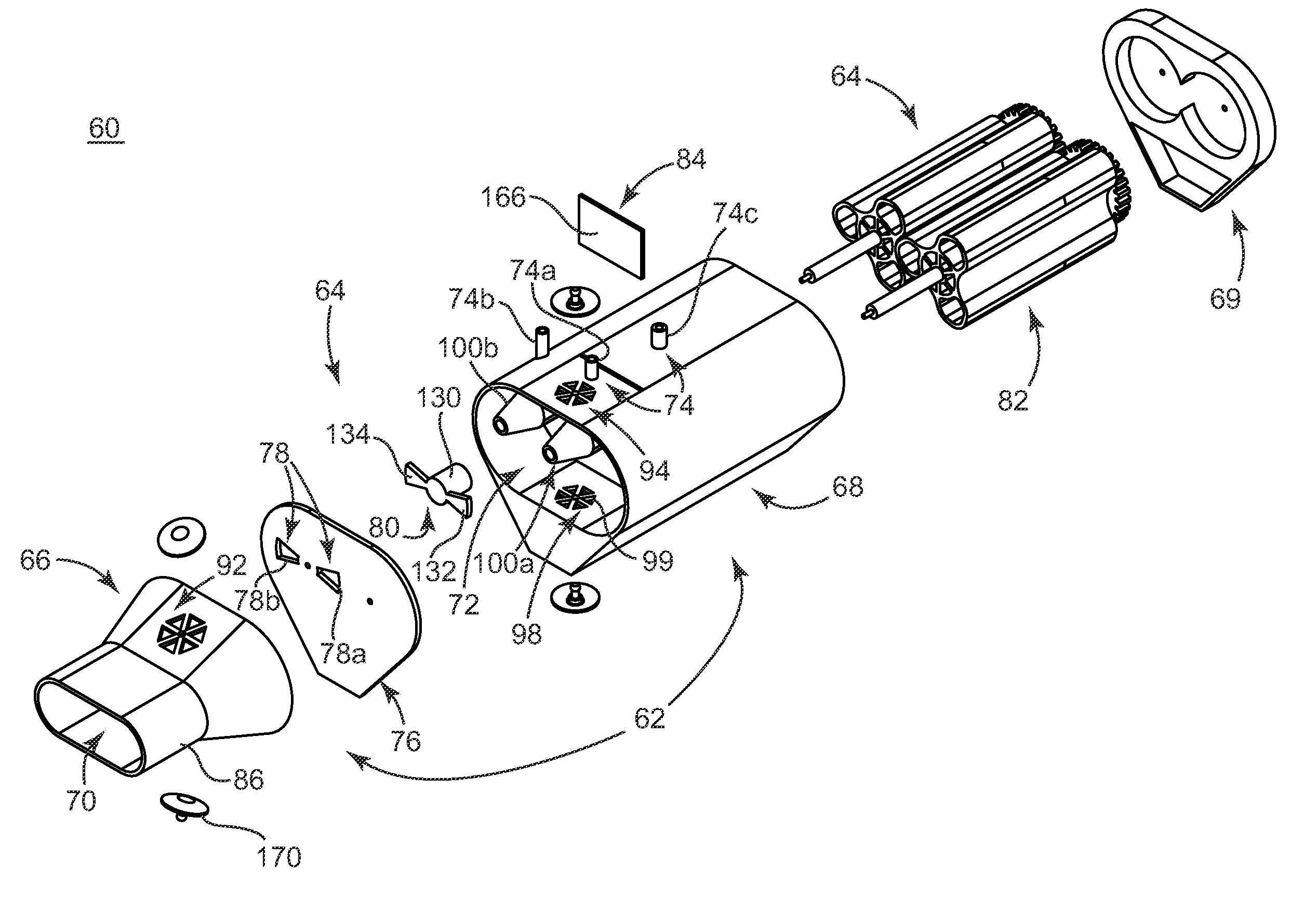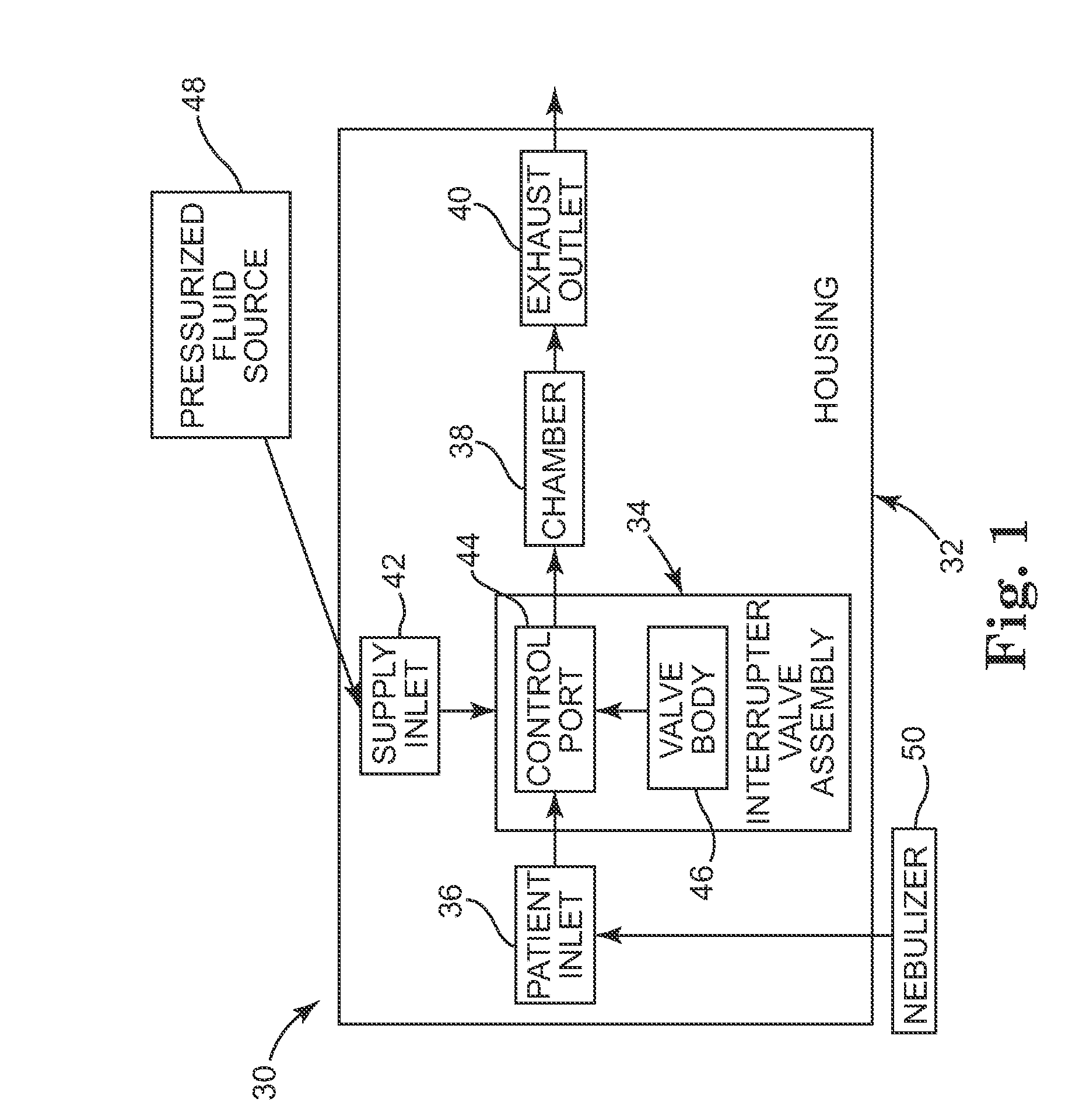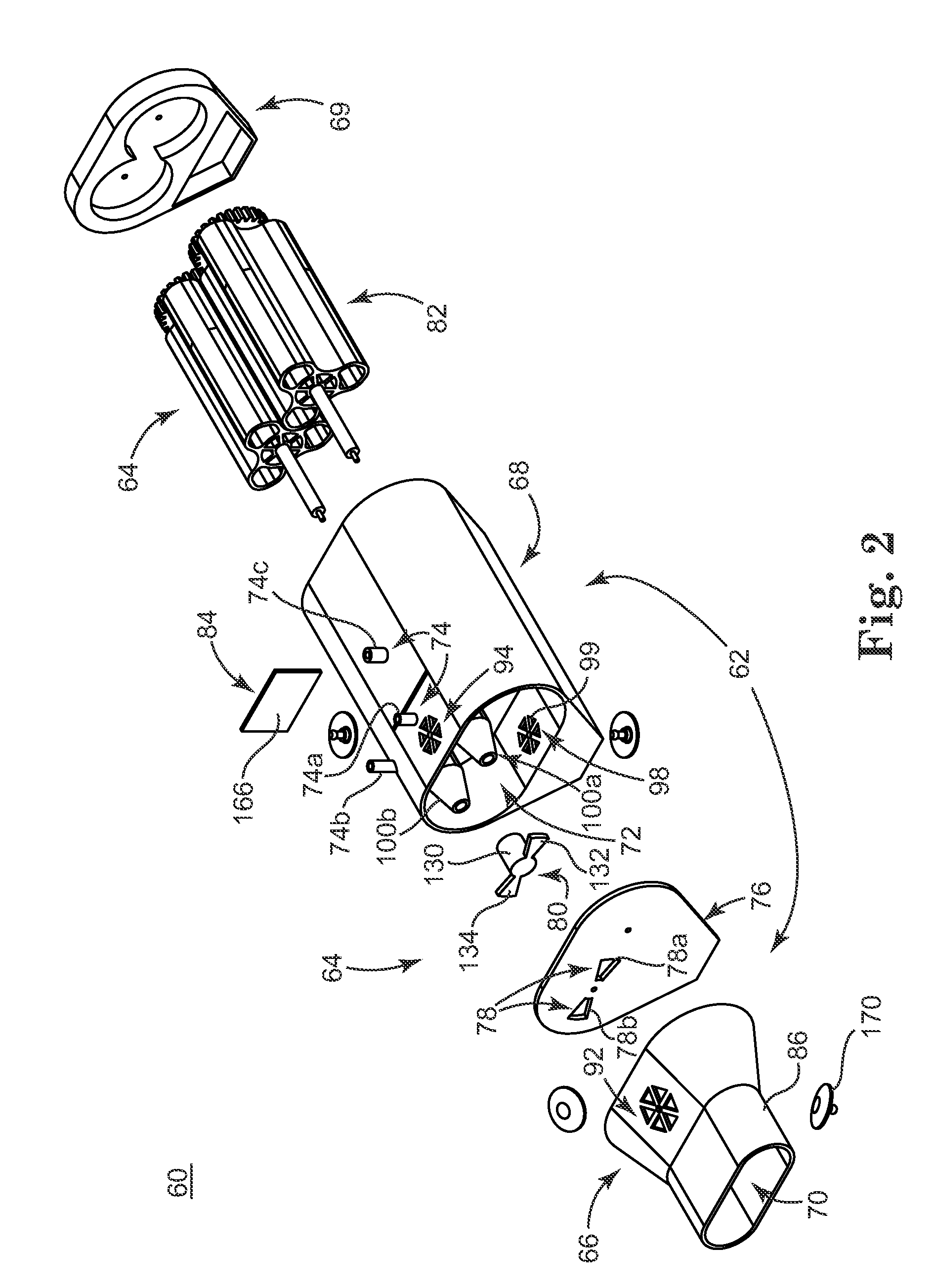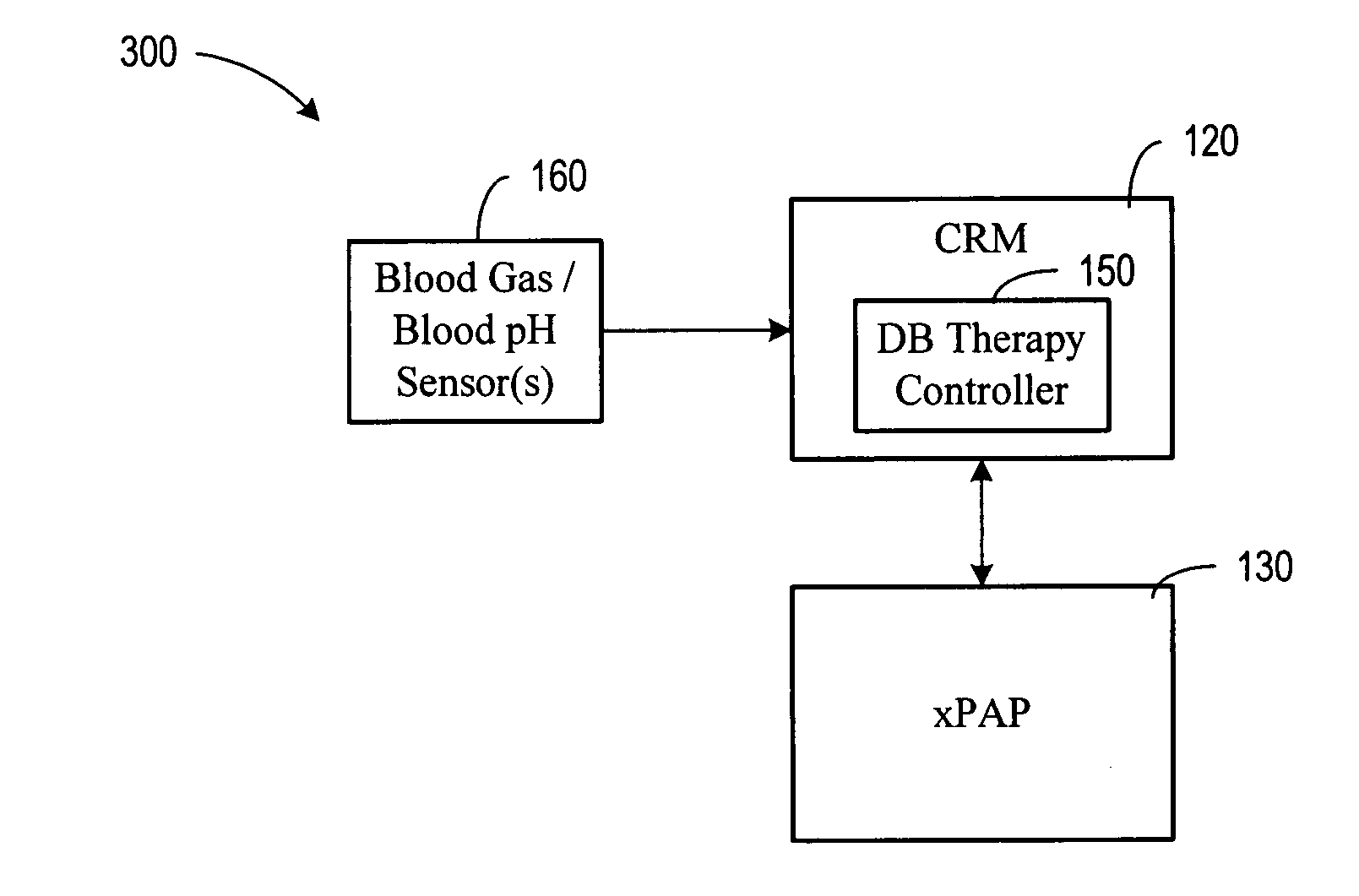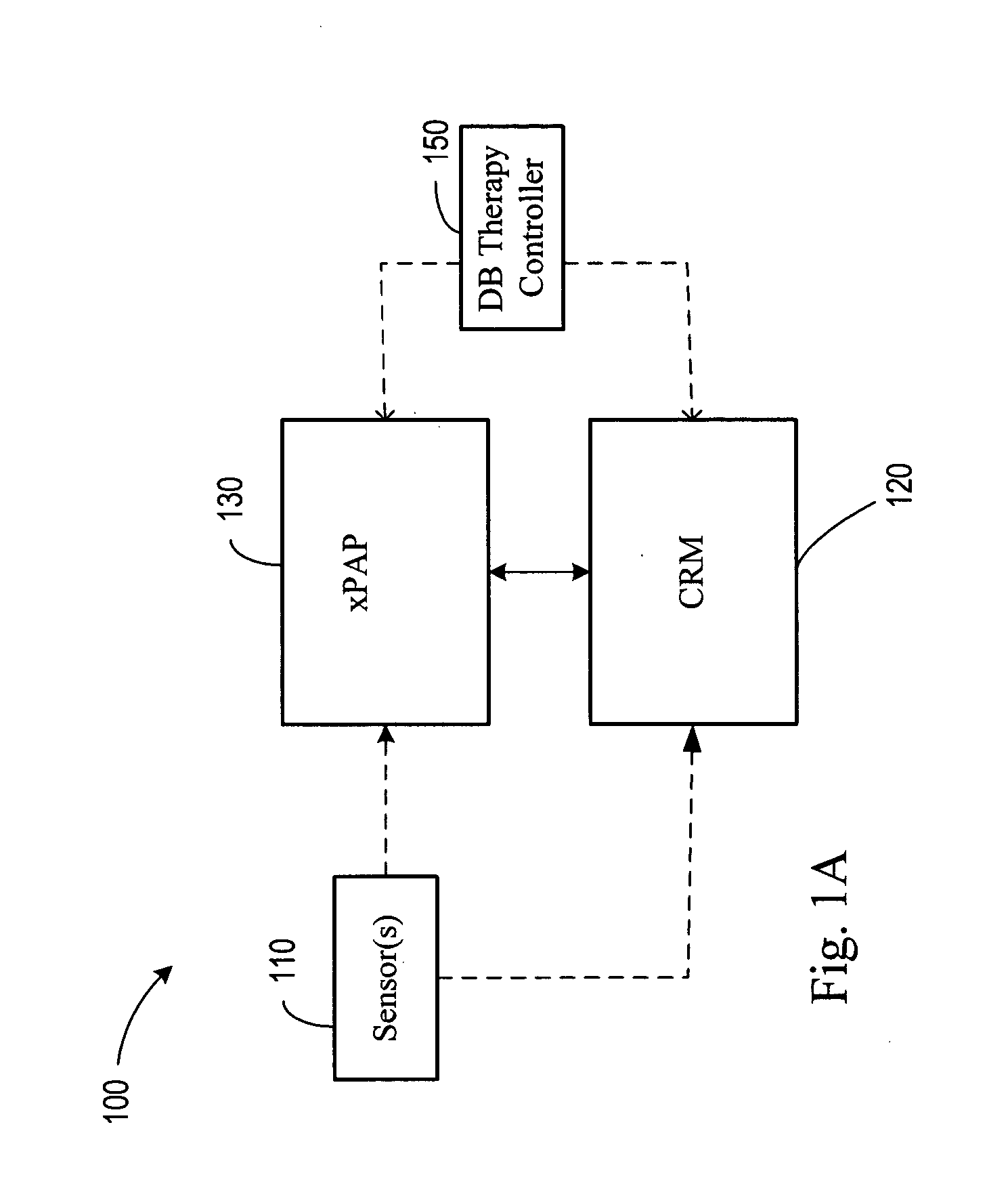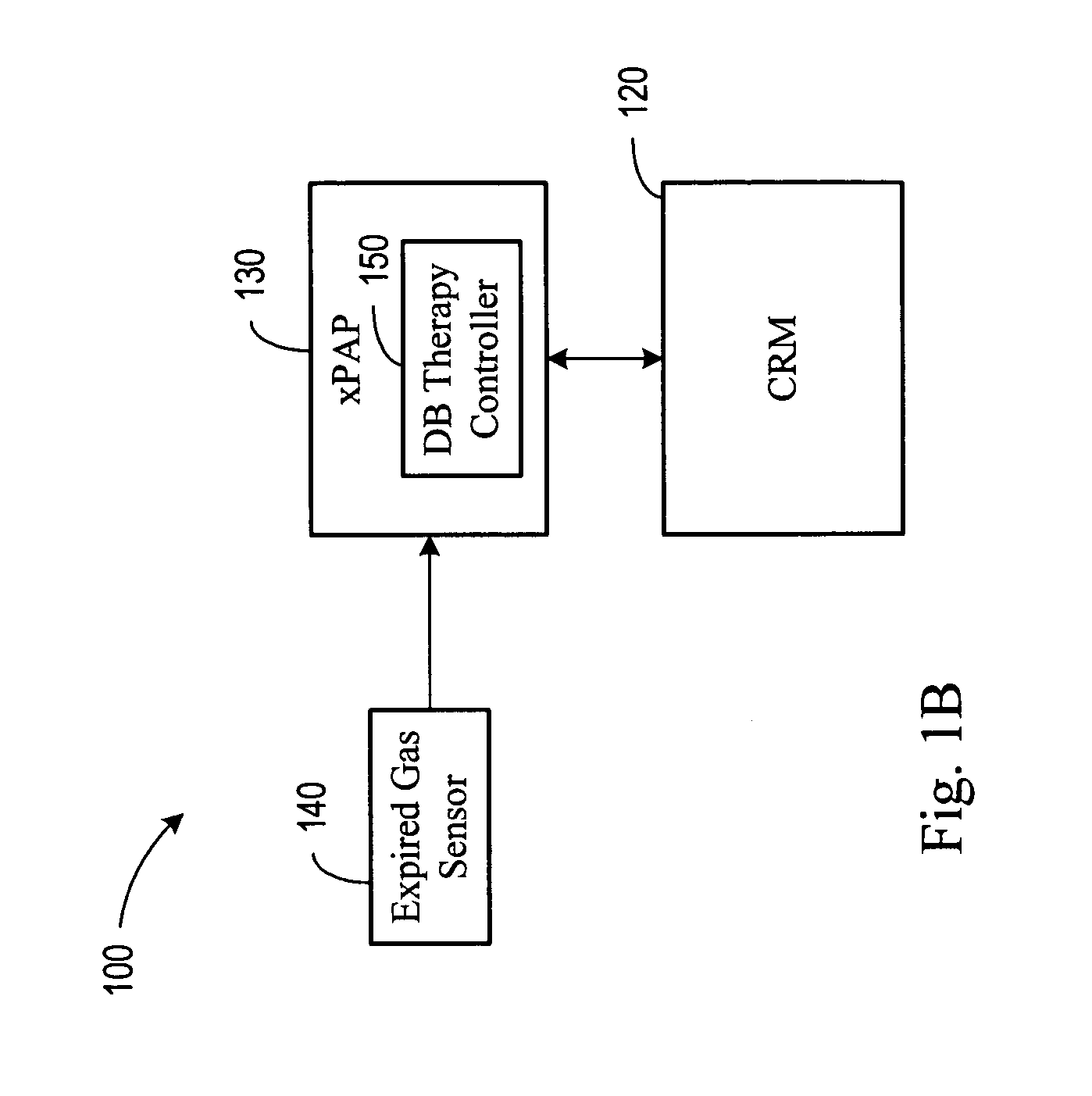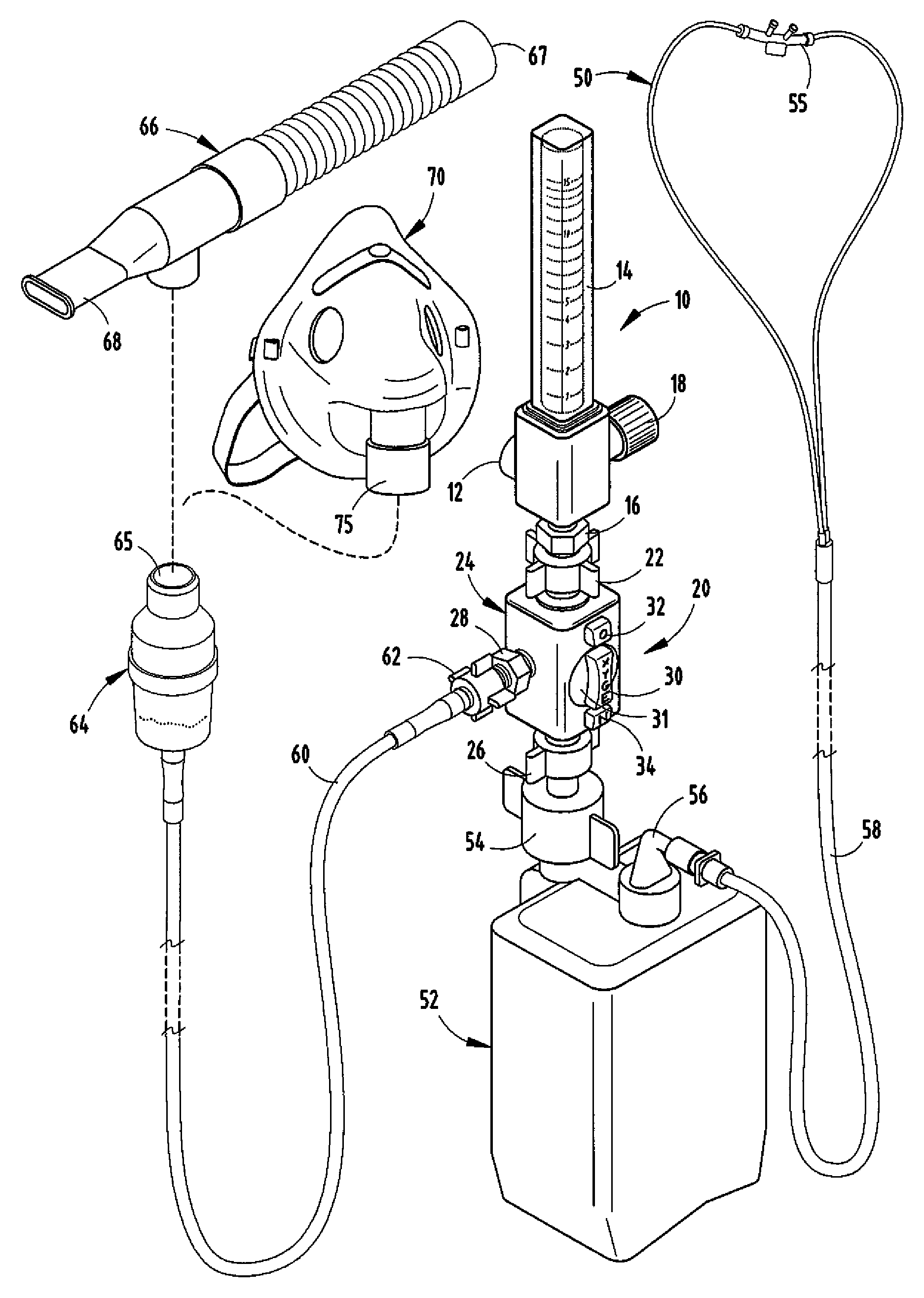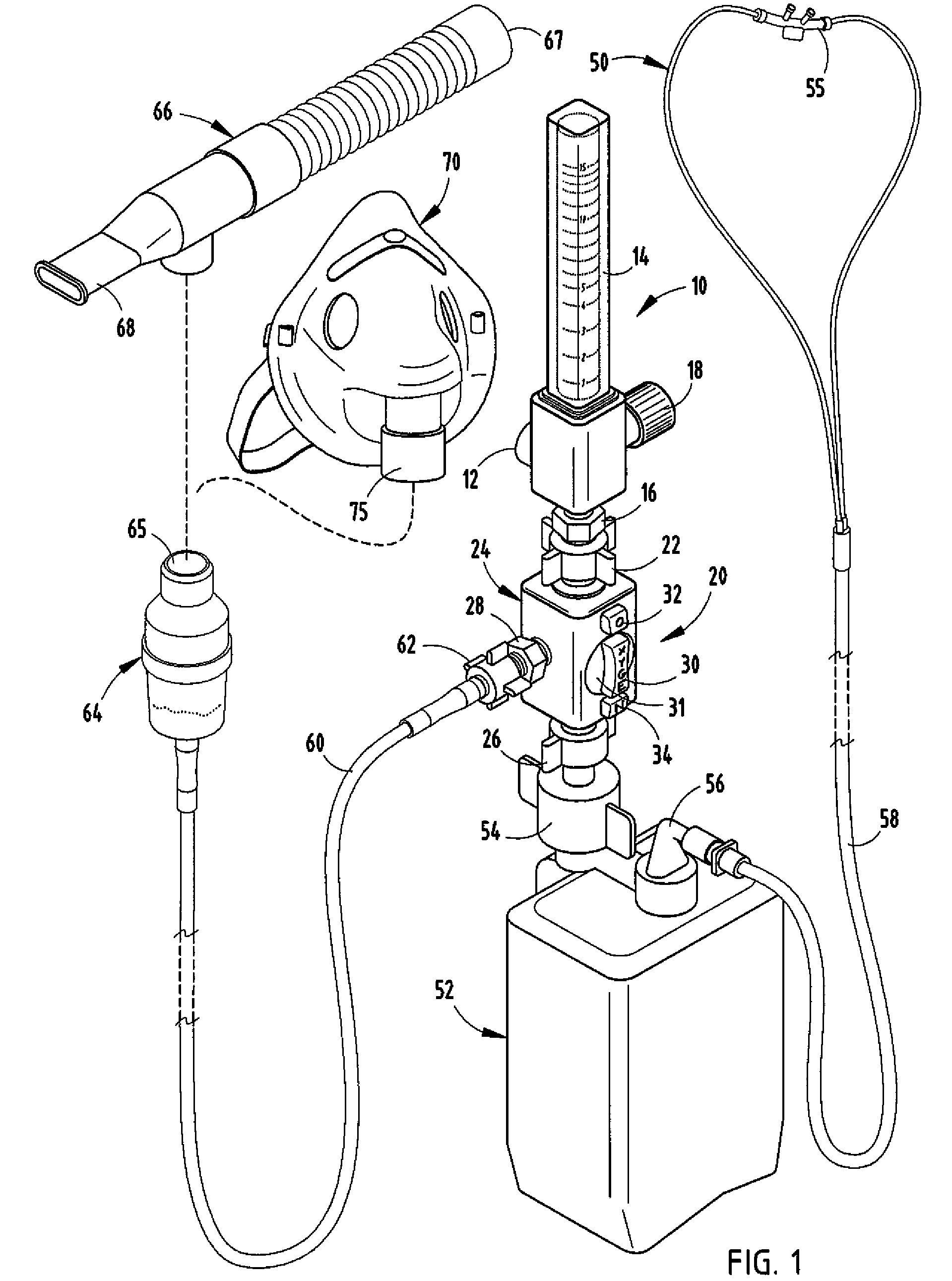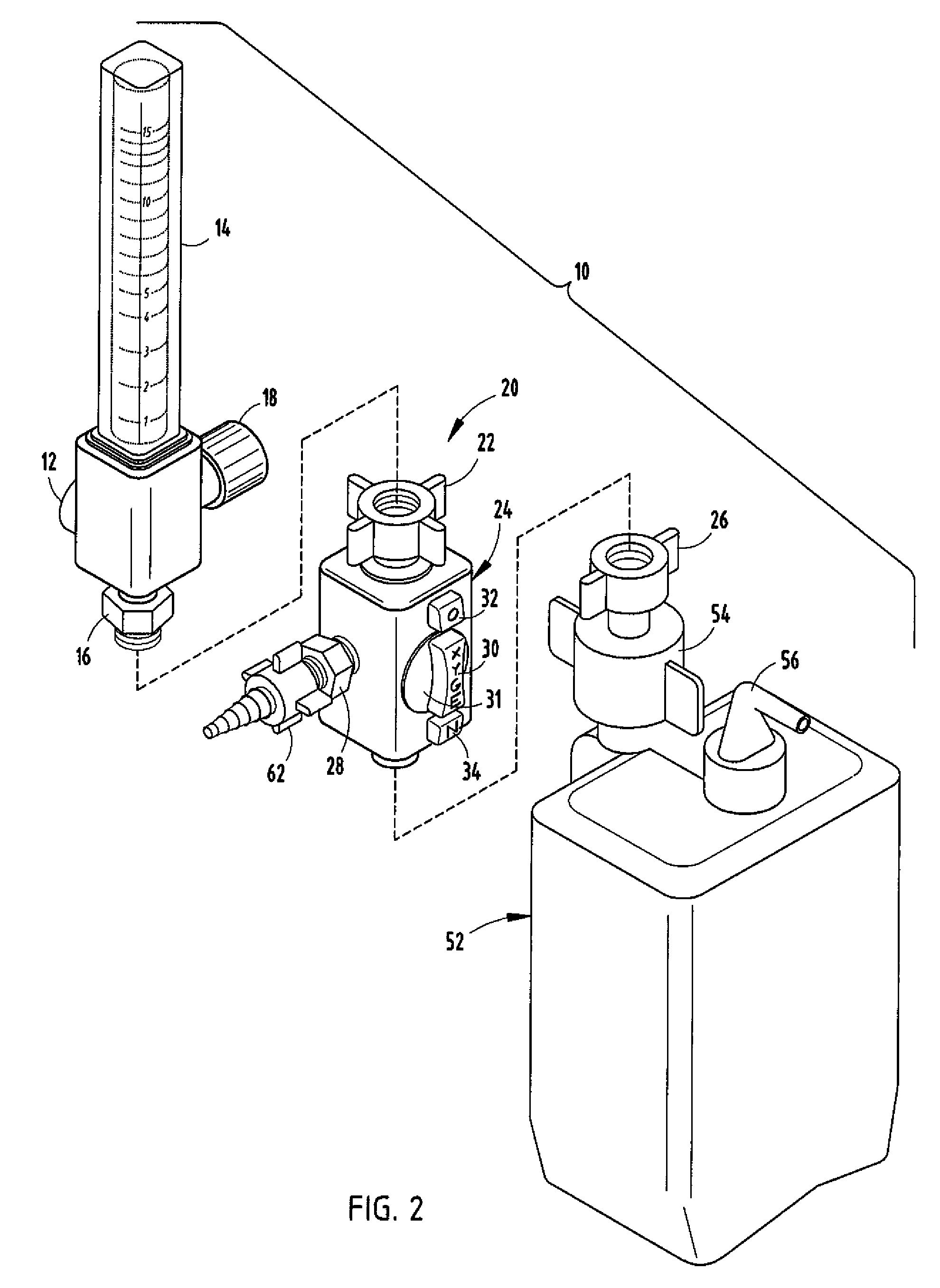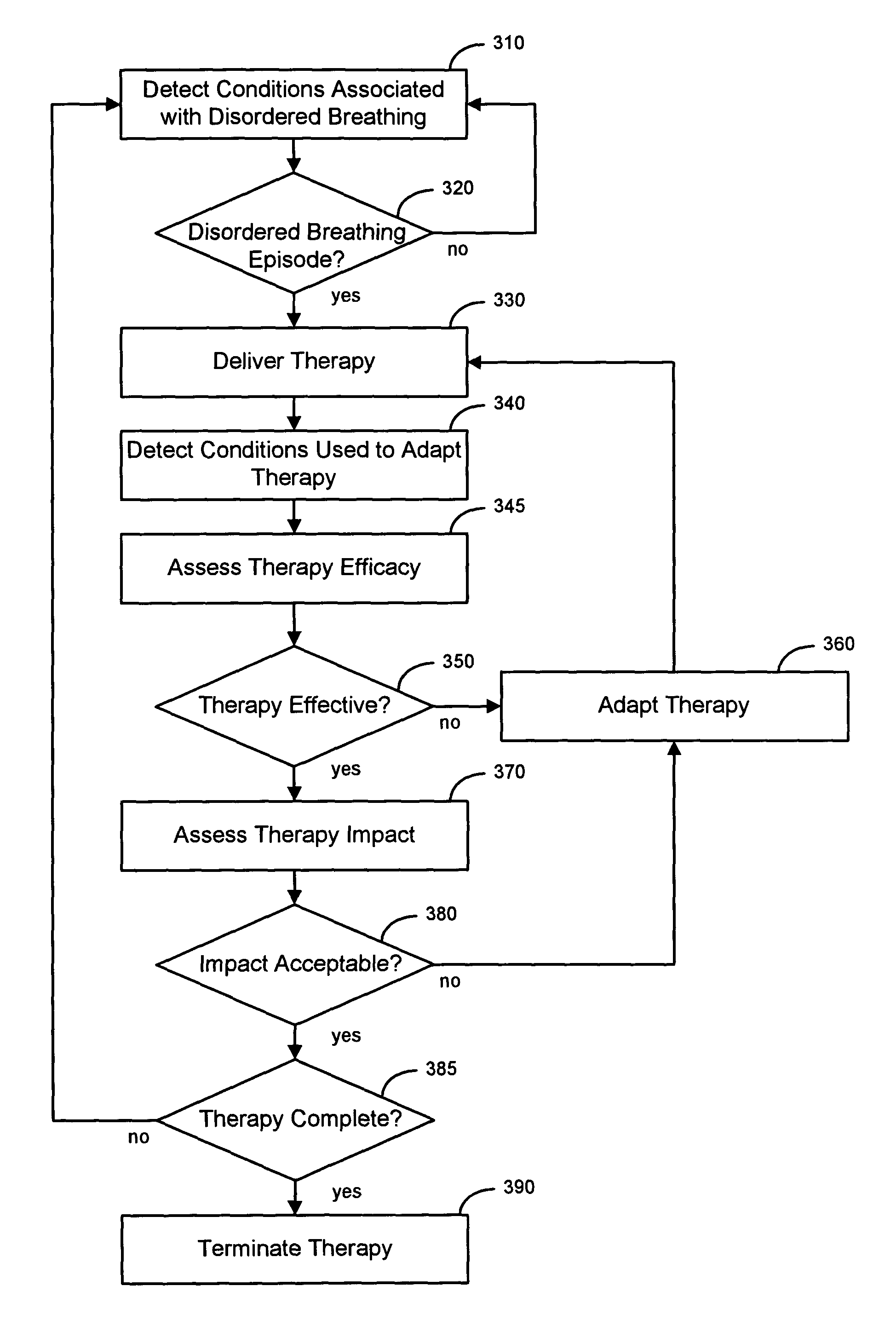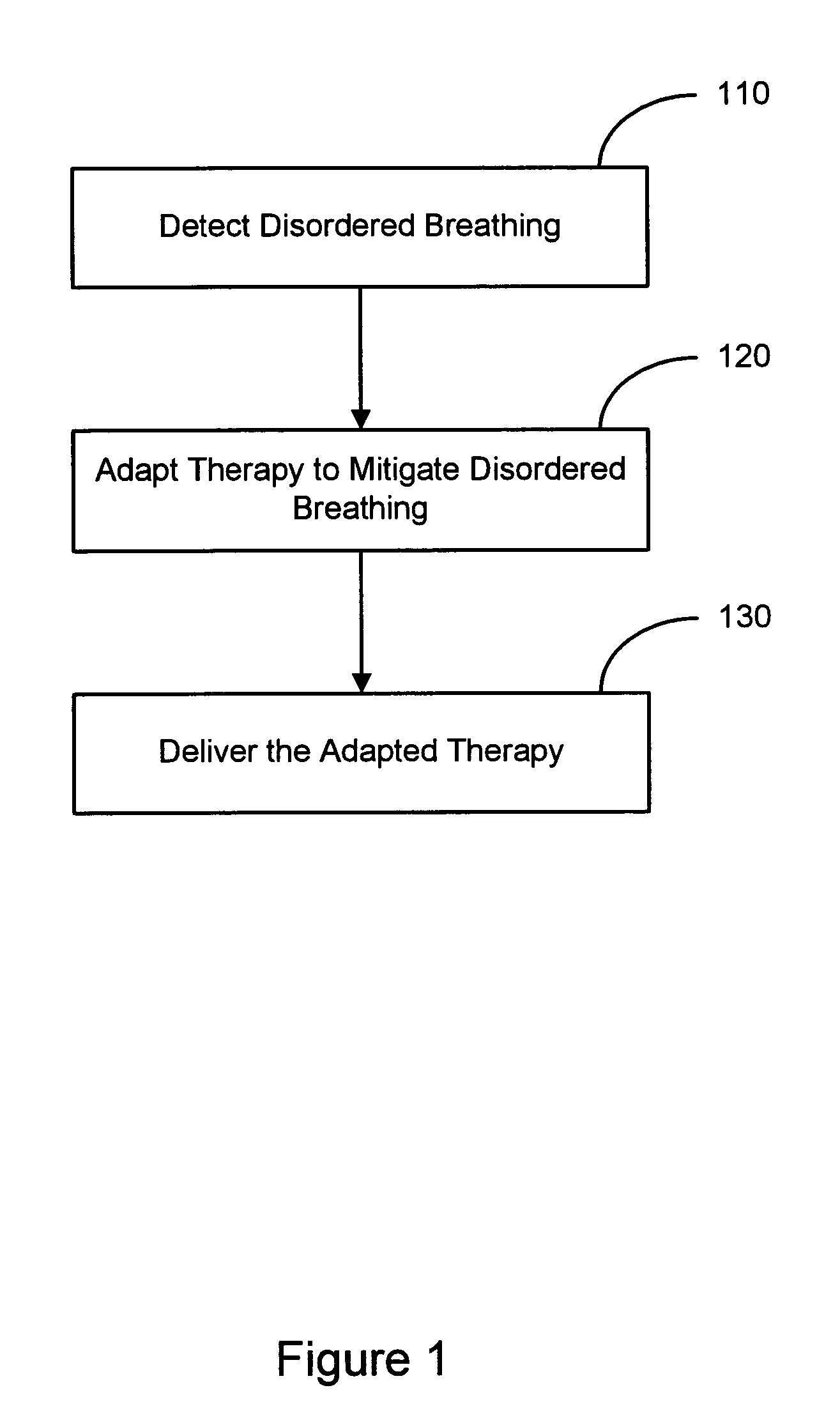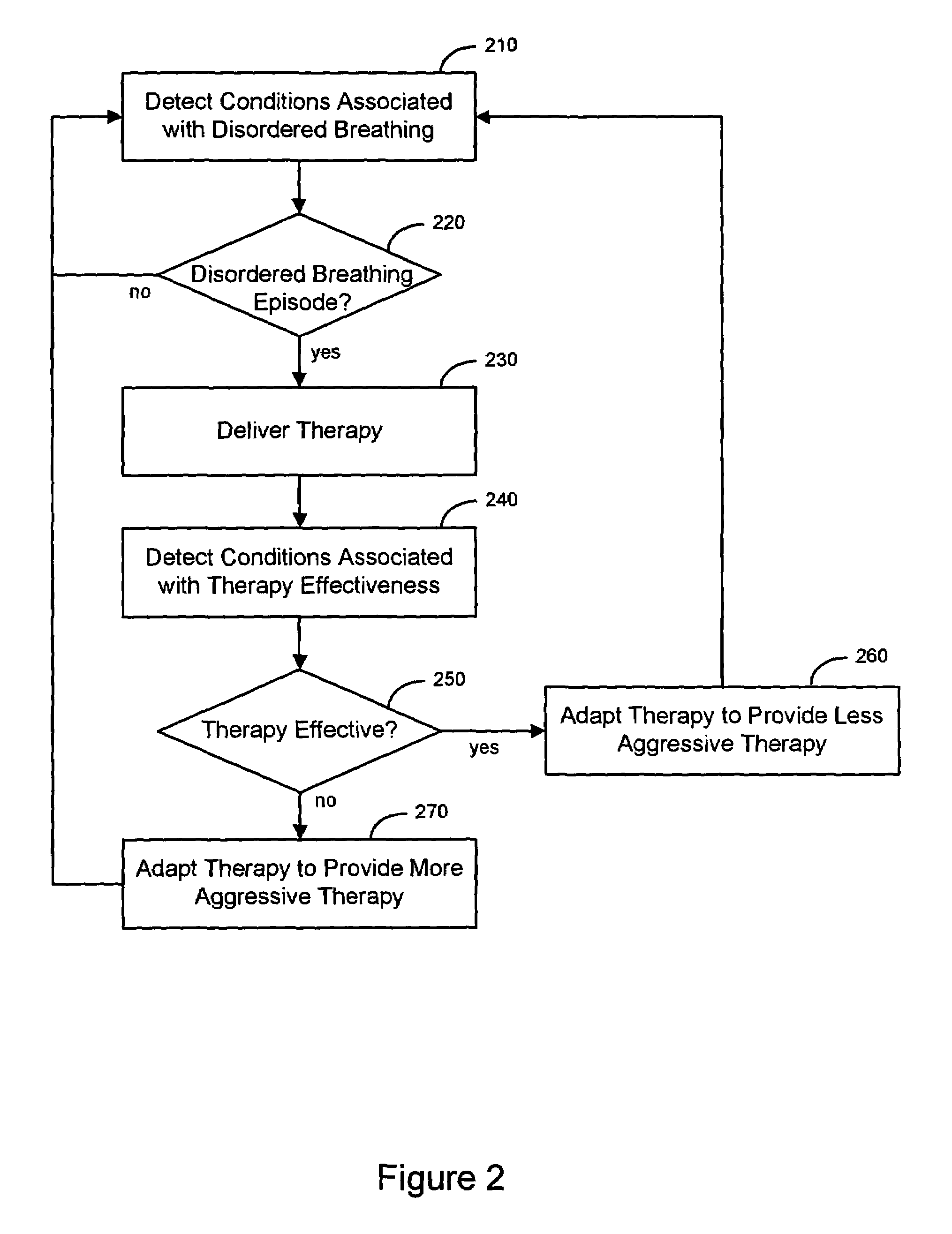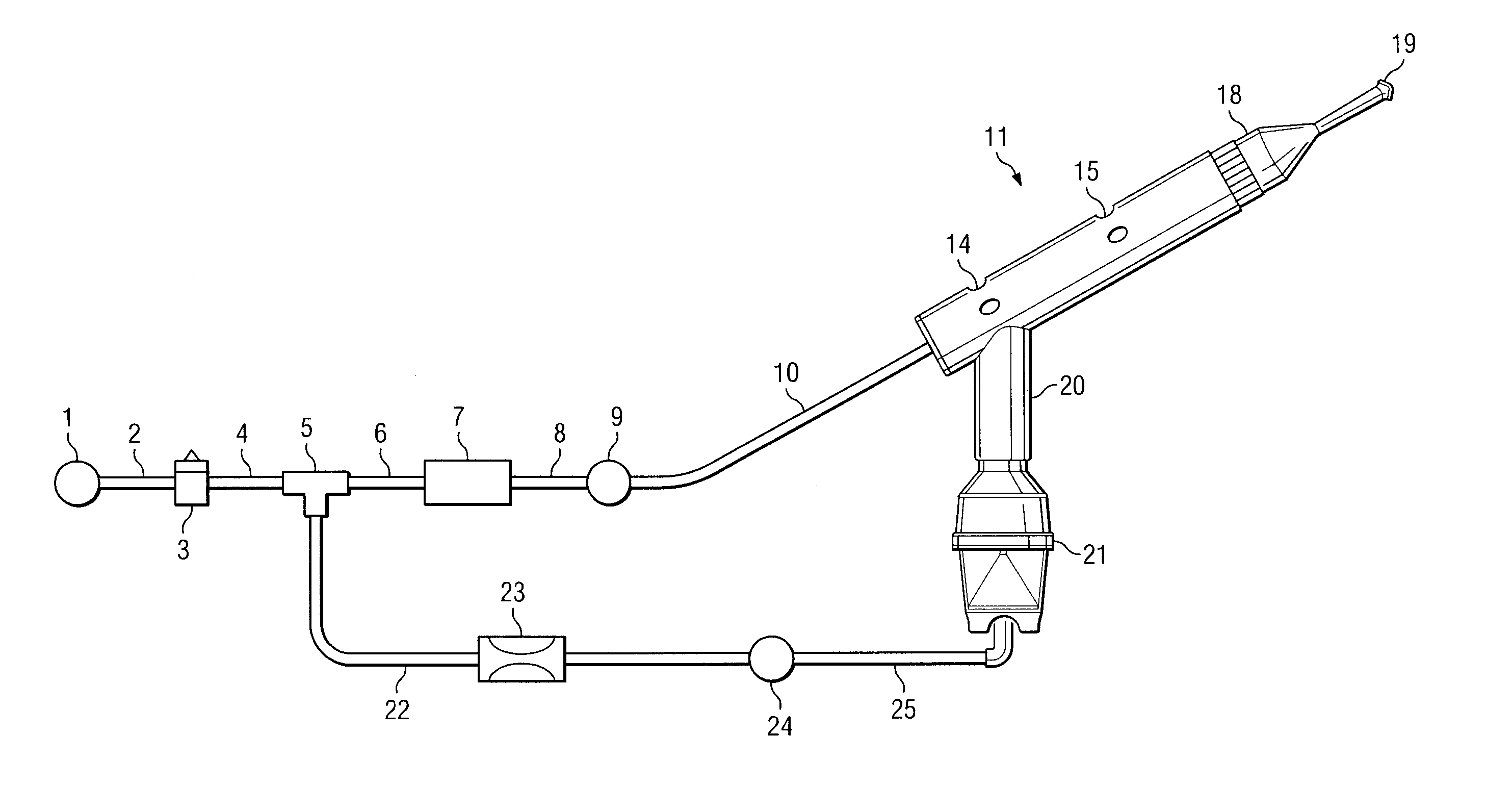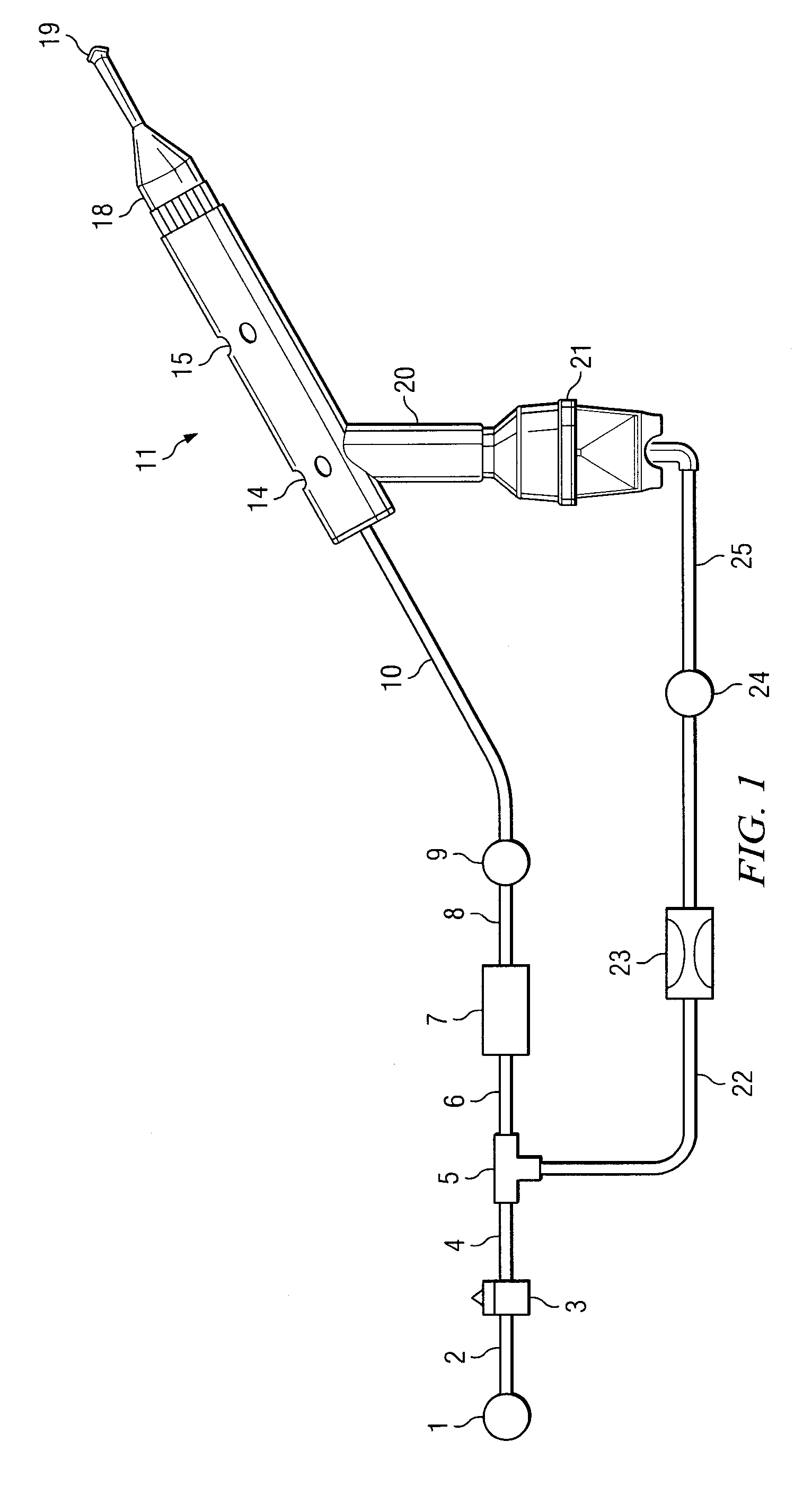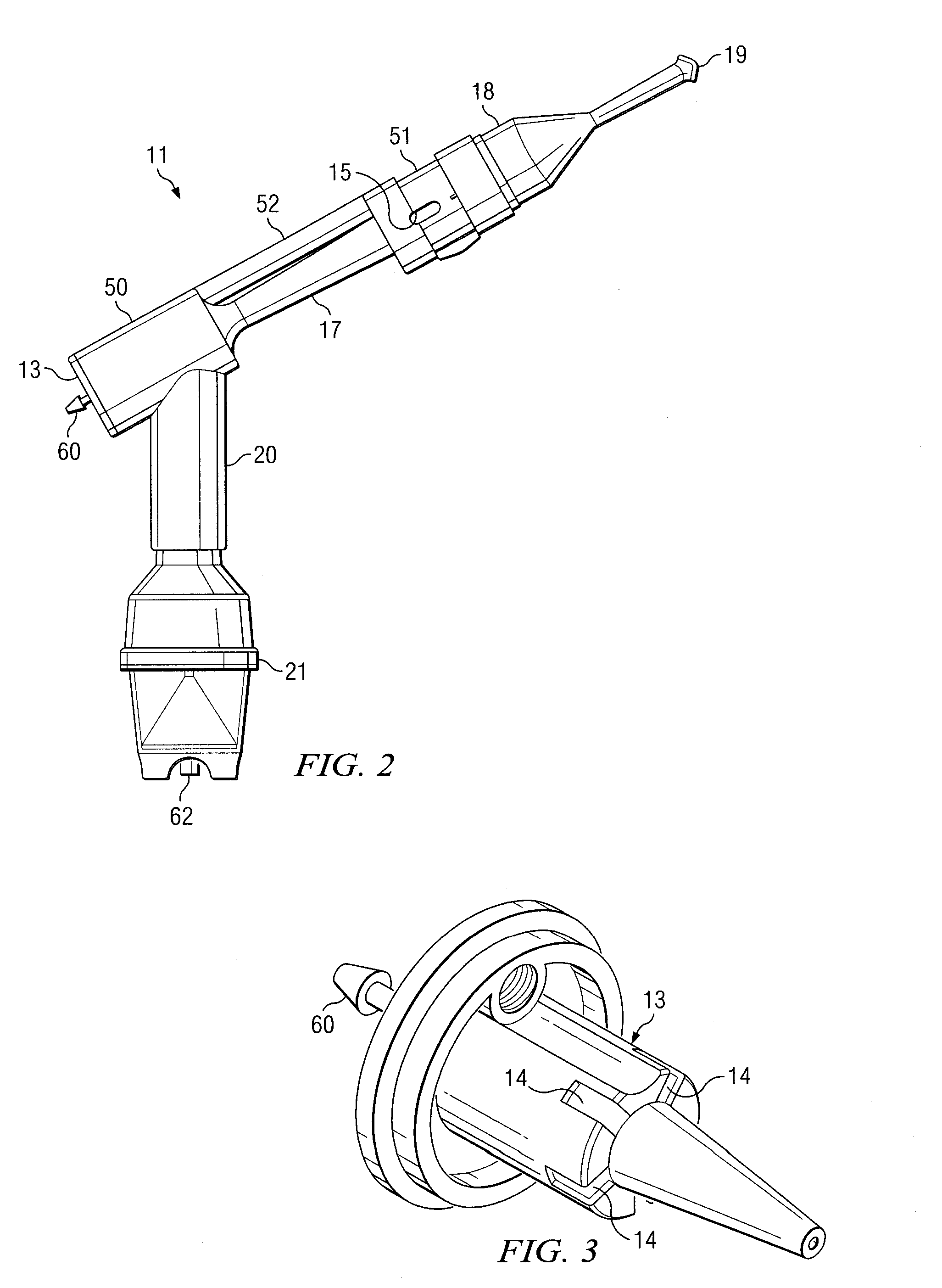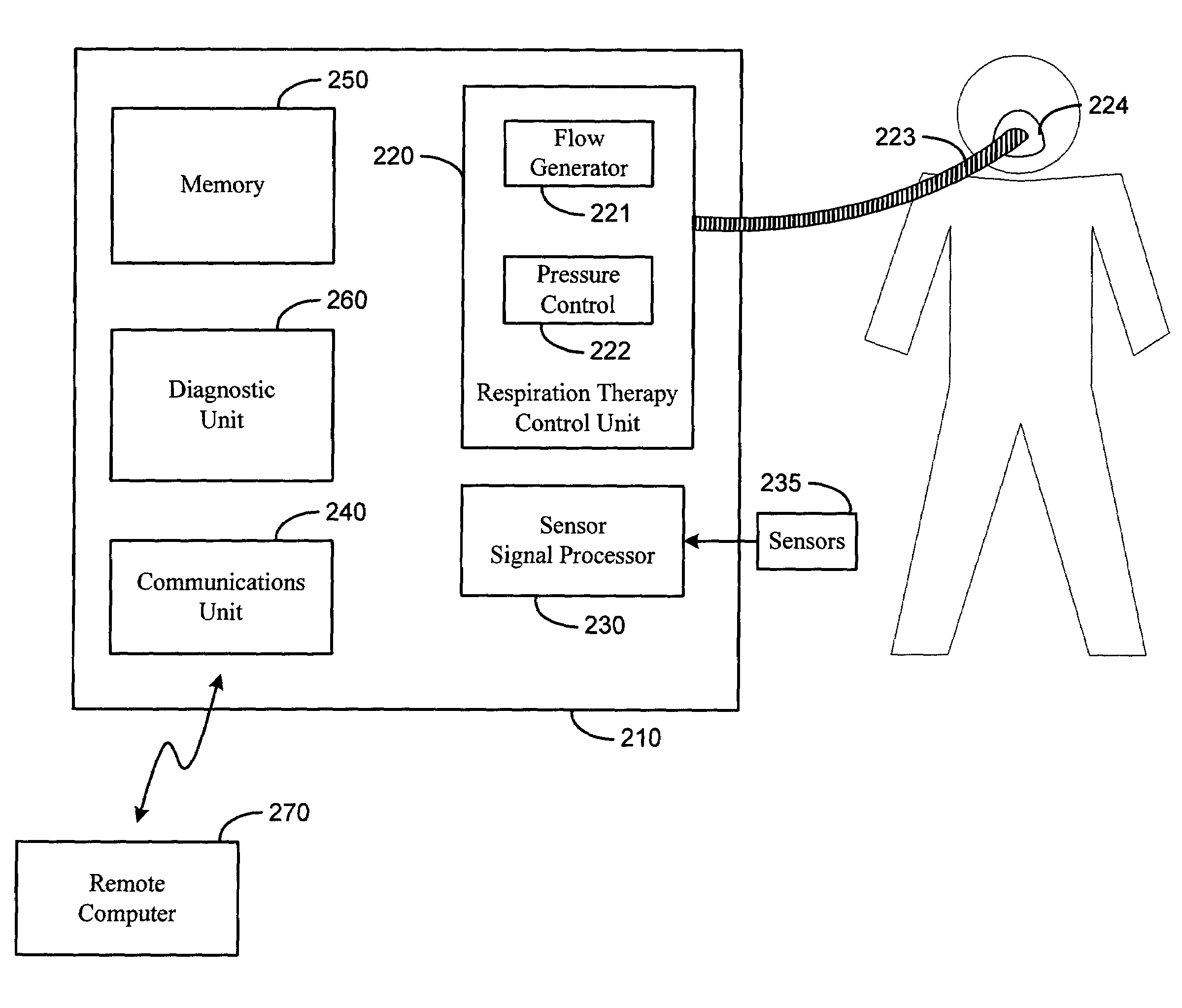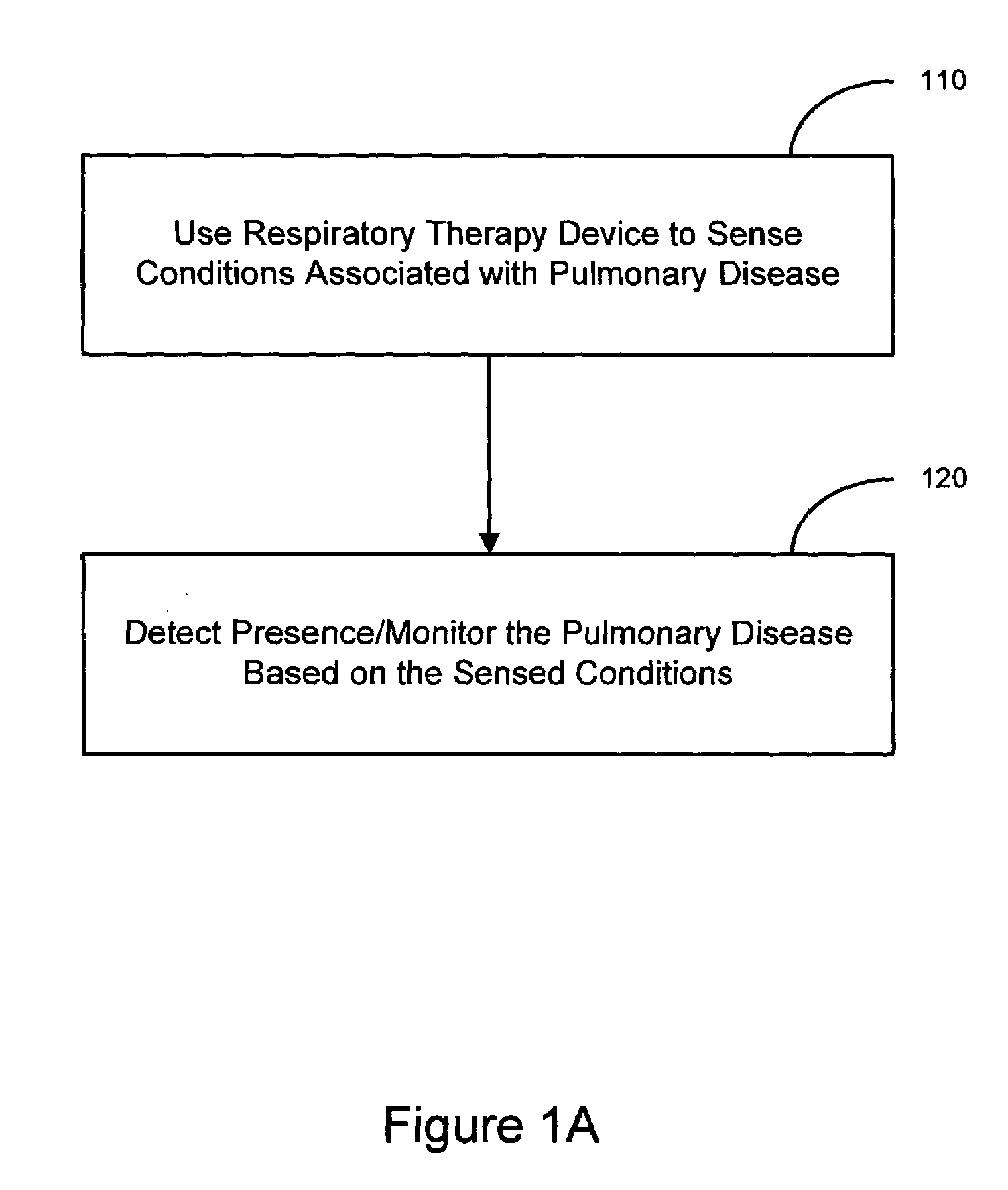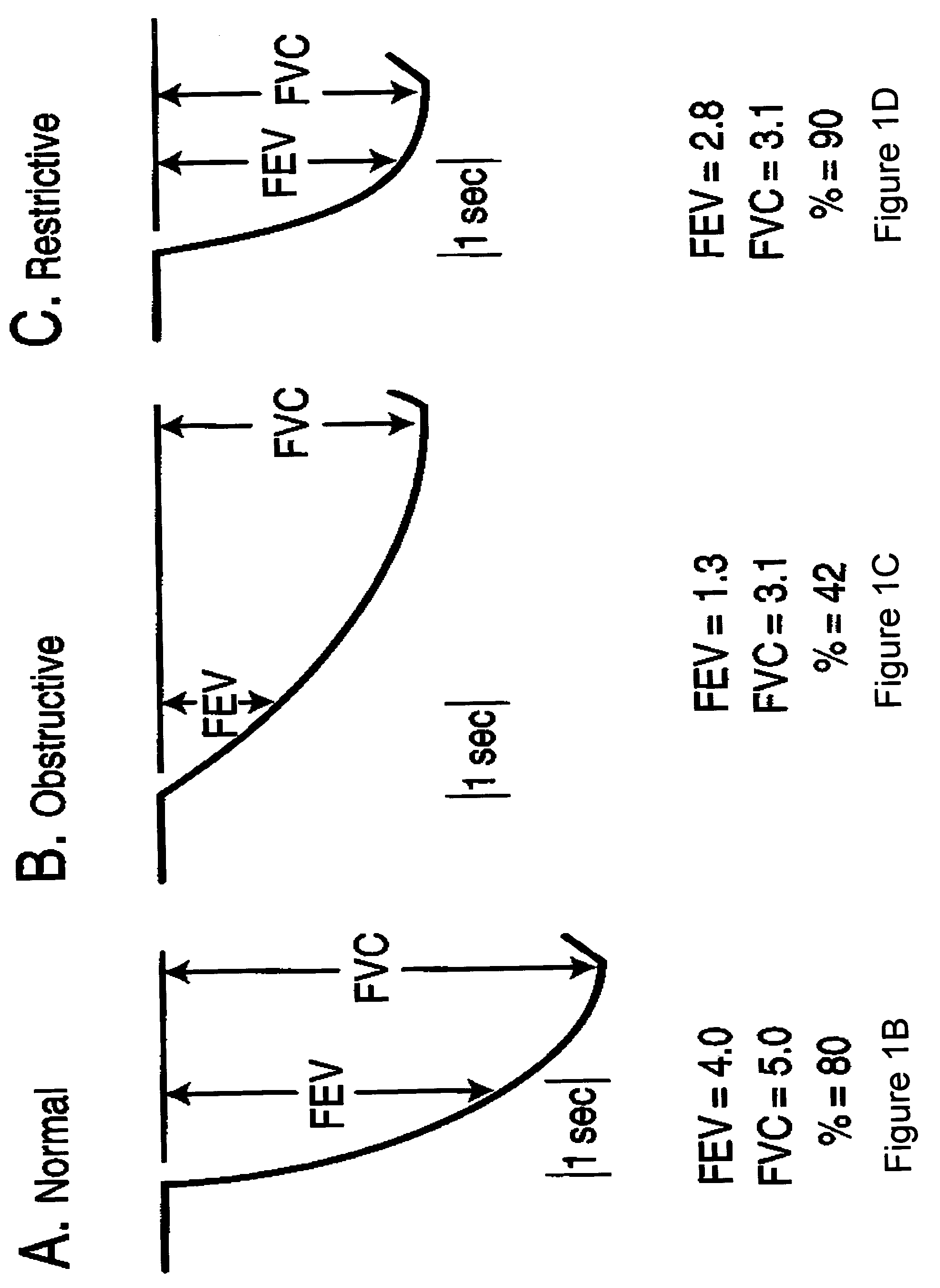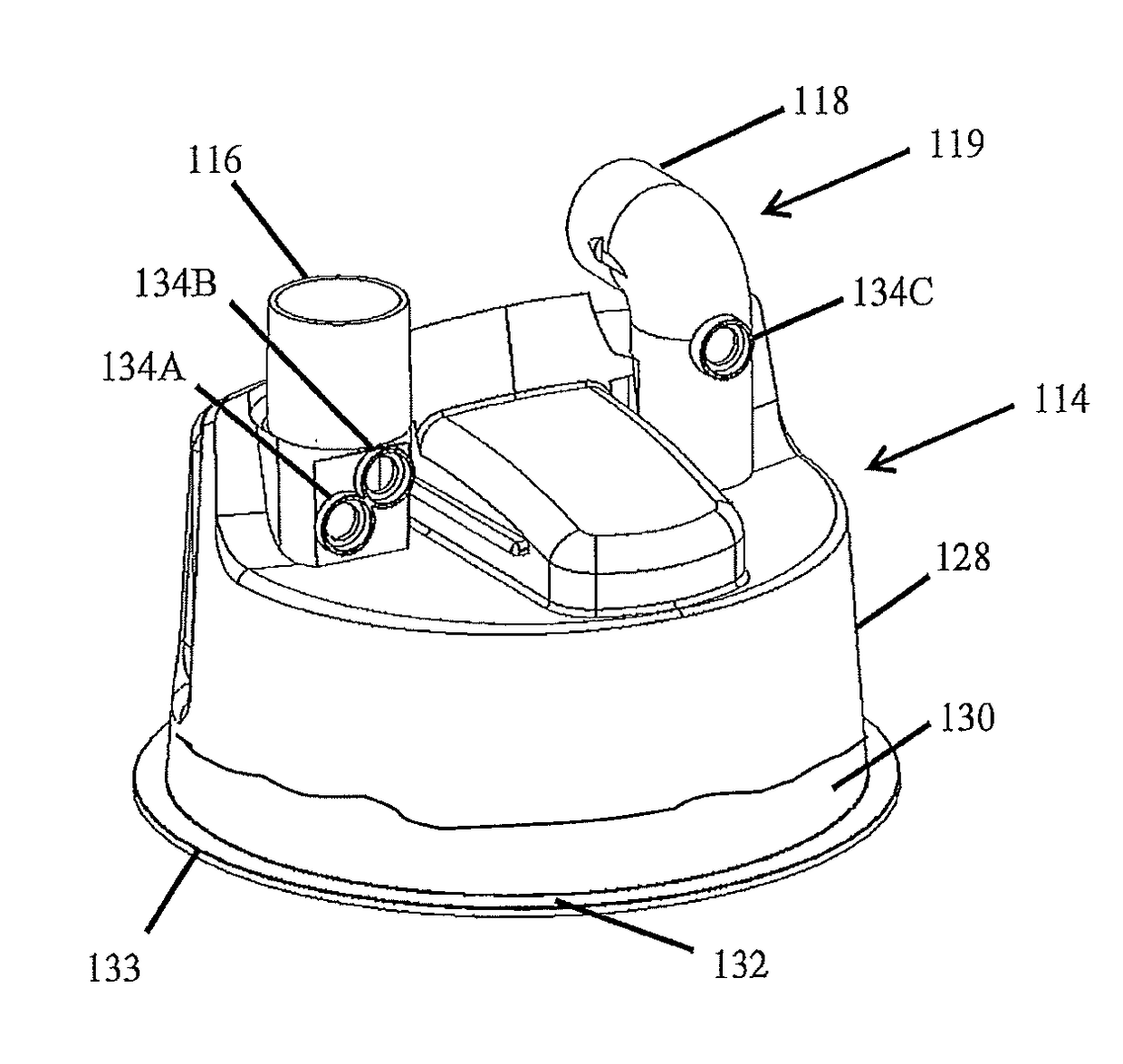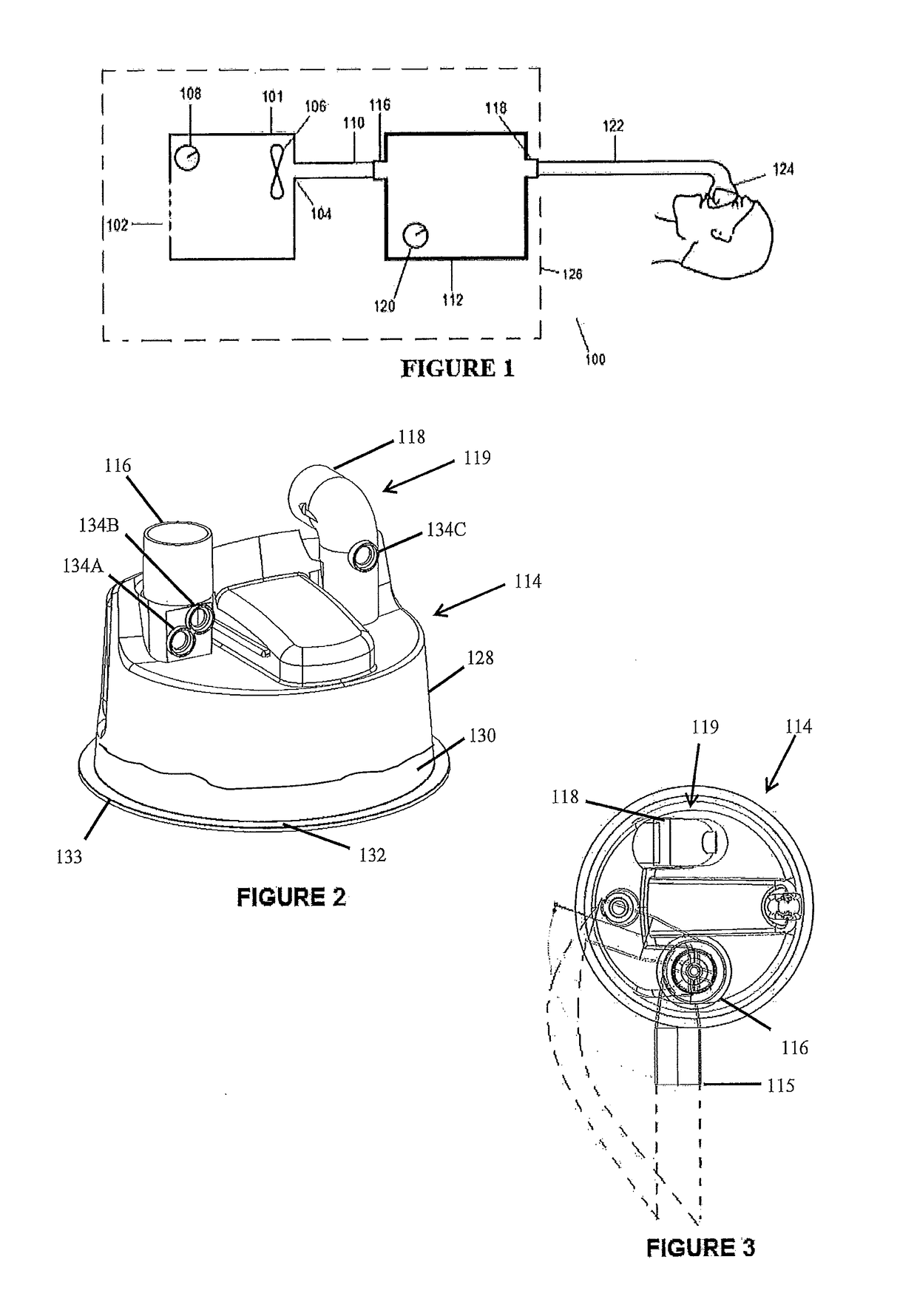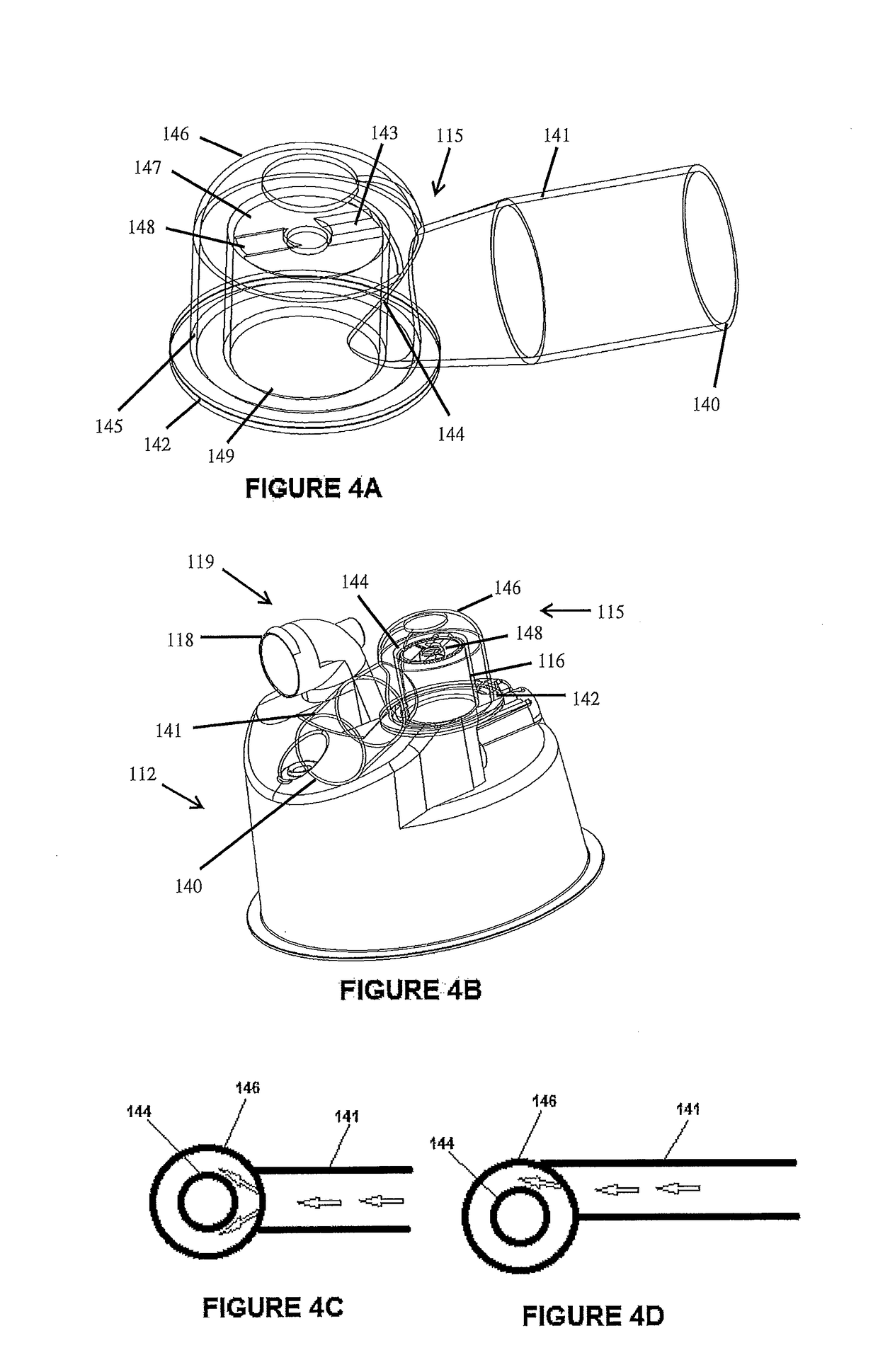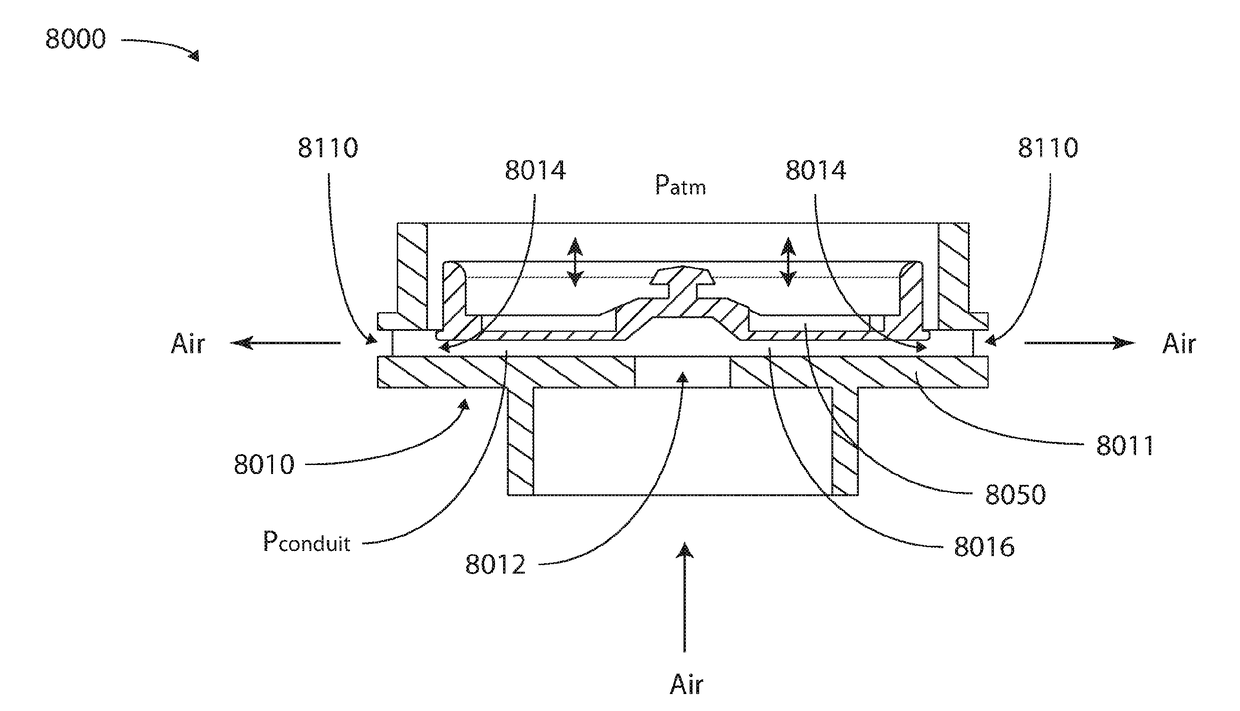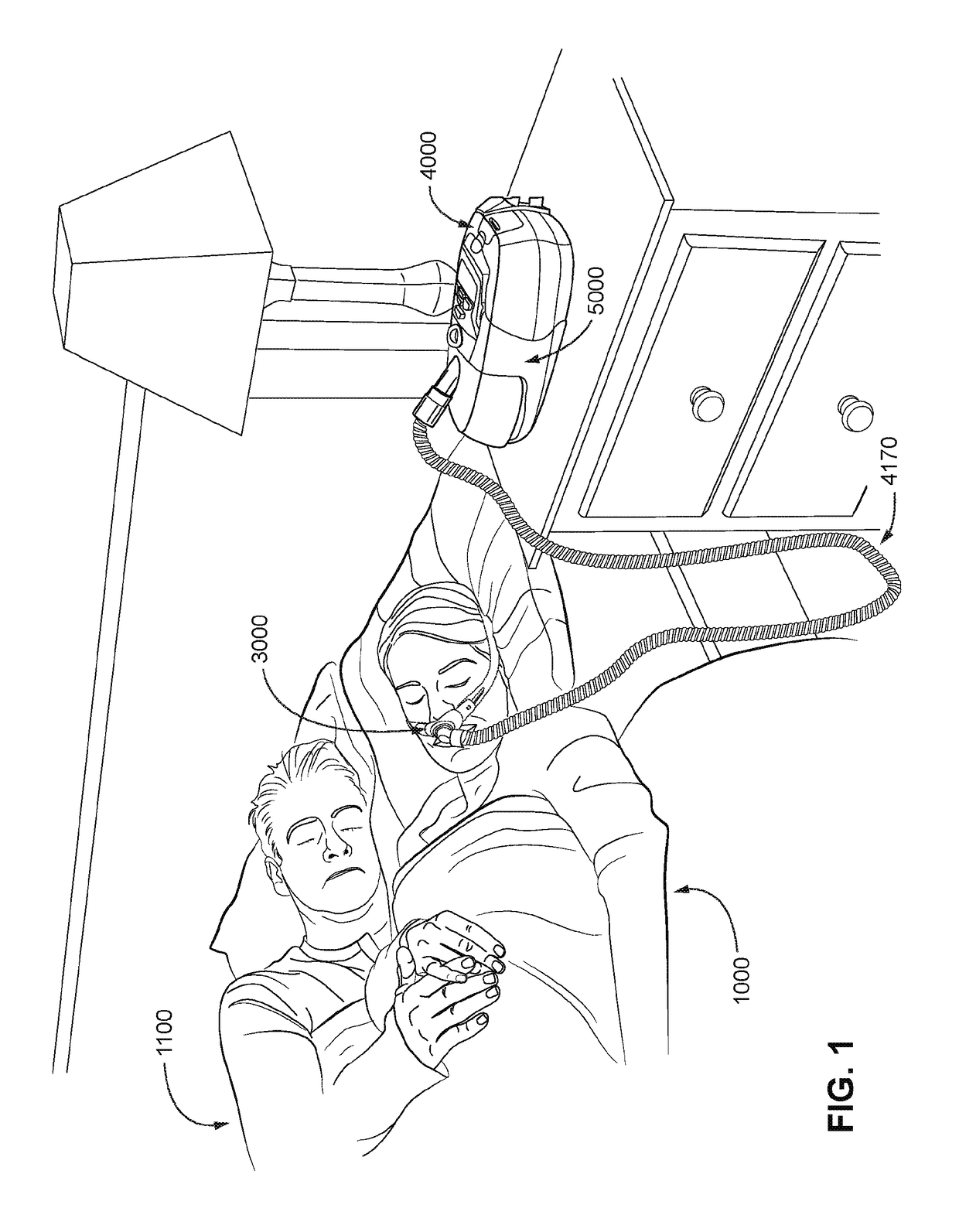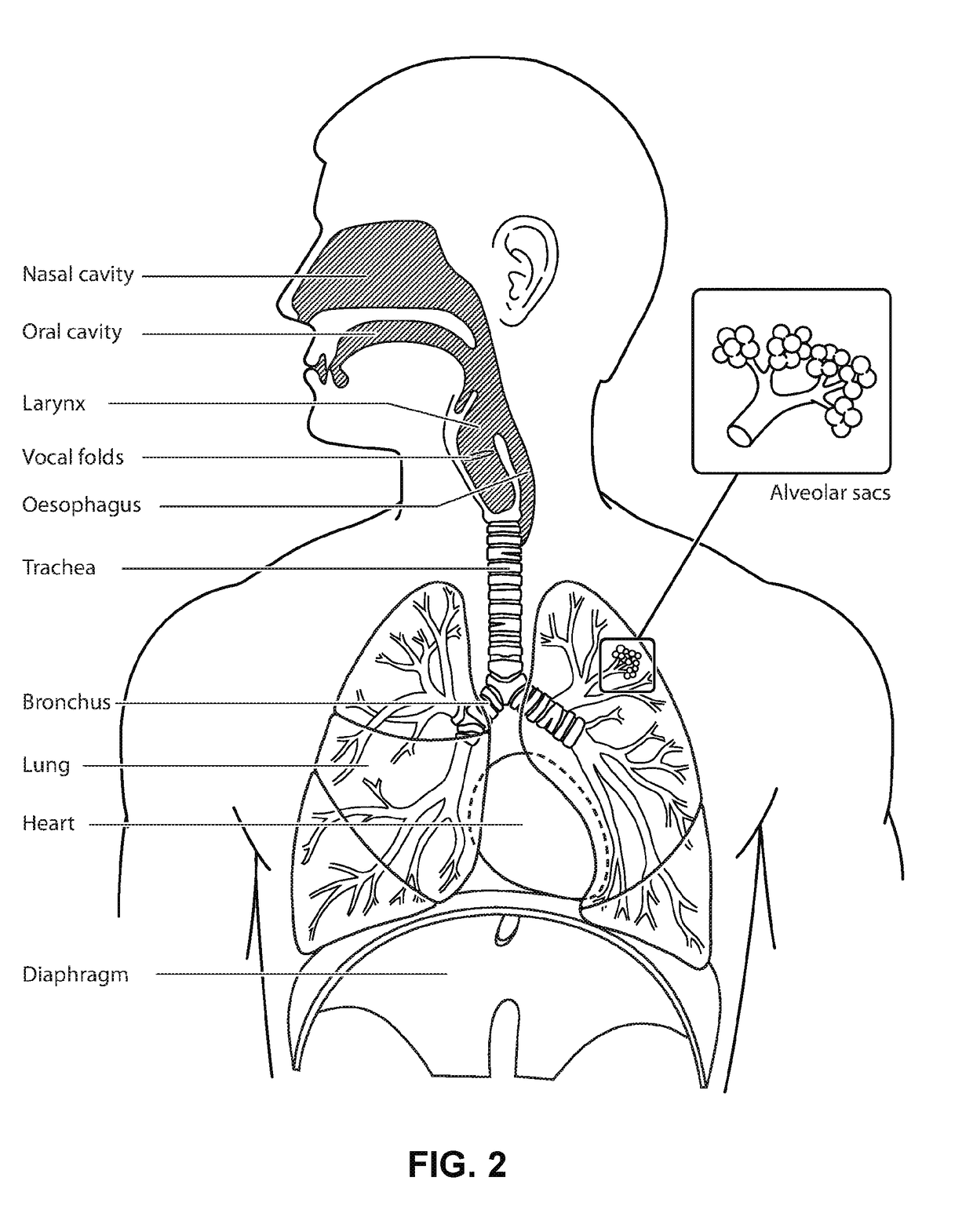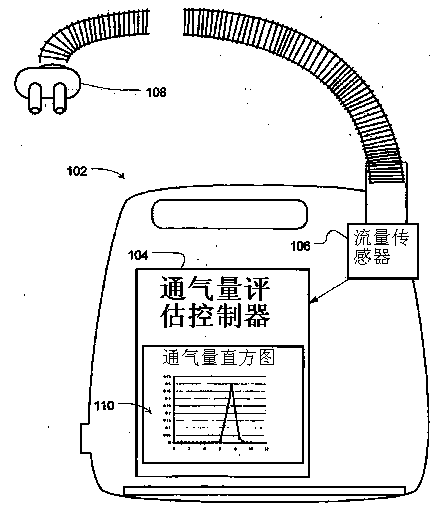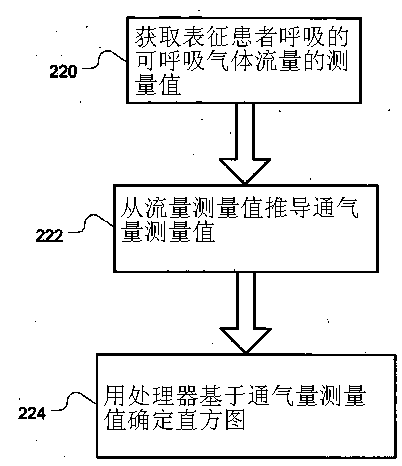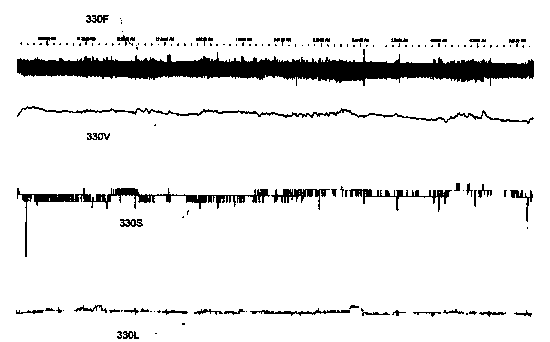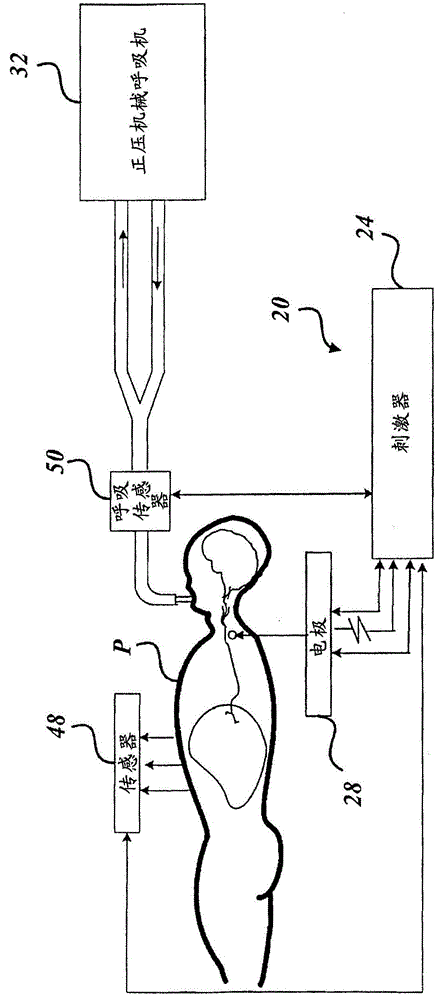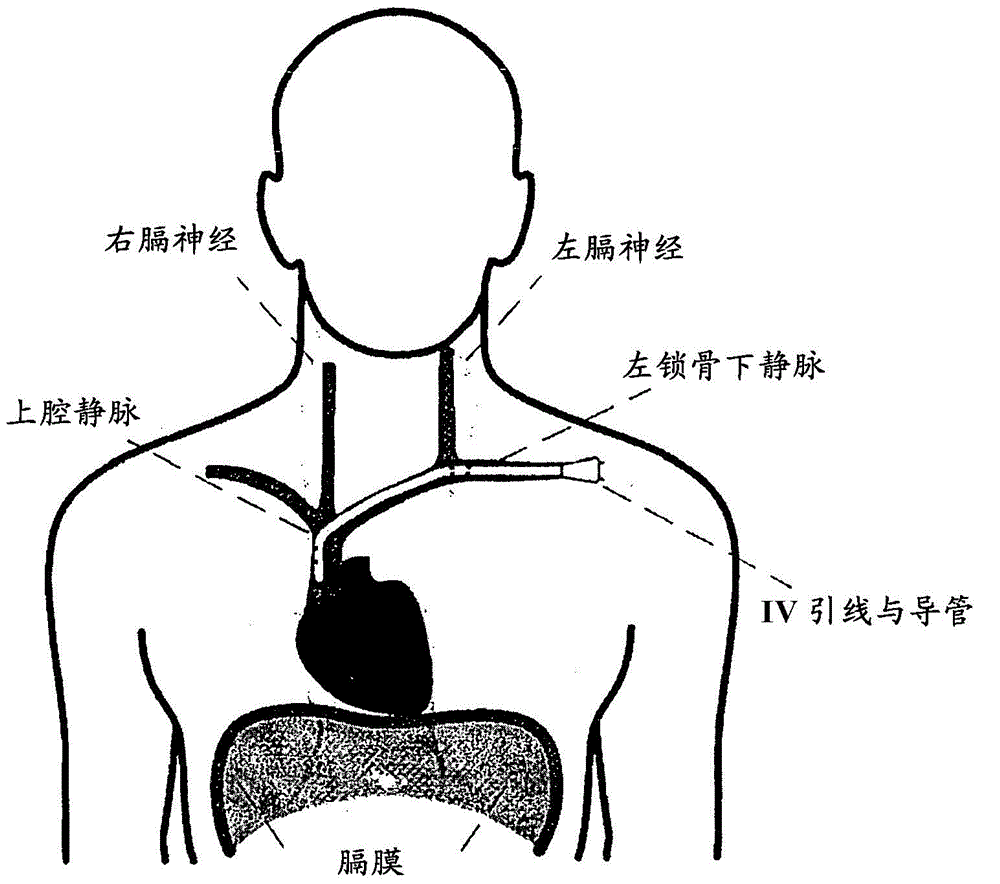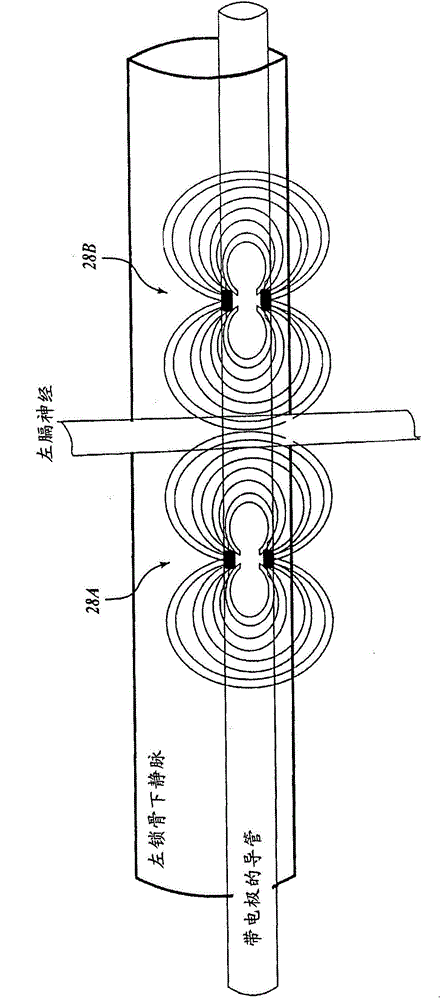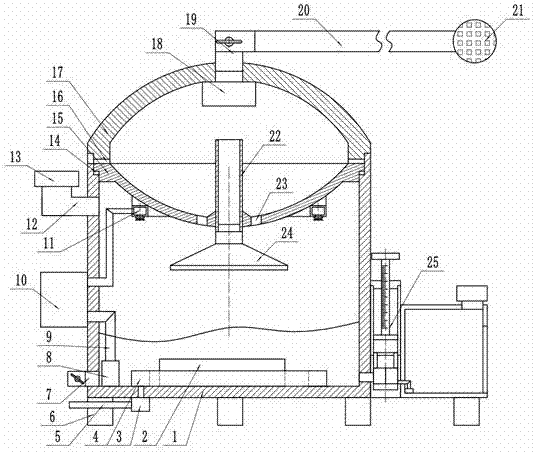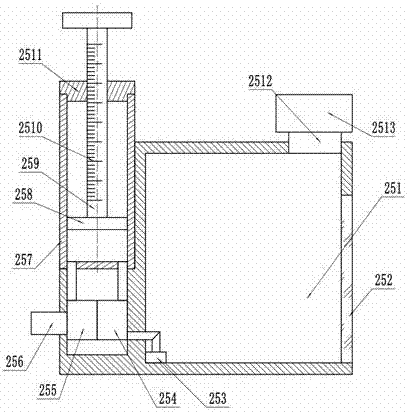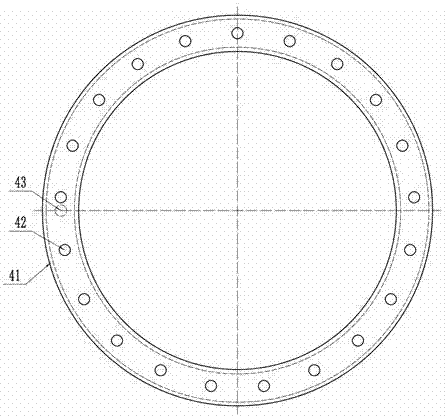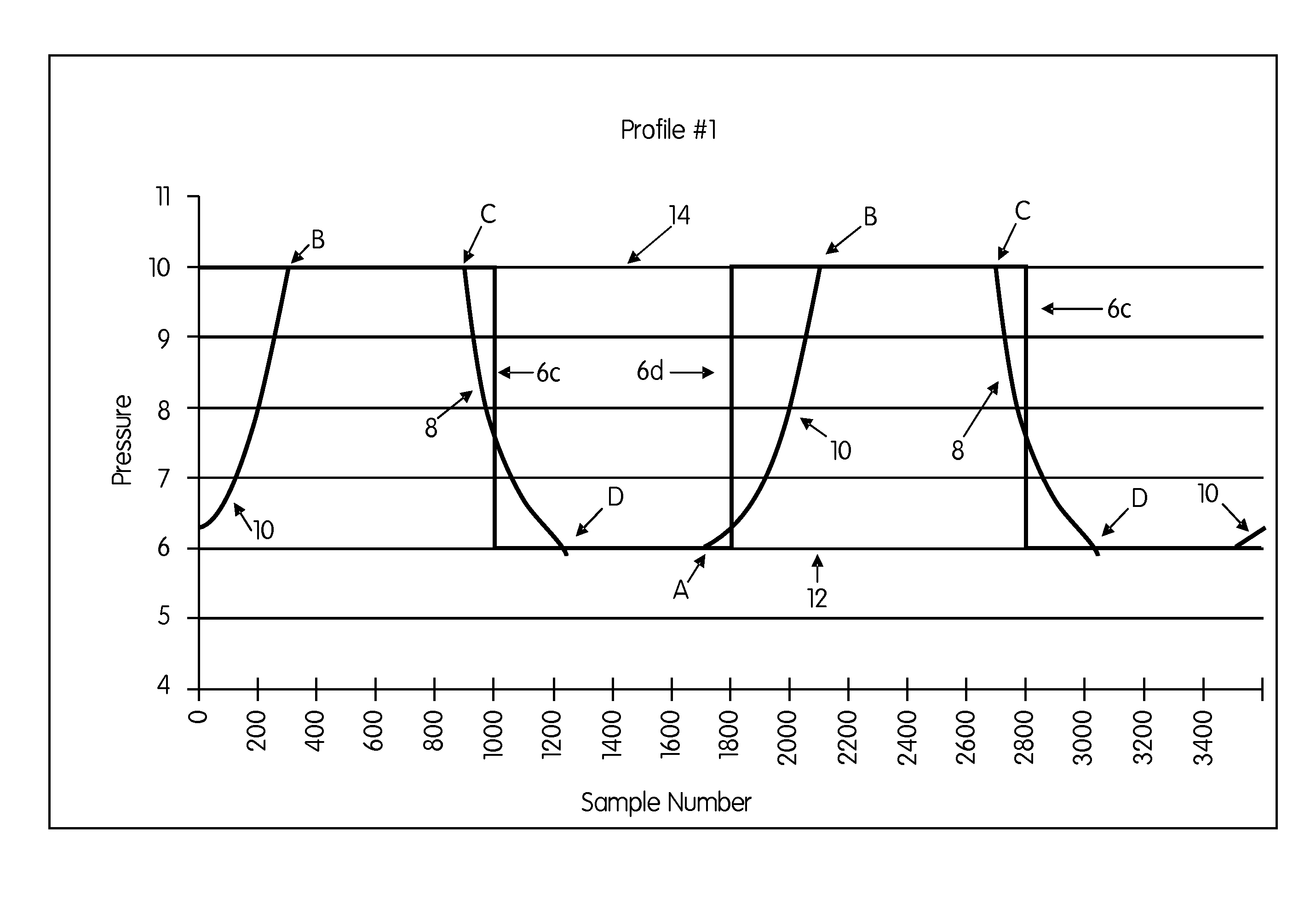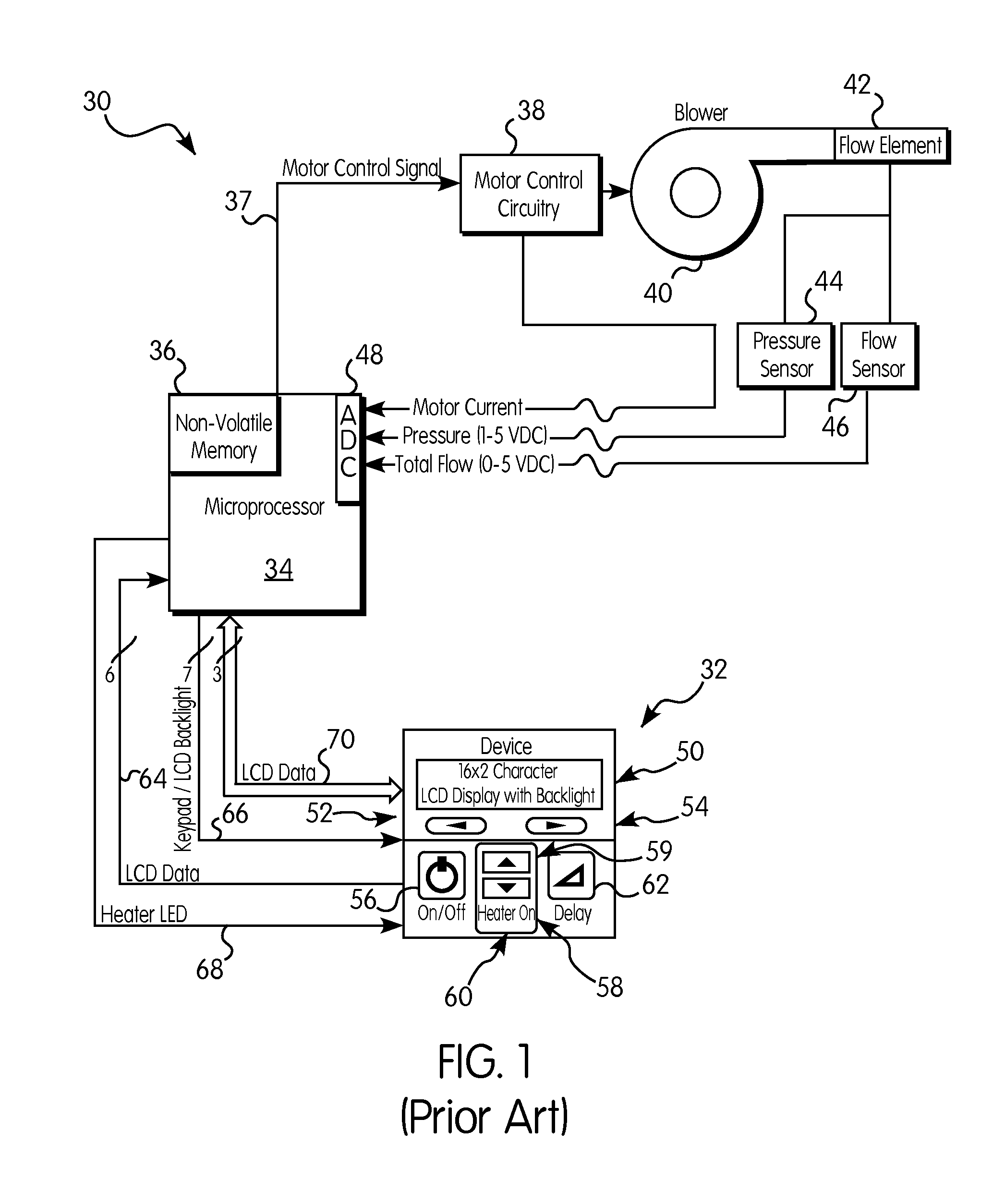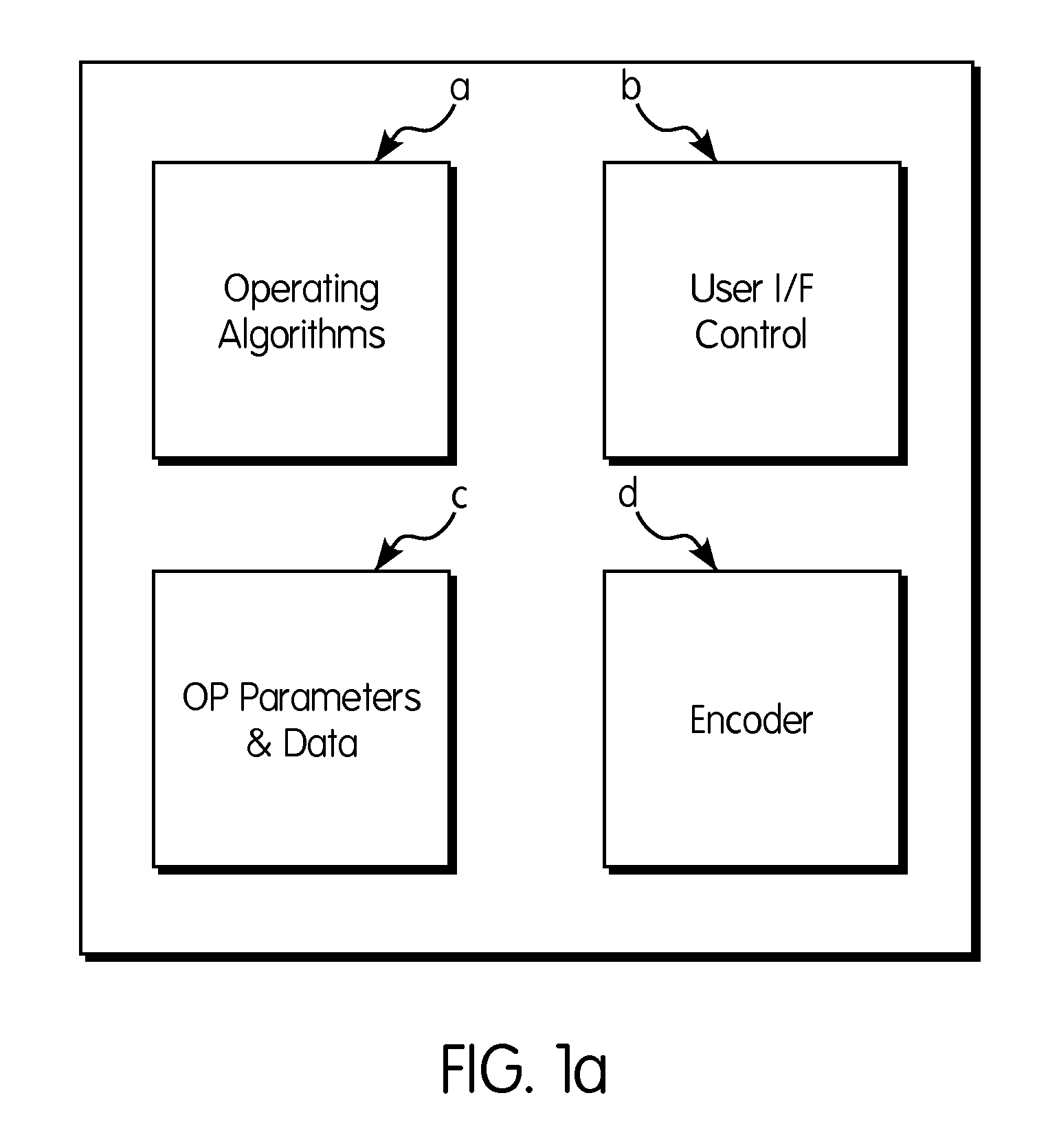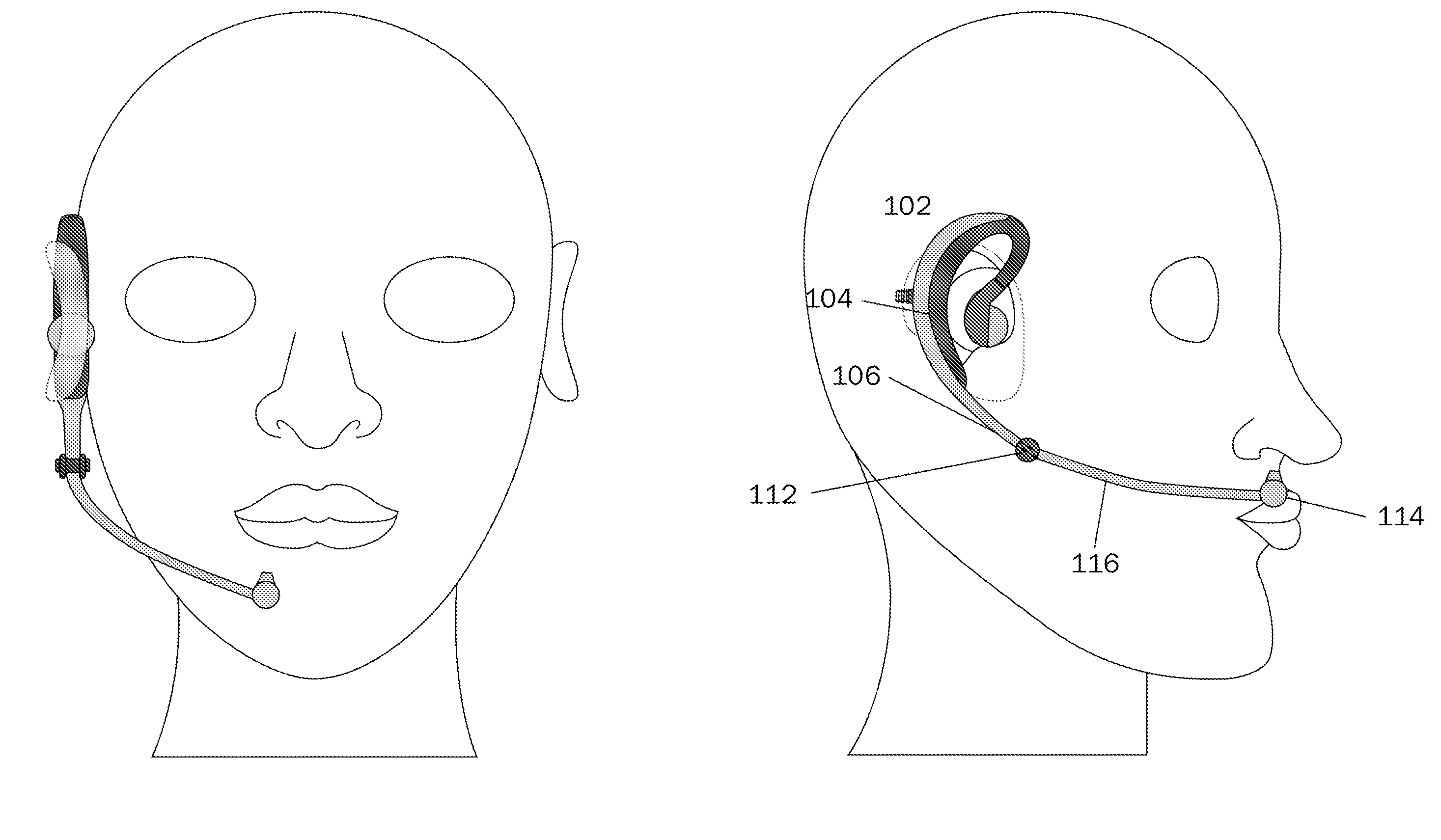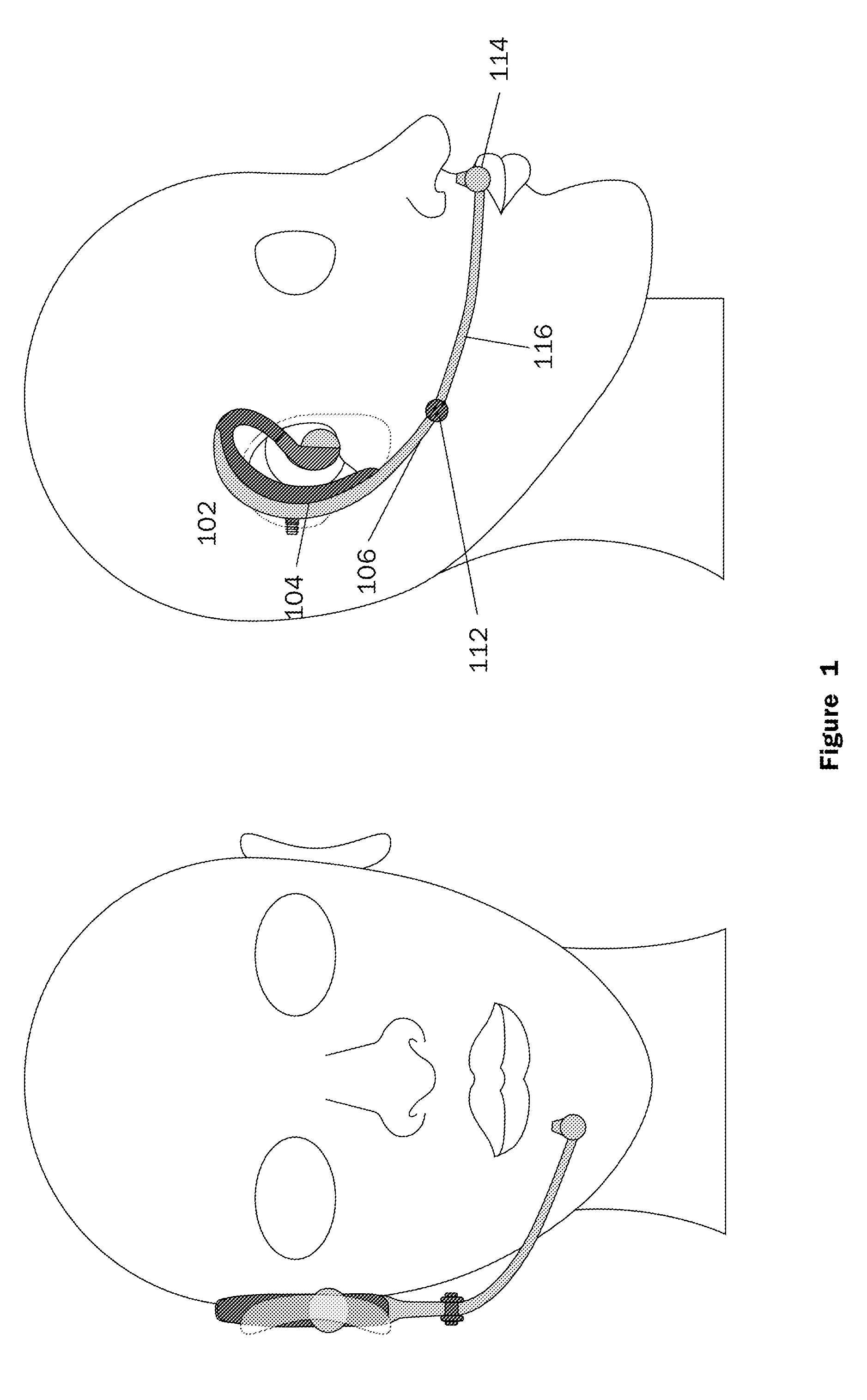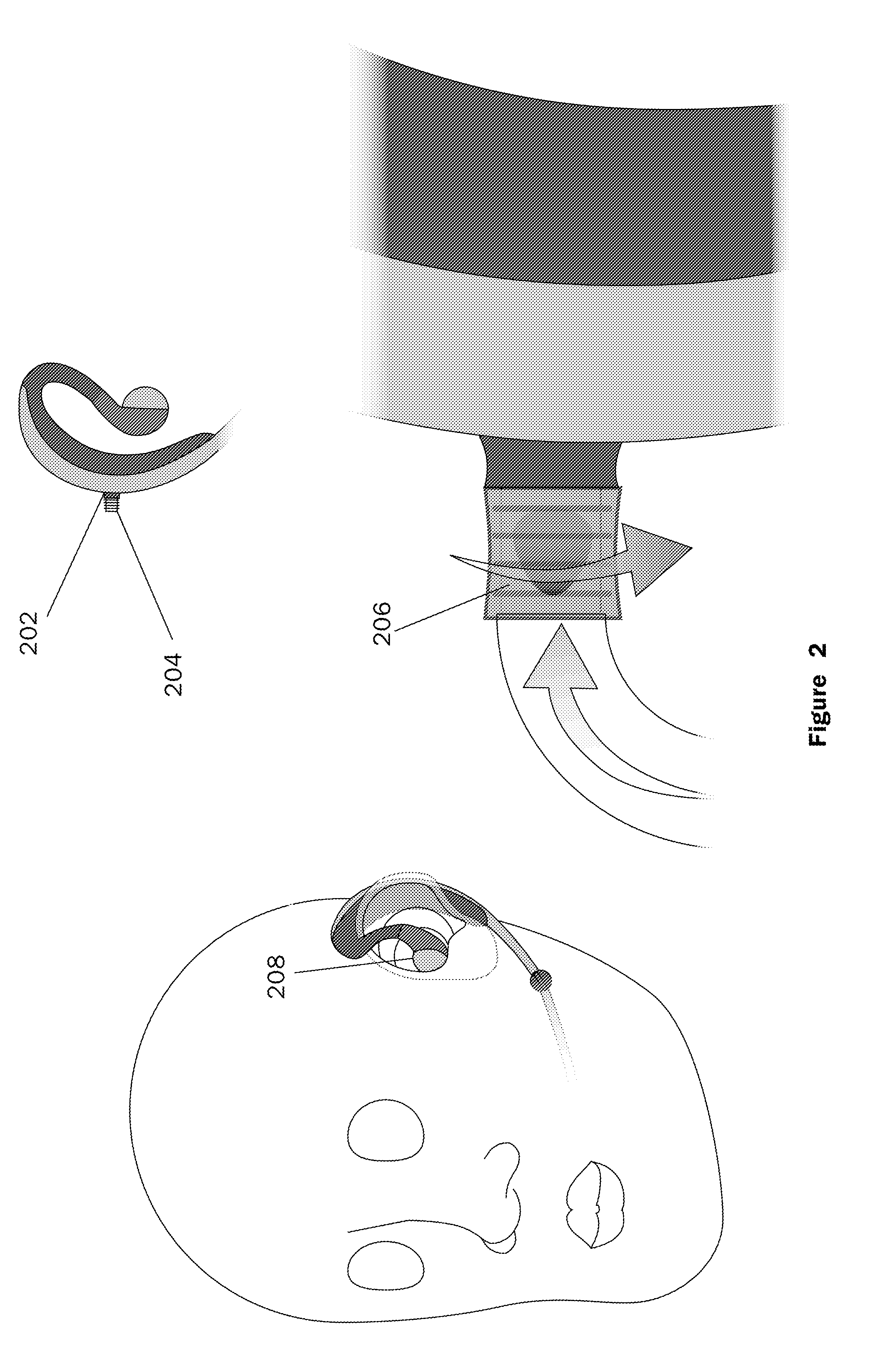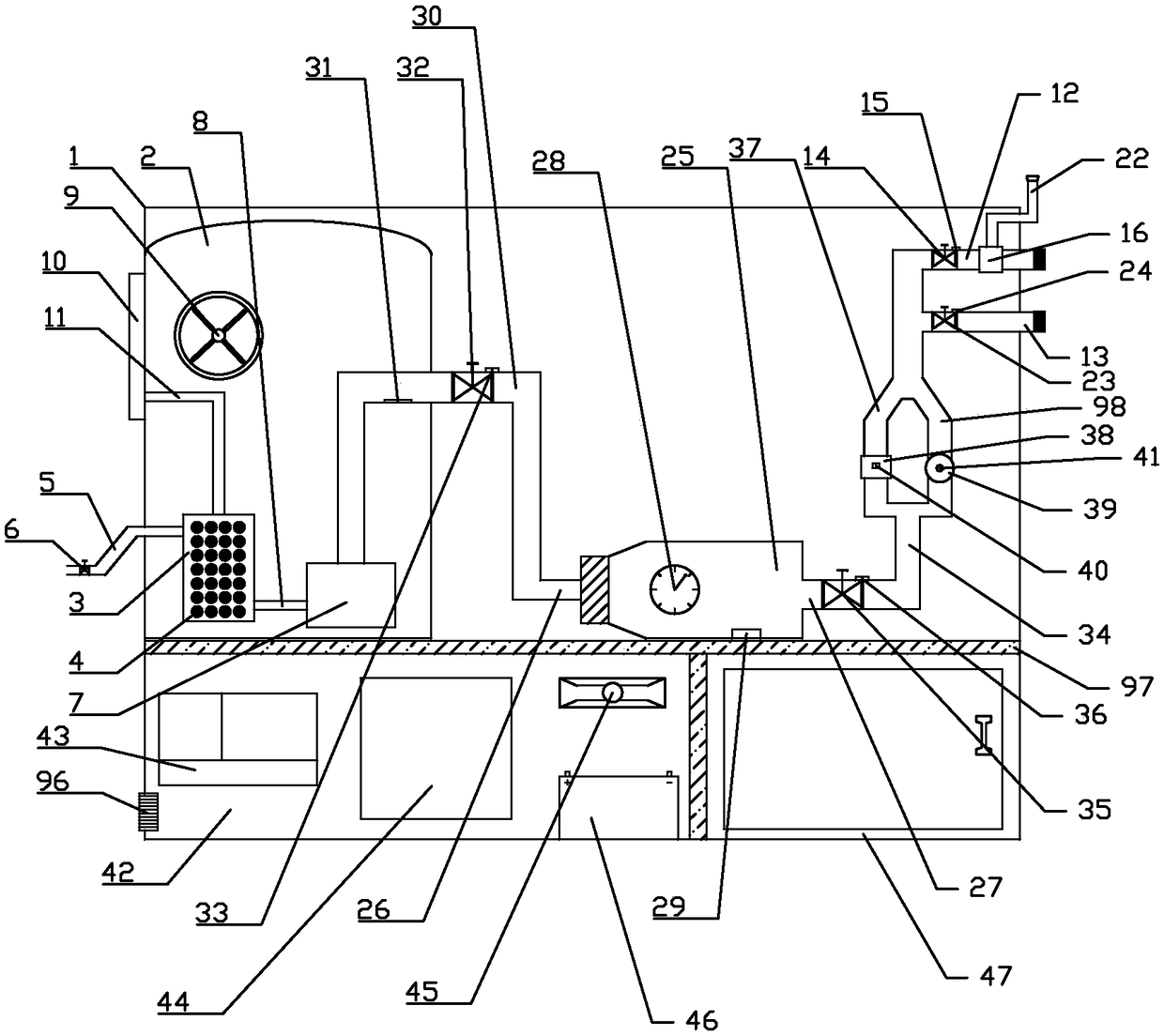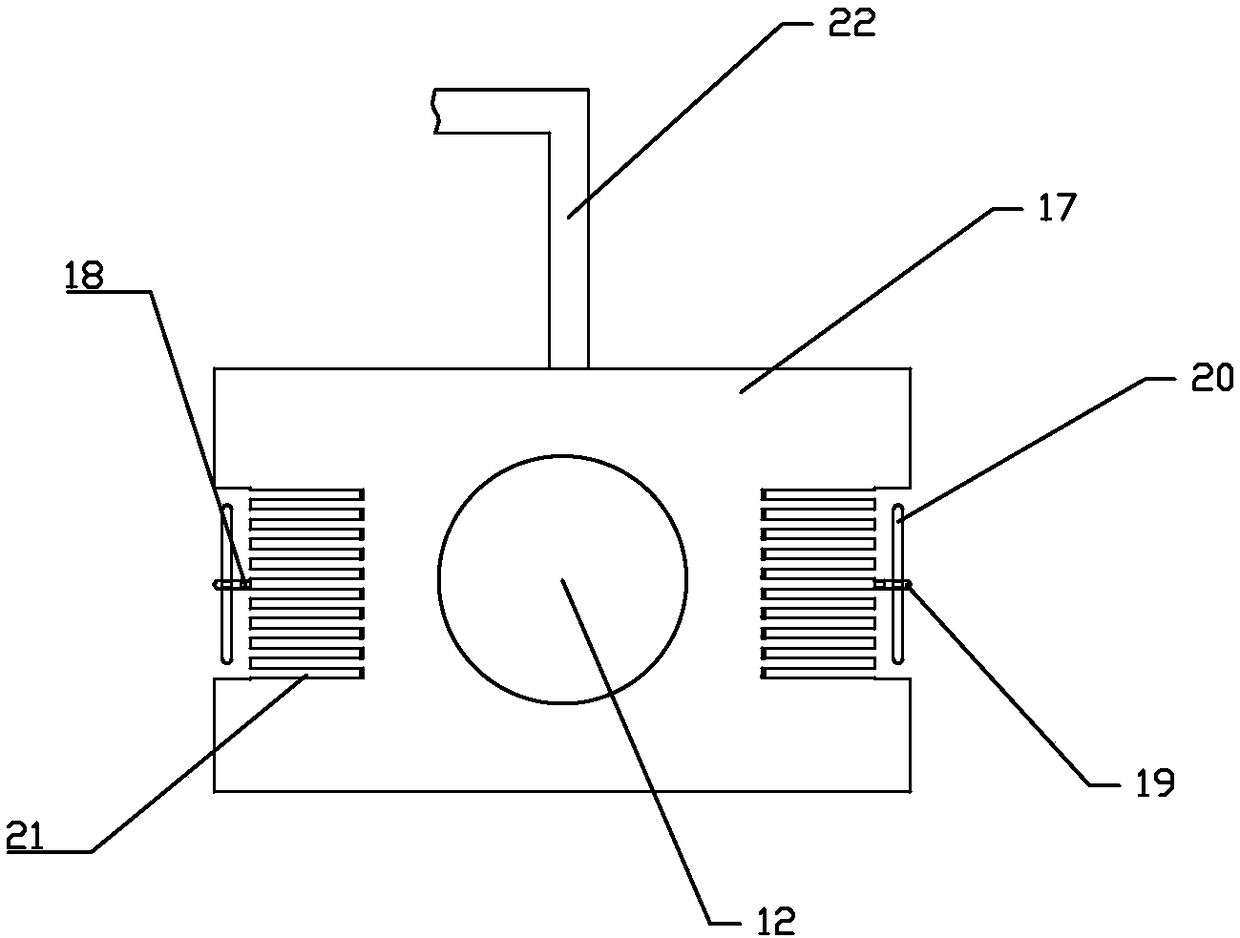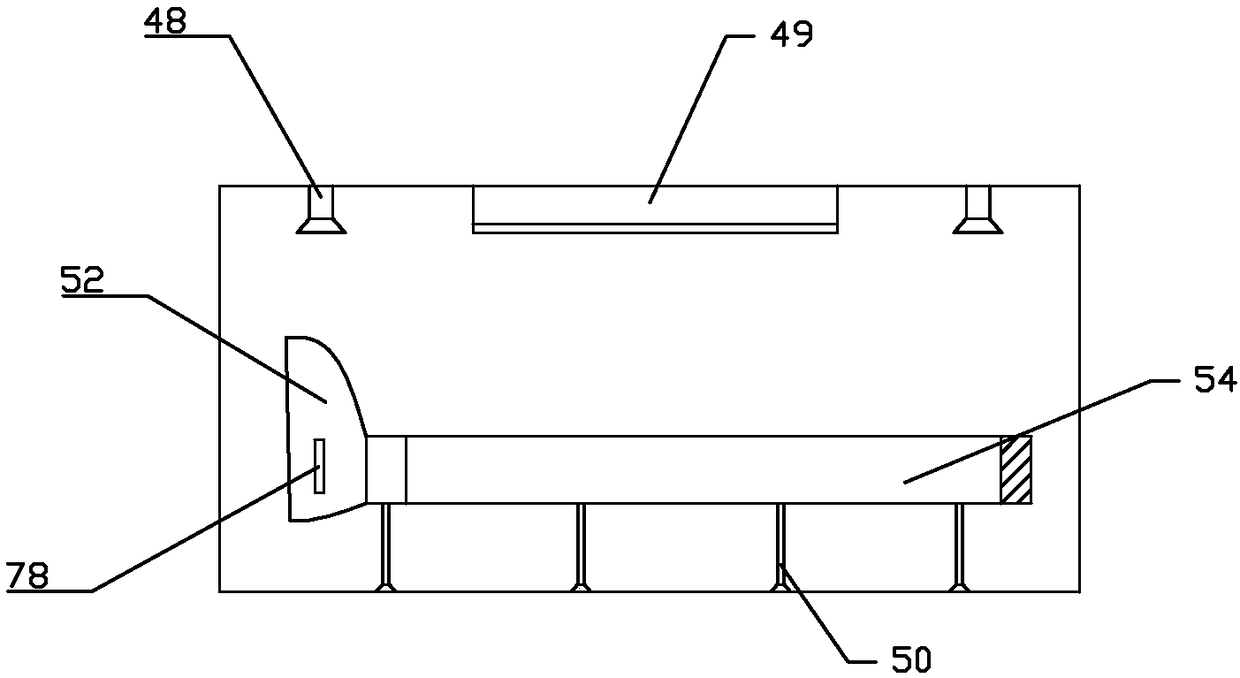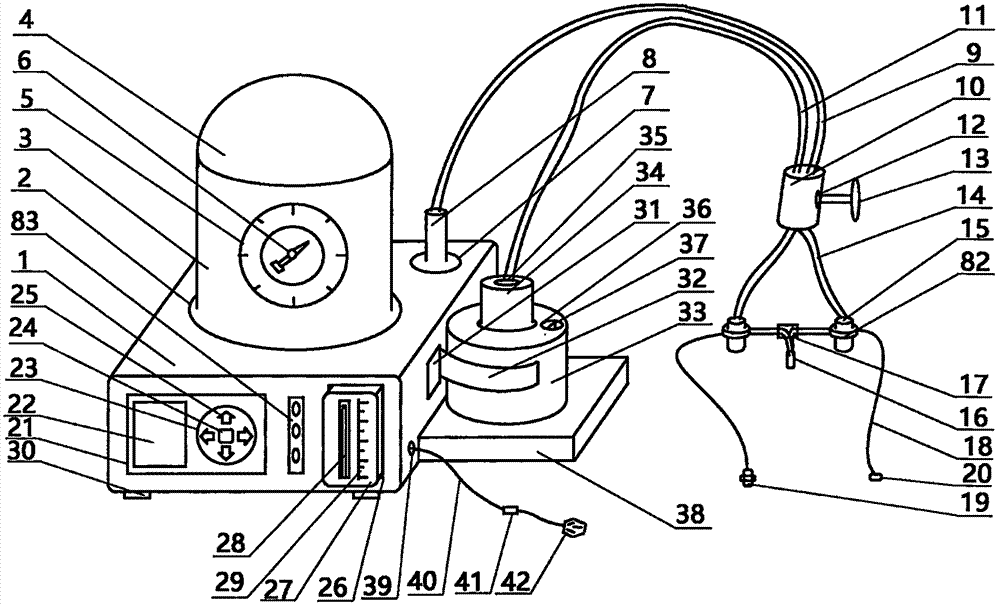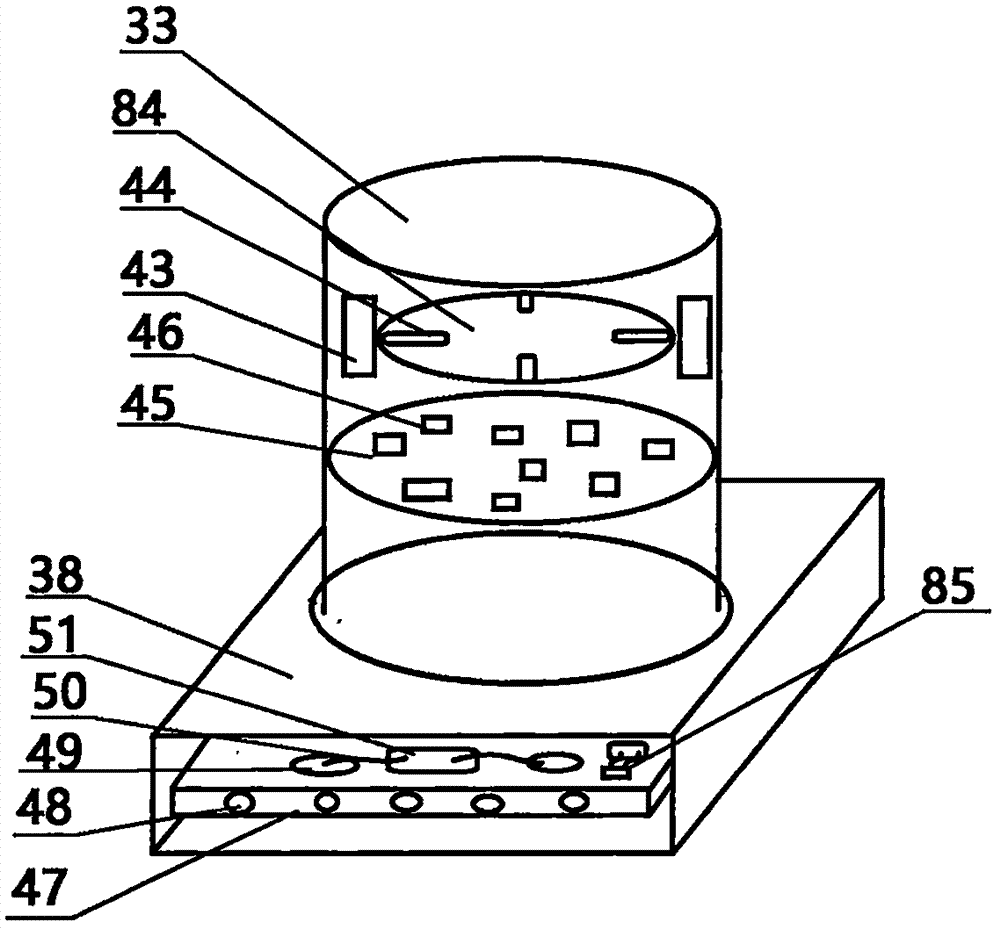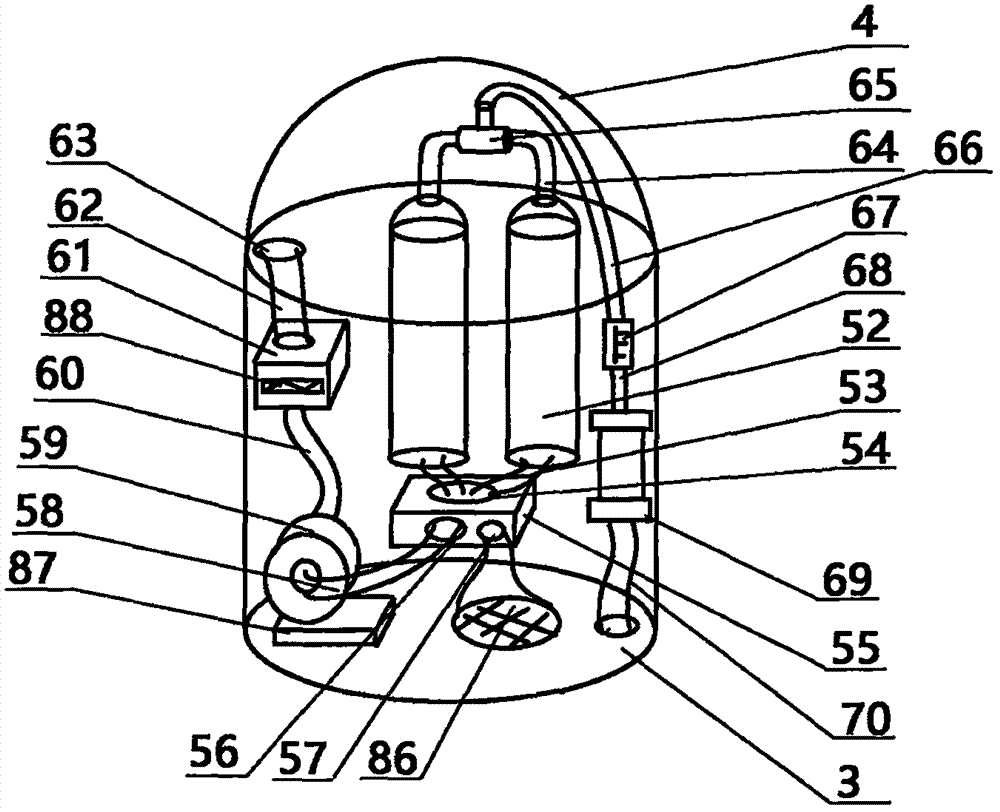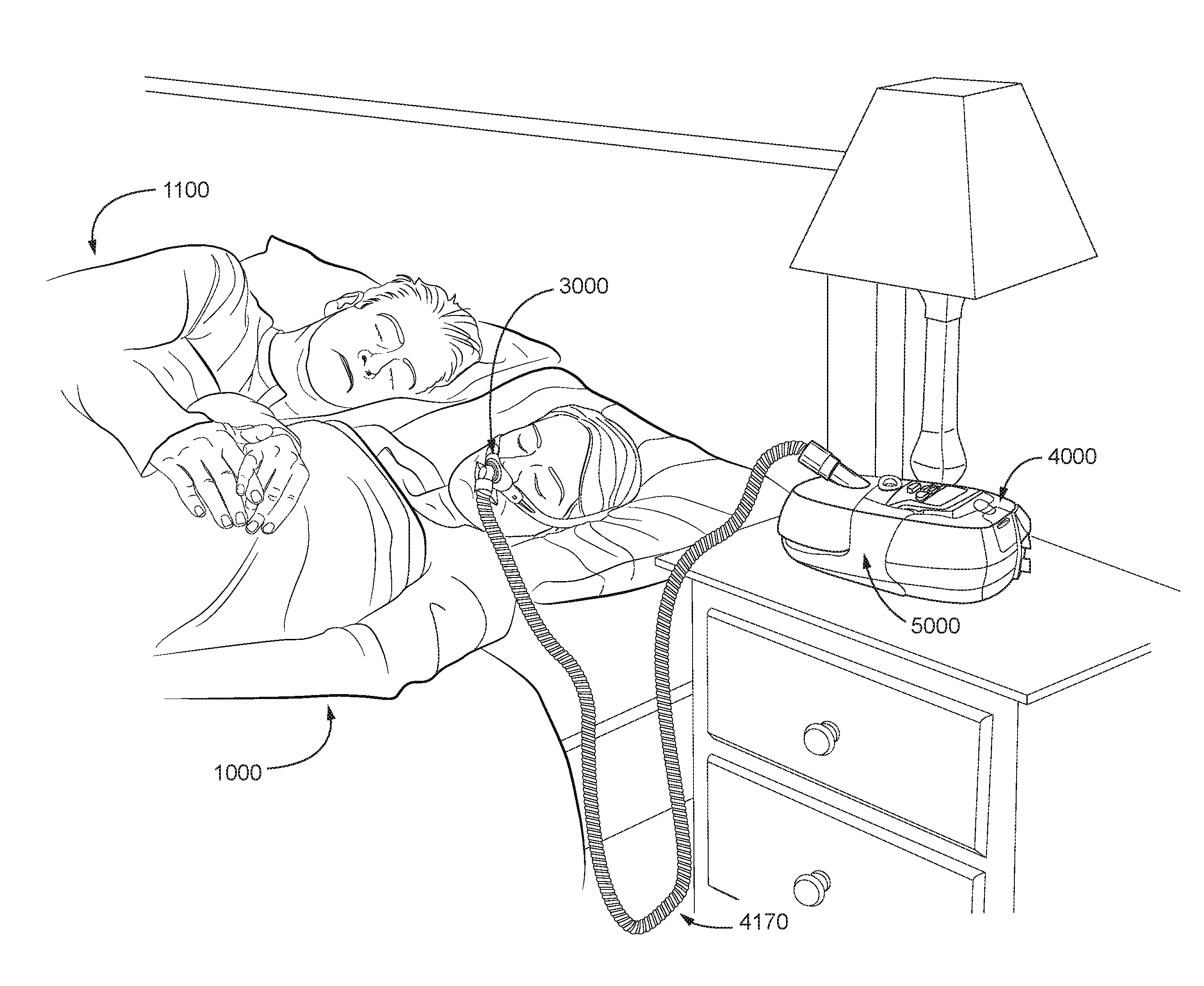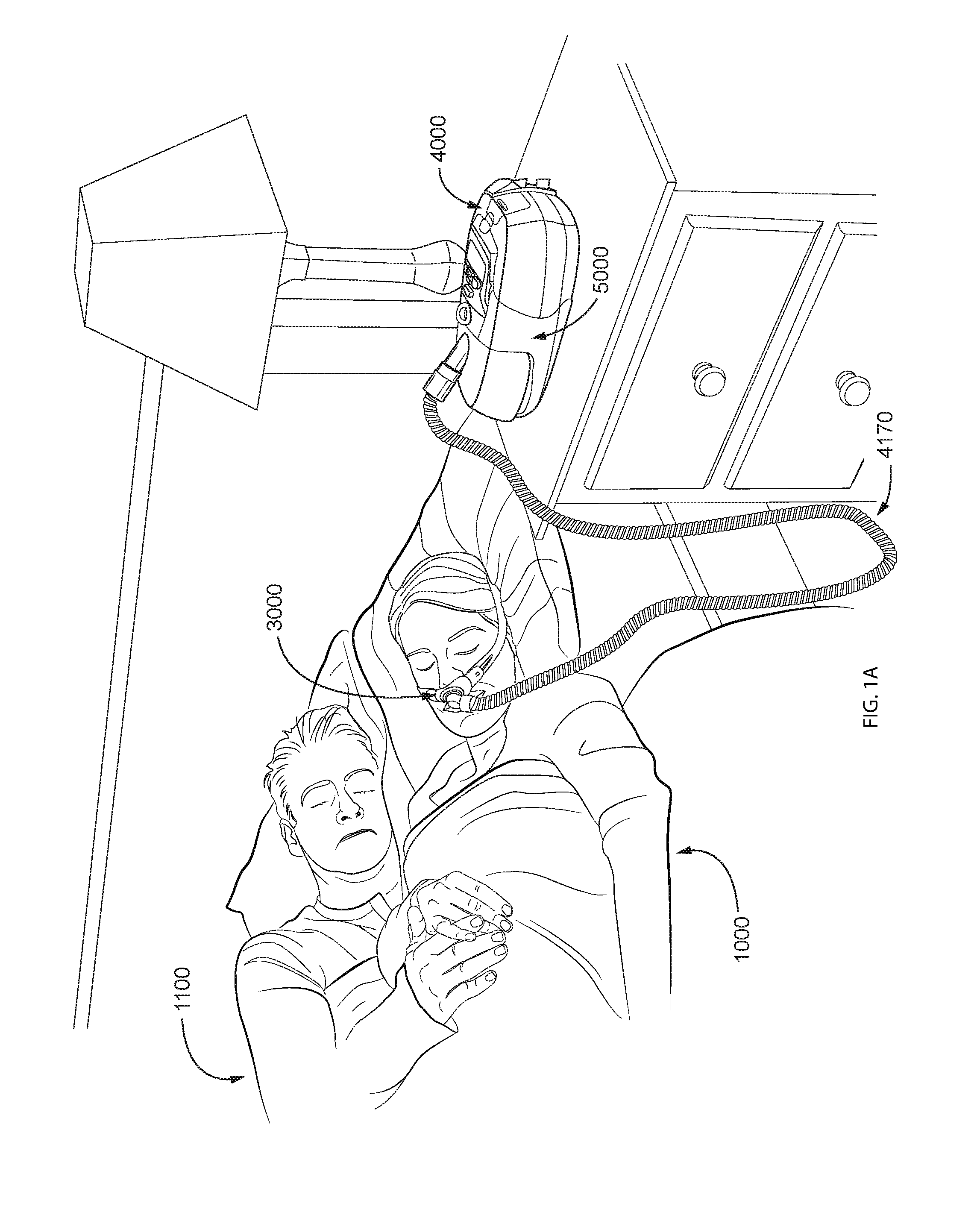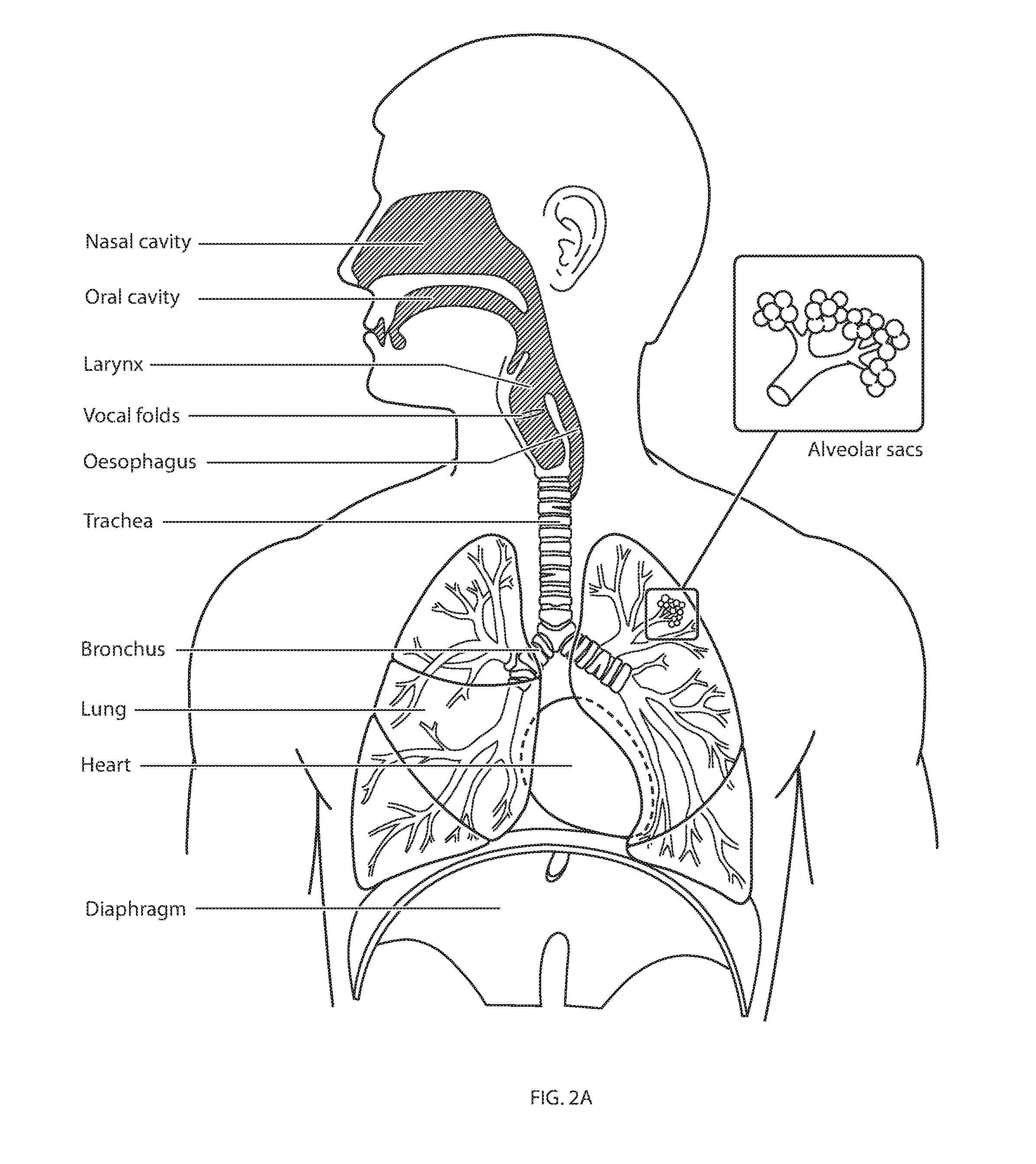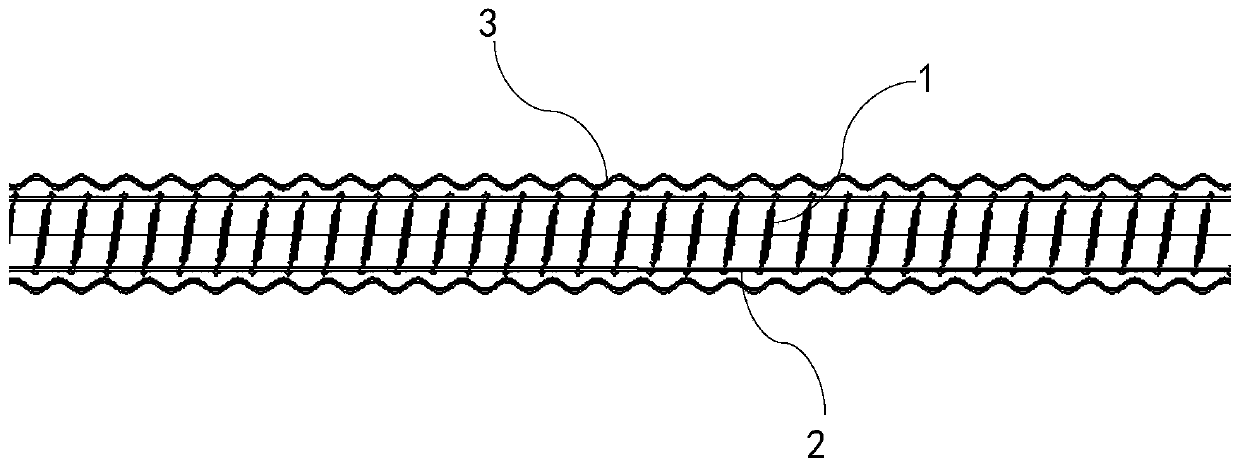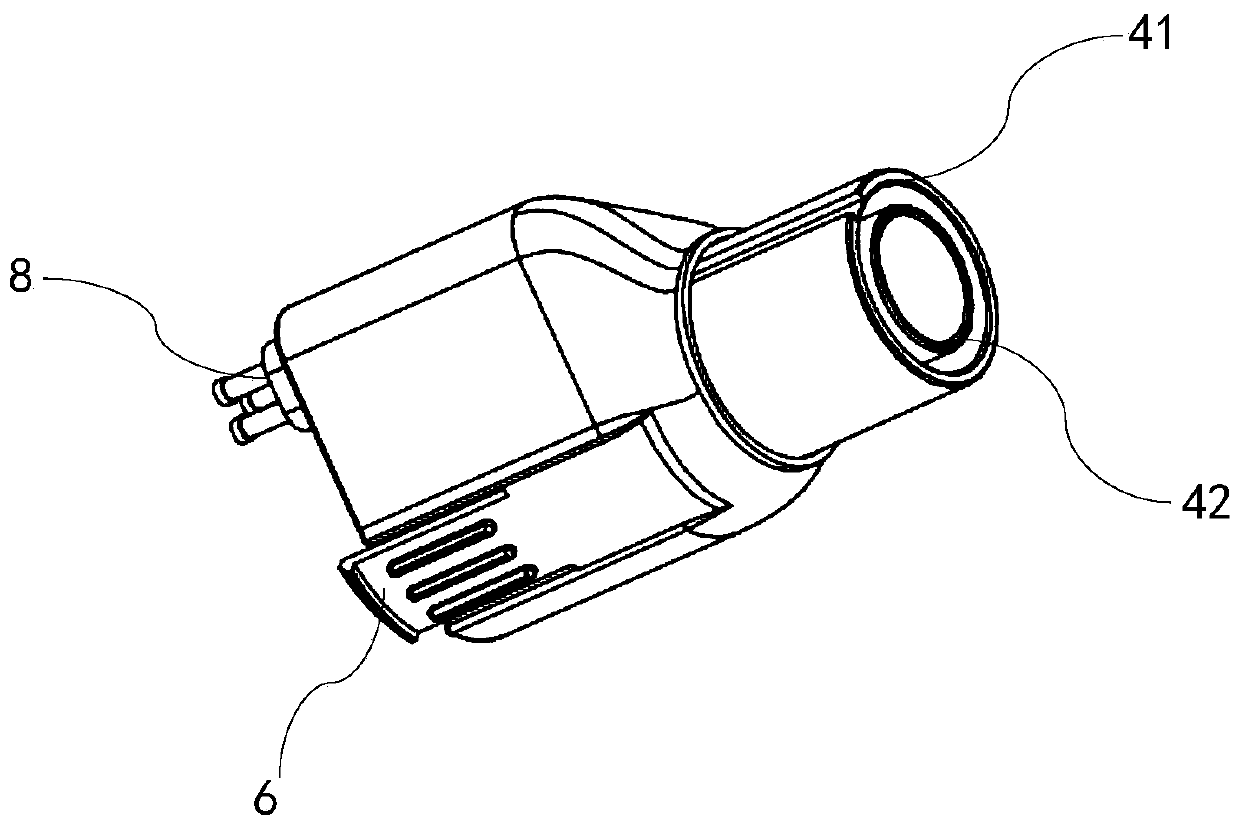Patents
Literature
66 results about "Breathing treatments" patented technology
Efficacy Topic
Property
Owner
Technical Advancement
Application Domain
Technology Topic
Technology Field Word
Patent Country/Region
Patent Type
Patent Status
Application Year
Inventor
Many people breathe without giving it much thought. People with respiratory conditions, such as asthma and chronic obstructive pulmonary disease (COPD), usually need breathing treatments to help ...
Coordinated use of respiratory and cardiac therapies for sleep disordered breathing
InactiveUS20050061320A1RespiratorsOperating means/releasing devices for valvesTherapeutic goalSleep disordered breathing
Methods and systems involve coordinating therapies used for treating disordered breathing. Disordered breathing therapies may include cardiac electrical stimulation therapy and external respiratory therapy as well as other therapies for treating disordered breathing in a patient. The therapies delivered to the patient may be coordinated to enhance effectiveness of the therapy, to reduce therapy interactions, to improve patient sleep, or to achieve other therapeutic goals.
Owner:CARDIAC PACEMAKERS INC
Breathing therapy device and method
ActiveUS20050085868A1Inhibiting respiratory driveRestricts breathingElectrotherapyElectromyographyCOPDControlled breathing
A device and method is provided for electrically stimulating the diaphragm to control breathing while inhibiting respiratory drive. A stimulation phase is identified. The stimulation phase is a period of time within the breathing cycle in which stimulation will inhibit respiratory drive. The respiratory drive inhibition may be used in a number of applications including but not limited to: improving or remodeling the heart in heart failure patients, treating apnea, chronic obstructive pulmonary disorder (COPD), and hypertension.
Owner:RMX
Continuous high-frequency oscillation breathing treatment apparatus
ActiveUS7191780B2Assist in mucus secretionSimply and inexpensively manufacturingRespiratorsOperating means/releasing devices for valvesInhalationBreathing treatments
Owner:COMEDICA INC
Adaptive baroreflex stimulation therapy for disordered breathing
InactiveUS7747323B2CatheterRespiratory organ evaluationElectric stimulation therapyBreathing therapy
Owner:CARDIAC PACEMAKERS INC
Delivery of Respiratory Therapy
ActiveUS20090217929A1Comfortable patient interfaceSleep comfortablyRespiratory masksBreathing masksPositive pressureEngineering
An air delivery system for providing a supply of air from a source of air at positive pressure to an interfacing structure located at the entrance to the airways of a patient includes a manifold adapted to connect with the supply of positive air pressure and at least one tube connected to the manifold and adapted to deliver the supply of air to the interfacing structure. Each tube is structured to allow movement between an open phase in which the tube allows the passage of air and a collapsed phase in which the tube is collapsed. Each tube is structured such that weight of a typical patient's head against bedding apparel is sufficient to collapse the tube from the open phase to the collapsed phase.
Owner:PRECISION FOAM MFG +1
Continuous high-frequency oscillation breathing treatment apparatus
ActiveUS20050061318A1Assist in mucus secretionSimply and inexpensively manufacturingRespiratorsOperating means/releasing devices for valvesBreathing treatmentsDuring expiration
A continuous high-frequency oscillation breathing device delivers therapy during both inhalation and exhalation in order to assist in clearing secretions from the lungs. A fixed shrouded-venturi patient interface circuit is combined with medicated aerosol to deliver continuous high-frequency oscillation therapy. Fixed open apertures in the patient interface circuit allow ingress and egress of flow, and are calibrated to allow exhalation and prevent stacking of successive breaths.
Owner:COMEDICA INC
Methods and systems for assessing pulmonary disease
InactiveUS20050065448A1RespiratorsOperating means/releasing devices for valvesRespiratory pressureObstructive Pulmonary Diseases
Sensing physiological conditions using the sensors of a respiratory therapy device can be used to assess a presence of pulmonary diseases other than breathing rhythm disorders. Non-rhythm related pulmonary diseases include, for example, obstructive pulmonary diseases, restrictive pulmonary diseases, and infectious diseases. Various pulmonary diseases will produce changes in respiratory pressure, airflow, and / or other patient conditions, facilitating assessment of a presence of disease.
Owner:CARDIAC PACEMAKERS INC
Breathing treatment apparatus
InactiveUS7909033B2Minimization requirementsMinimize treatmentRespiratorsOperating means/releasing devices for valvesBreathing treatmentsTreatment use
Owner:COMEDICA INC
Coordinated therapy for disordered breathing including baroreflex modulation
An approach to providing disordered breathing therapy involves the use of a plurality of therapy devices to deliver a coordinated disordered breathing therapy regimen to the patient. The plurality of disordered breathing devices includes at least a therapy device that delivers an electrical stimulation therapy modulating a patient's baroreflex response. Other therapy devices may include a cardiac electrical stimulation device, an external respiratory therapy device, and / or other therapy devices used in the treatment of disordered breathing. A therapy controller coordinates the therapies delivered by the plurality of therapy devices.
Owner:CARDIAC PACEMAKERS INC
Therapy triggered by prediction of disordered breathing
An approach to providing disordered breathing therapy includes providing therapy based on a prediction of disordered breathing. One or more patient conditions are detected and used to predict disordered breathing. Therapy is delivered to mitigate the predicted disordered breathing. The disordered breathing therapy may be adapted to enhance therapy efficacy and / or to reduce the impact of the therapy to the patient.
Owner:CARDIAC PACEMAKERS INC
Continuous high-frequency oscillation breathing treatment apparatus
ActiveUS8051854B2Simply and inexpensively manufacturingMaximize safetyRespiratorsMedical devicesInhalationBreathing treatments
A continuous high-frequency oscillation breathing device delivers therapy during both inhalation and exhalation in order to assist in clearing secretions from the lungs. A venturi patient interface circuit is combined with medicated aerosol to deliver continuous high-frequency oscillation therapy. Fixed open apertures in the patient interface circuit allow ingress and egress of flow, and are calibrated to allow exhalation and prevent stacking of successive breaths.
Owner:COMEDICA INC
Methods and systems for assessing pulmonary disease with drug therapy control
An external respiratory therapy device incorporates sensors that may be used to sense physiological conditions or parameters associated with pulmonary disease. The sensed conditions may be used to detect and / or to assess a presence of various types of pulmonary diseases. The assessment of the pulmonary disease may be utilized to control a drug therapy delivered to the patient to treat the pulmonary disease.
Owner:CARDIAC PACEMAKERS INC
Passive respiratory therapy device
A respiratory therapy device including a housing and an interrupter valve assembly. The housing is sized for handling by a patient and defines a patient breathing passage extending from a patient end and through which a patient inhales and exhales air. The interrupter valve assembly is carried by the housing and includes a control port, a valve body, and a drive mechanism. Expiratory airflow is released from the patient breathing passage through the control port. The valve body is sized to at least partially obstruct fluid flow through the control port. The drive mechanism moves the valve body relative to the control port in response to the expiratory airflow such that the valve body repeatedly transitions between a position of maximum obstruction and a position of minimum obstruction relative to the control port to create an oscillatory positive expiratory pressure effect.
Owner:SUNMED GRP HLDG LLC
Diagnosis and/or therapy using blood chemistry/expired gas parameter analysis
Methods and systems for diagnosing disorders, including, for example, disordered breathing, involve sensing one or more of a blood chemistry parameter and / or an expired gas parameter, such as expired respiratory gas concentration, blood gas concentration, and blood pH. Diagnosis of the disorder may be performed by a medical device, such as a respiratory therapy device or a cardiac therapy device, based on implantably detected blood gas / pH concentration / level or externally detected expired respiratory gas concentration. Cardiac and respiratory therapies for addressing the disorder may be adjusted based on the detected parameters.
Owner:CARDIAC PACEMAKERS INC
Respiratory therapy apparatus with oxygen flow diverter
InactiveUS20080000472A1Easy to changeImprove efficiencyRespiratorsRespiratory apparatusEngineeringFlow diverter
A three-way diverter valve has a body with an input with a fitting for securing the input to the output of a flowmeter. The valve body also includes first and second outputs and a ball coupled to a control handle for rotating the ball valve to first or second positions. The ball has a passageway for supplying oxygen to either said first output or said second output. The control handle may include indicia identifying the active flow direction for the selected output.
Owner:DASHER MEDICAL SUPPLY
Adaptive therapy for disordered breathing
An approach to providing disordered breathing therapy includes detecting disordered breathing and adapting a therapy to mitigate the disordered breathing. The therapy may be adapted to enhance therapy effectiveness, to provide therapy that reduces an impact of the therapy on the patient, or to achieve other therapeutic goals. Cardiac electrical therapy to mitigate the disordered breathing may include various cardiac pacing regimens and / or delivery of non-excitatory electrical stimulation to the heart.
Owner:CARDIAC PACEMAKERS INC
Continuous high-frequency oscillation breathing treatment apparatus
ActiveUS20080066754A1Simply and inexpensively manufacturingMaximize safetyRespiratorsMedical devicesInhalationBreathing treatments
A continuous high-frequency oscillation breathing device delivers therapy during both inhalation and exhalation in order to assist in clearing secretions from the lungs. A venturi patient interface circuit is combined with medicated aerosol to deliver continuous high-frequency oscillation therapy. Fixed open apertures in the patient interface circuit allow ingress and egress of flow, and are calibrated to allow exhalation and prevent stacking of successive breaths.
Owner:COMEDICA INC
Methods and systems for assessing pulmonary disease
InactiveUS7575553B2RespiratorsOperating means/releasing devices for valvesRestrictive lung diseaseRespiratory pressure
Sensing physiological conditions using the sensors of a respiratory therapy device can be used to assess a presence of pulmonary diseases other than breathing rhythm disorders. Non-rhythm related pulmonary diseases include, for example, obstructive pulmonary diseases, restrictive pulmonary diseases, and infectious diseases. Various pulmonary diseases will produce changes in respiratory pressure, airflow, and / or other patient conditions, facilitating assessment of a presence of disease.
Owner:CARDIAC PACEMAKERS INC
Flow mixers for respiratory therapy systems
ActiveUS20170197057A1Improve accuracyImprove flow uniformityRespiratorsElectrocardiographyEngineeringBreathing treatments
A flow of gases in a respiratory therapy system can be conditioned to achieve more consistent output from sensors configured to sense a characteristic of the flow. The flow can be mixed by imparting a tangential, rotary, helical, or swirling motion to the flow of gases. The mixing can occur upstream of the sensors. The flow can be segregated into smaller compartments to reduce turbulence in a region of the sensors.
Owner:FISHER & PAYKEL HEALTHCARE LTD
Gas flow regulating apparatus for respiratory treatment
A flow regulating valve for a respiratory treatment system is disclosed, as well as a vent arrangement comprising the flow regulating valve. The flow regulating valve may include an inlet, an outlet, and a variable conduit in fluid communication with the inlet and the outlet. The variable conduit may include a movable portion that may move to vary an impedance of the variable conduit, thereby regulating a flow rate of the air travelling through the variable conduit. Advantageously, the flow regulating valve may thus reduce wastage of air (e.g. humidified air) that is exhausted from a respiratory treatment system, while maintaining sufficient washout of air.
Owner:RESMED LTD
Combination breathing treatment method
A method of providing a combination lung treatment therapy that is substantially uninterrupted between providing continuous positive airway pressure therapy and high-frequency therapy is disclosed. The present invention combines multiple respiratory therapies in order to facilitate the prevention and treatment of certain pulmonary diseases. The present invention also discloses a method of providing a combination lung treatment therapy that is substantially uninterrupted between providing medicated continuous positive airway pressure therapy and medicated high-frequency therapy is disclosed.
Owner:COMEDICA INC
Detection of ventilation sufficiency
Automated methods provide a ventilation sufficiency assessment to evaluate patient respiration. In some embodiments, a ventilation histogram maybe determined from a measure of patient respiratory flow. Based on the histogram or associated ventilation data, hypoventilation or hyperventilation occurrences may be detected. For example, a kurtosis index and / or skewness index may be calculated with the data associated with the ventilation histogram and may be evaluated as an indication of hypoventilation or hyperventilation. An assessment of the number of peaks and other features of the ventilation histogram, such as in the case of a bimodal ventilation histogram, may be implemented to detect an occurrence of ventilation insufficiency or sufficiency. The detection methodologies may be implemented by a specific purpose computer, a detection device that measures a respiratory airflow or a respiratory treatment apparatus that provides a respiratory treatment regime based on the detected ventilation sufficiency.
Owner:RESMED LTD
Transvascular diaphragm pacing systems and methods of use
Transvascular diaphragm pacing systems (TDPS) and methods are disclosed for providing respiratory therapy to a patient. The TDPS can provide rapid insertion and deployment of endovascular pacing electrodes in critically ill patients who require intubation and invasive PPMV in order to support the physiological requirements of the human ventilatory system. The systems and methods make best use of the contractile properties of the diaphragm muscle and prevent muscle disuse and muscle atrophy. This can be carried out by engaging the phrenic nerves using patterned functional electrical stimulation applied to endovascular electrodes that are temporarily and reversibly inserted in central veins of the patient, such as the left subclavian vein and the superior vena cava. The TDPS can be designed to seamlessly interface with any commercially available positive-pressure ventilatory assistance / support equipment such as is commonly in use in hospital intensive care units (ICU) for treating critically ill patients with breathing insufficiencies, pain, trauma, sepsis or neurological diseases or deficits.
Owner:LUNGPACER MEDICAL INC
Inhalation drug administration device for respiratory medicine department
ActiveCN107412934AAvoid inhalationImprove the effect of respiratory therapyRespiratorsMedical devicesLiquid jetFiltration
The invention discloses an inhalation drug administration device for the respiratory medicine department. The inhalation drug administration device includes a drug administration shell, an evaporator, a ball-shaped spray head, a one-way air inlet valve, an air jet device, an oxygen hose, support legs, a liquid discharging valve, a first filtration sleeve, a liquid drawing hose, a liquid jet pump, an atomization spray head, a water adding pipeline, a water adding cover, a first seal mat, a pot, a second seal mat, an upper cover, a one-way air discharging valve, a valve, a drug administration hose, a communicated hose, a liquid discharging hole, a hood and a quantitative drug adding device. The inhalation drug administration device for the respiratory medicine department has the advantages of being simple and reasonable in structure, low in production cost and convenient to mount; when the inhalation drug administration device is in use, firstly, a moderate amount of purified water is added into the drug administration shell through the water adding pipeline, then, a push-pull rod is pulled upwards, and medical liquid in a drug storing box is sucked into a measuring cylinder through a piston; through scale lines arranged on the push-pull rod, it is convenient to observe the mount of the medical liquid sucked in; then, the push-pull rod is pressed down, so that the medical liquid enters the drug administration shell; finally, the evaporator is started, so that the medical liquid and wet gas enter together and are output to patients through the ball-shaped spray head to conduct respiratory therapy.
Owner:路宏燕 +2
Variable transition pressure profiles for a bi-level breathing therapy machine
ActiveUS8555880B2Maximize comfortRespiratorsOperating means/releasing devices for valvesTransition pressureBreathing therapy
A method for controlling the transitions between two different pressures supplied by a breathing therapy device using a transition pressure profile for which the basic shape, the magnitude and the duration may be controlled by a user of the device or the user's therapist.
Owner:3B MEDICAL INC
Gas delivery system for respiratory treatments of patients
InactiveUS20140261413A1Effective, lightweight, safe, comfortable, and convenientReduce restrictionsRespiratorsMedical devicesNostrilNebulizer
An improved ear-mounted oral-nasal respiratory device for delivering oxygen and other therapy gases for respiratory treatments of patients. The device comprises an anchoring system for affixing the device to one of the patient's ears and a support arm for placing a gas-conveying nebulizer in the vicinity of the patient's mouth or nostrils.
Owner:GIBSON TIRENE
Respiratory therapy apparatus for respiratory medicine department
ActiveCN108404269AReasonable structural designGood treatment effectRespiratorsMedical devicesOxygen tankEngineering
Provided is a respiratory therapy apparatus for a respiratory medicine department. The respiratory therapy apparatus comprises a shell, an oxygen generator is arranged on one side of the interior of the shell, an oxygen generation tank is arranged in the oxygen generator, a plurality of molecular sieves are arranged in the oxygen generation tank, an exhaust pipe is arranged on the outer side of the oxygen generation tank, an exhaust pipe valve is arranged in the exhaust pipe, an oxygen storage tank is arranged on the inner side of the oxygen generation tank, the oxygen generation tank is connected to the oxygen storage tank through an oxygen outlet pipe, a therapy pipeline and an oxygen absorption pipeline are successively arranged on the other side inside the shell, a therapy pipeline valve is arranged in the therapy pipeline, a therapy pipeline valve controller is arranged on one side of the therapy pipeline valve, and an air compressor is arranged on the therapy pipeline at the outer side of the therapy pipeline valve; a heating sleeve and a humidifier are used for processing clean oxygen, and the clean oxygen with suitable temperature and humidity is provided for a patient; theprepared oxygen is stored through an oxygen bottle to ensure the normal supply for the patient.
Owner:卢彦祥
Breathing device adopting boiled water wetted asthma drug
The invention relates to a breathing device adopting a boiled water wetted asthma drug and belongs to the technical field of medical instruments. According to the technical scheme, the breathing device adopting the boiled water wetted asthma drug comprises an oxygen production device body, wherein an oxygen production tank seat groove is formed in the oxygen production device body, an oxygen production tank is arranged in the oxygen production tank seat groove, a cover is arranged on the oxygen production tank, a pressure gauge dial is arranged on the front side of the oxygen production tank, a pressure pointer is arranged in the pressure gauge dial, an oxygen outlet is formed in the right side of the oxygen production seat groove, and an oxygen receiving pipe is arranged in the oxygen outlet and connected with an oxygen conveying pipe connected with a mixing distributor, a drug steam conveying pipe is arranged on the left side of the oxygen conveying pipe, an adjusting transit port is formed in the right side of the mixing distributor, an adjusting and distributing knob is arranged in the adjusting transit port, and the lower side of the mixing distributor is connected with branch pipes. The device has complete functions, is convenient to use and is time-saving, labor-saving, scientific, convenient, safe and efficient when used for auxiliary breathing treatment on a patient through the boiled water wetted drug, and the work difficulty of medical workers is reduced.
Owner:于立萍
Respiratory therapy apparatus
ActiveUS20160199607A1Reduce the differenceRespiratorsOperating means/releasing devices for valvesPower flowEngineering
A blower comprises a housing, an inlet to receive air, an outlet to deliver a flow of air and a deformable member configured to pump a chamber. The deformable member may be configurable to a first configuration and a second configuration, for example by electrical energy that may be applied as current or voltage. The blower may comprise a plurality of chambers, wherein each chamber may be compressed out of phase with each other, for example such that the flow rate of the generated air flow may not fluctuate as much. In other forms, the blower may comprise a plurality of chambers that vary in size.
Owner:RESMED LTD
Pipeline of respiratory therapy apparatus
PendingCN109876257AReal-time detection of temperatureAvoid it happening againRespiratorsElectrical connectionEngineering
The invention discloses a pipeline of a respiratory therapy apparatus. The pipeline comprises a pipeline body and a heating wire arranged in the pipeline body. The pipeline body comprises a first pipeline and a second pipeline sleeving the first pipeline, the heating wire is arranged between the first pipeline and the second pipeline, and the heating wire is wound spirally from one end to the other end of the pipeline body. The pipeline further comprises a first joint for connecting the machine end and a second joint for the patient end which are arranged at two ends of the pipeline body; thefirst joint or / and the second joint are provided with a temperature sensor; one side of the first joint is provided with an electrical connection portion extending from below, and the electrical connection portion is provided with a plurality of contacts. The contacts include contacts connected with the heating wire and the temperature sensor through electric signals. The pipeline of the respiratory therapy apparatus can more effectively prevent or reduce the generation of condensed water while achieving warming.
Owner:广州鲸科医疗科技有限公司
Features
- R&D
- Intellectual Property
- Life Sciences
- Materials
- Tech Scout
Why Patsnap Eureka
- Unparalleled Data Quality
- Higher Quality Content
- 60% Fewer Hallucinations
Social media
Patsnap Eureka Blog
Learn More Browse by: Latest US Patents, China's latest patents, Technical Efficacy Thesaurus, Application Domain, Technology Topic, Popular Technical Reports.
© 2025 PatSnap. All rights reserved.Legal|Privacy policy|Modern Slavery Act Transparency Statement|Sitemap|About US| Contact US: help@patsnap.com
